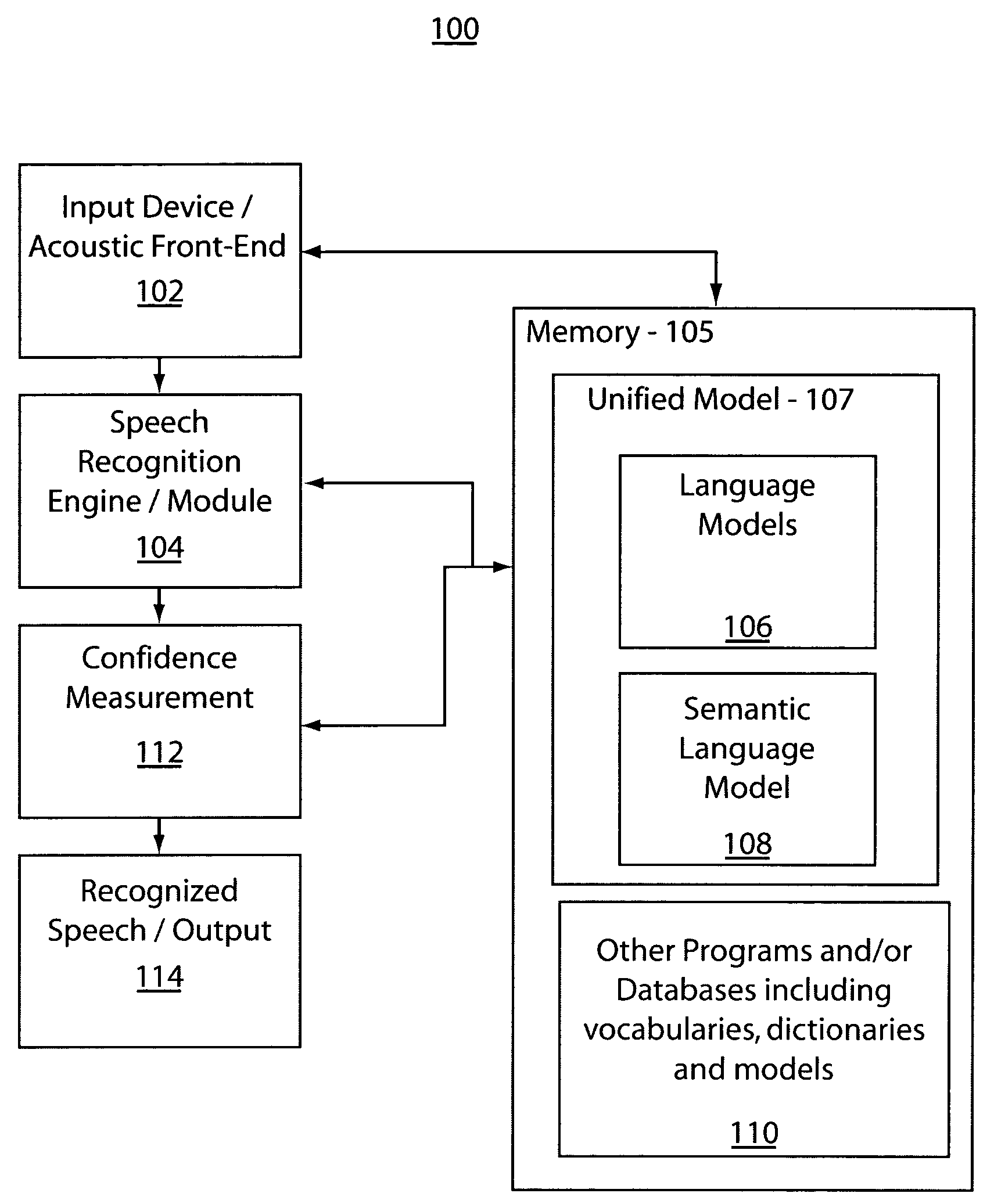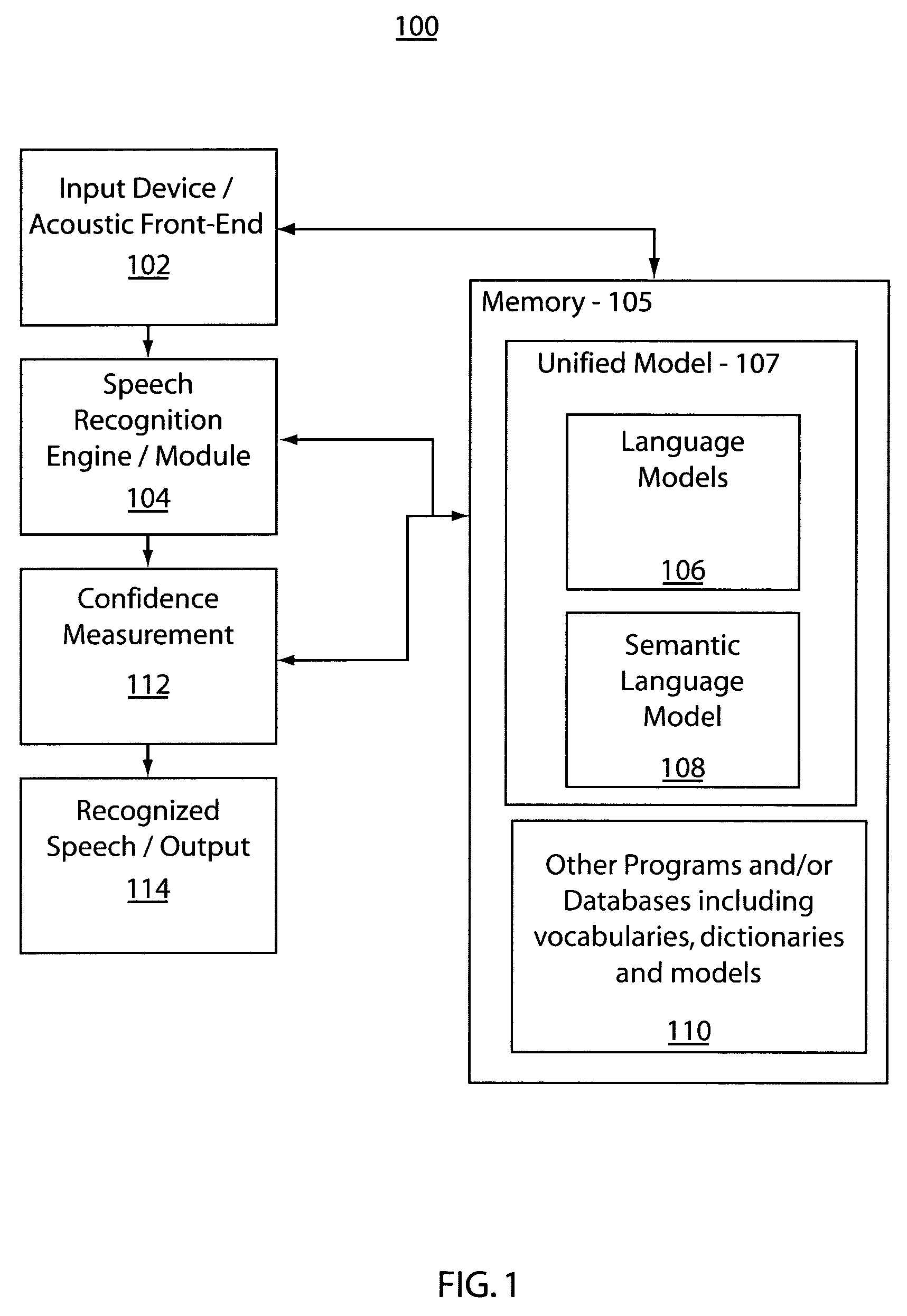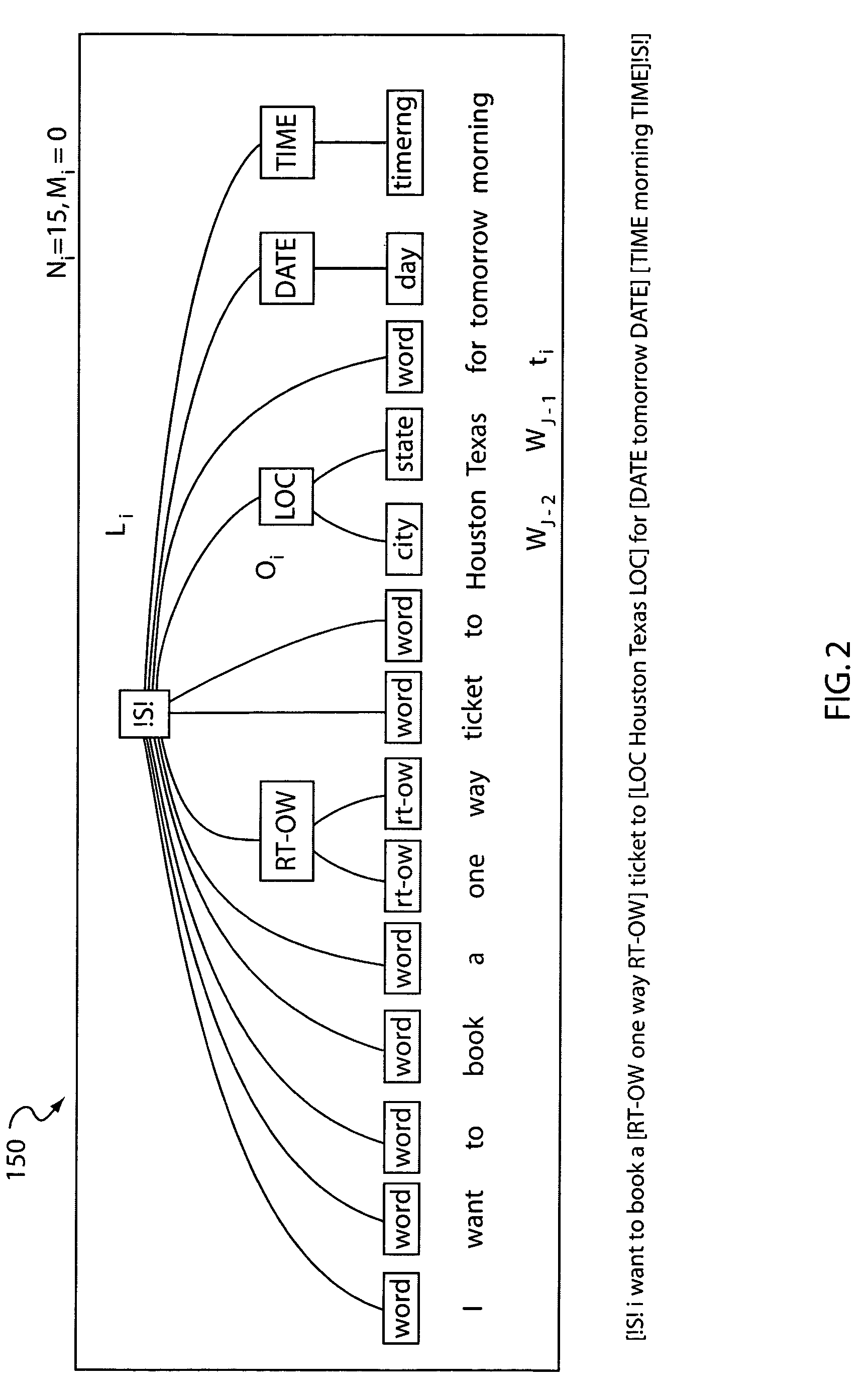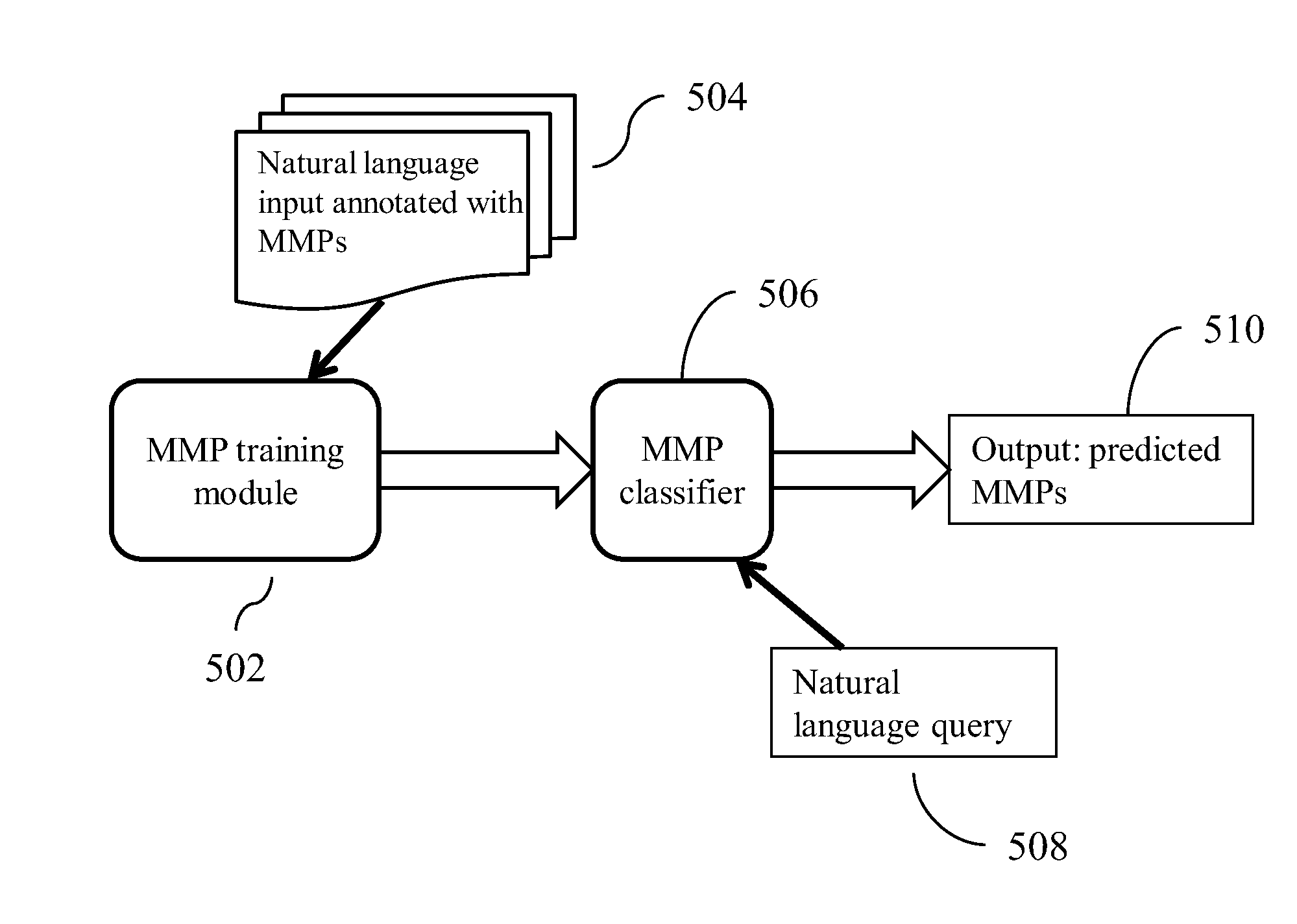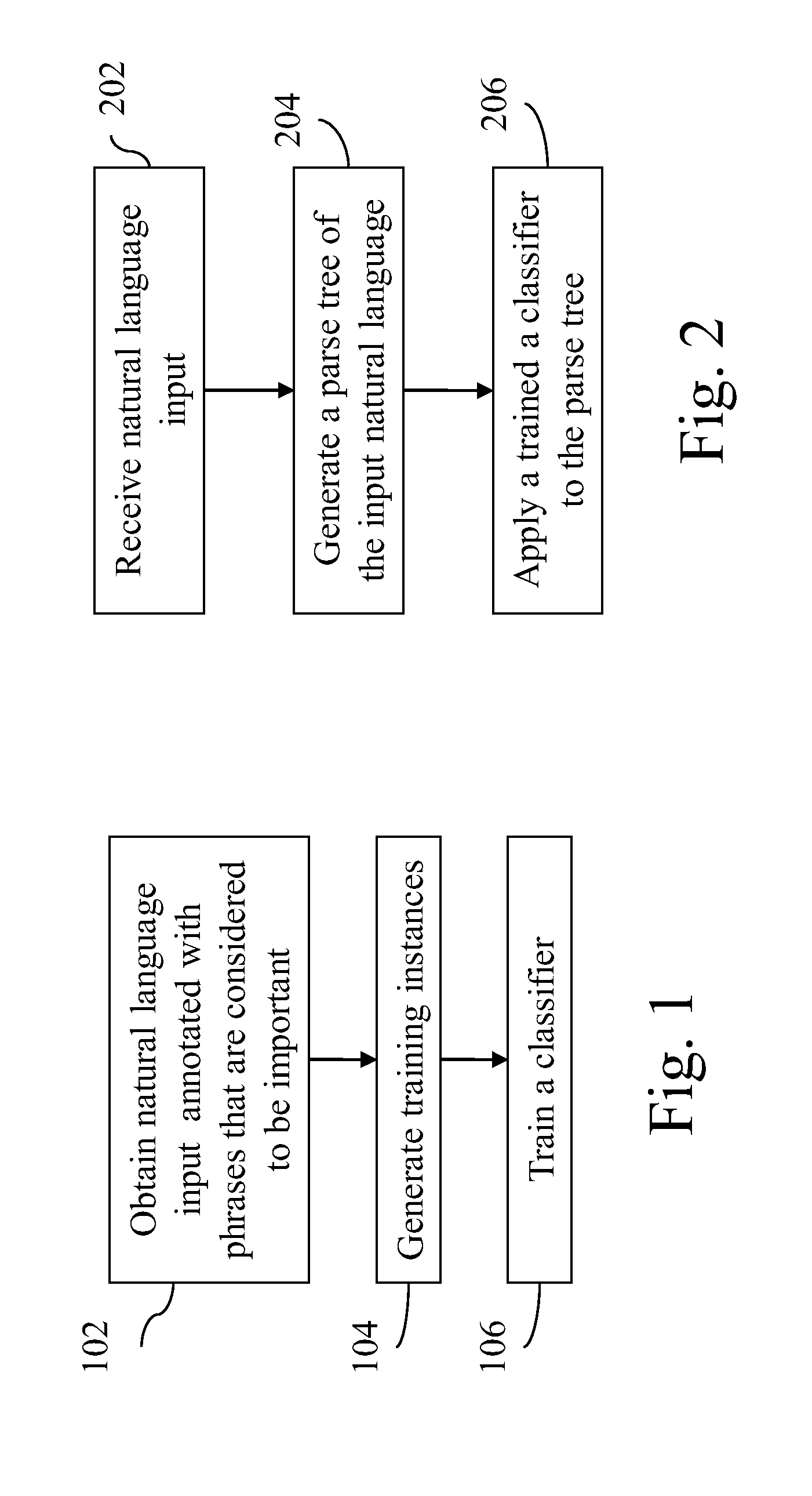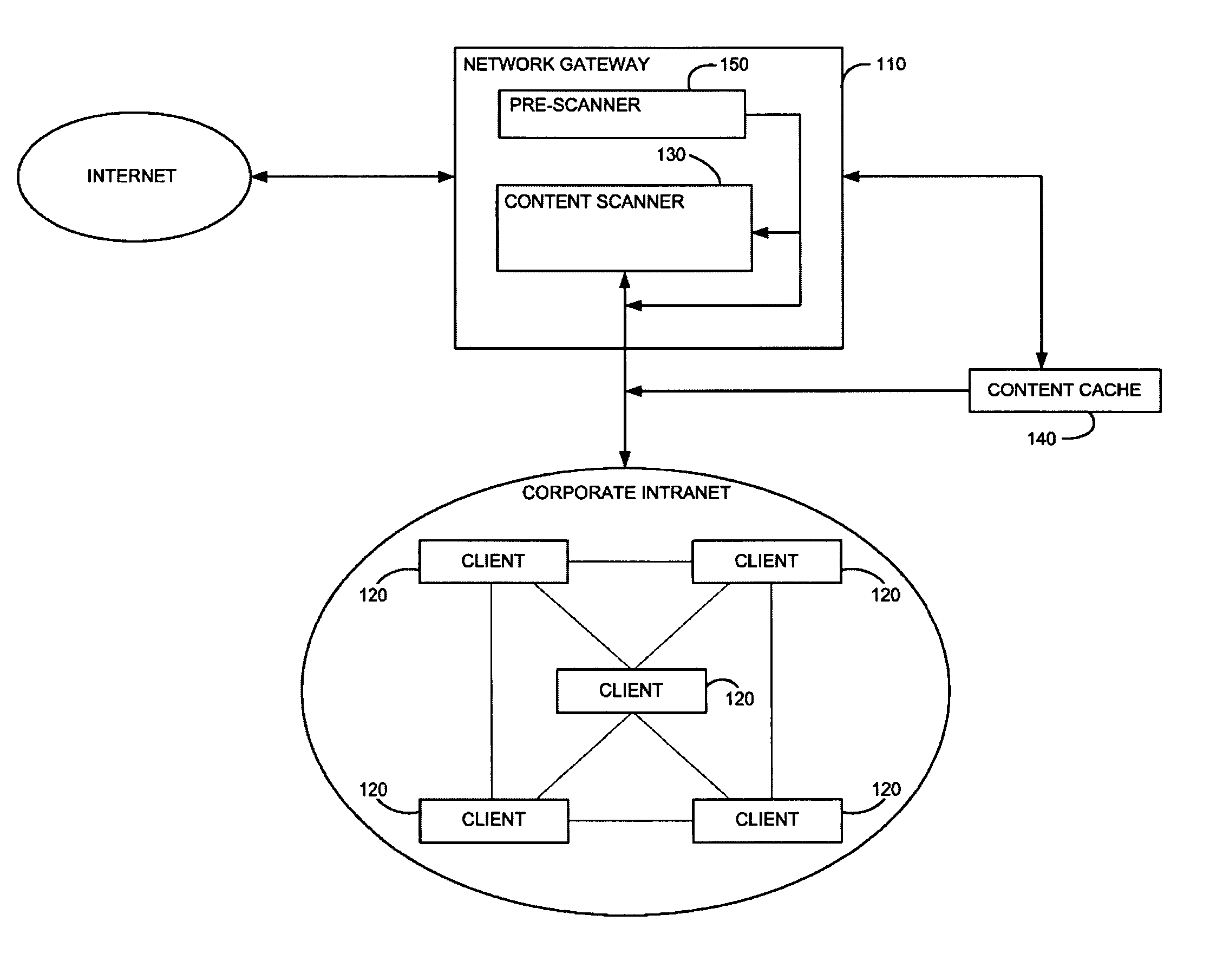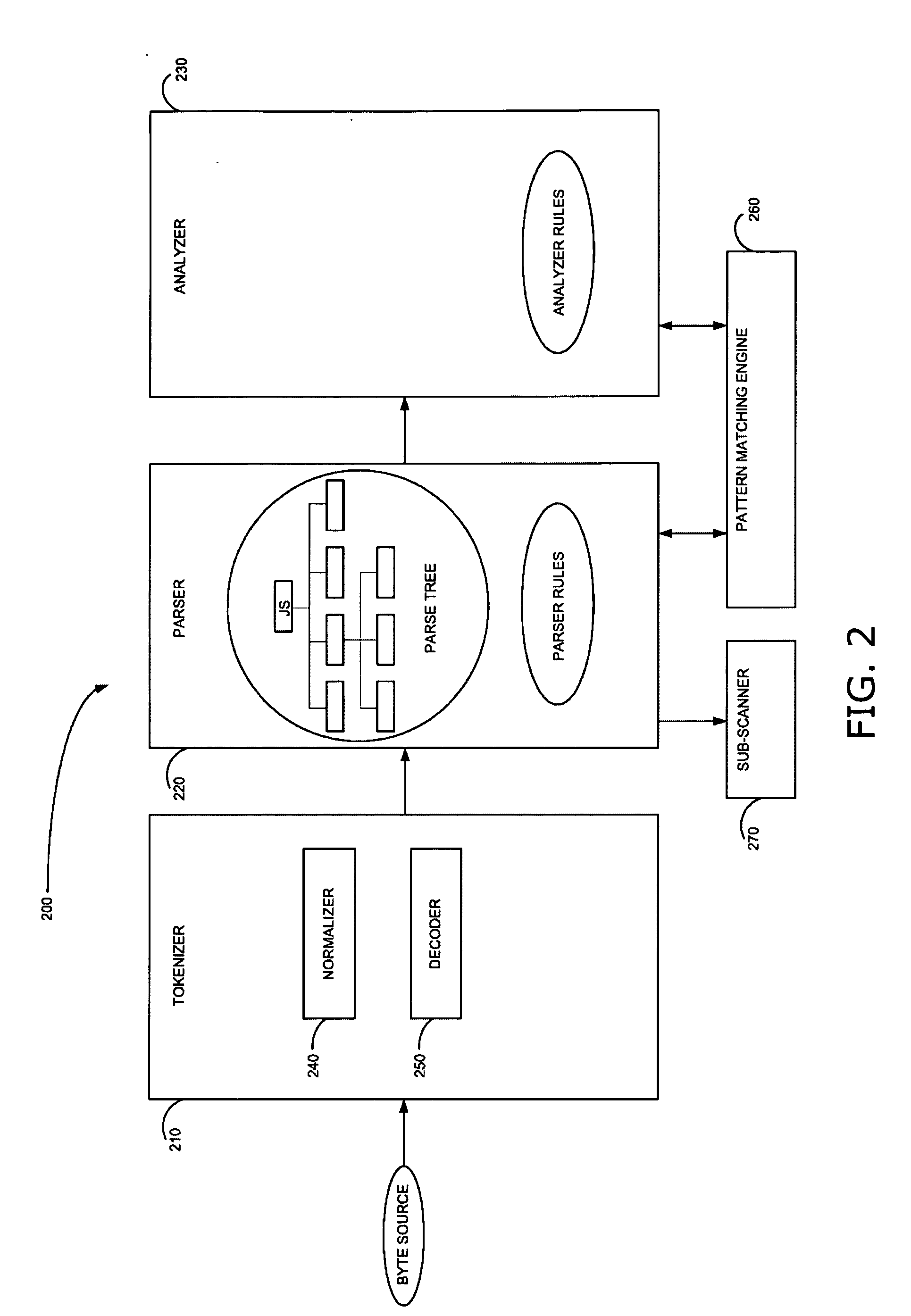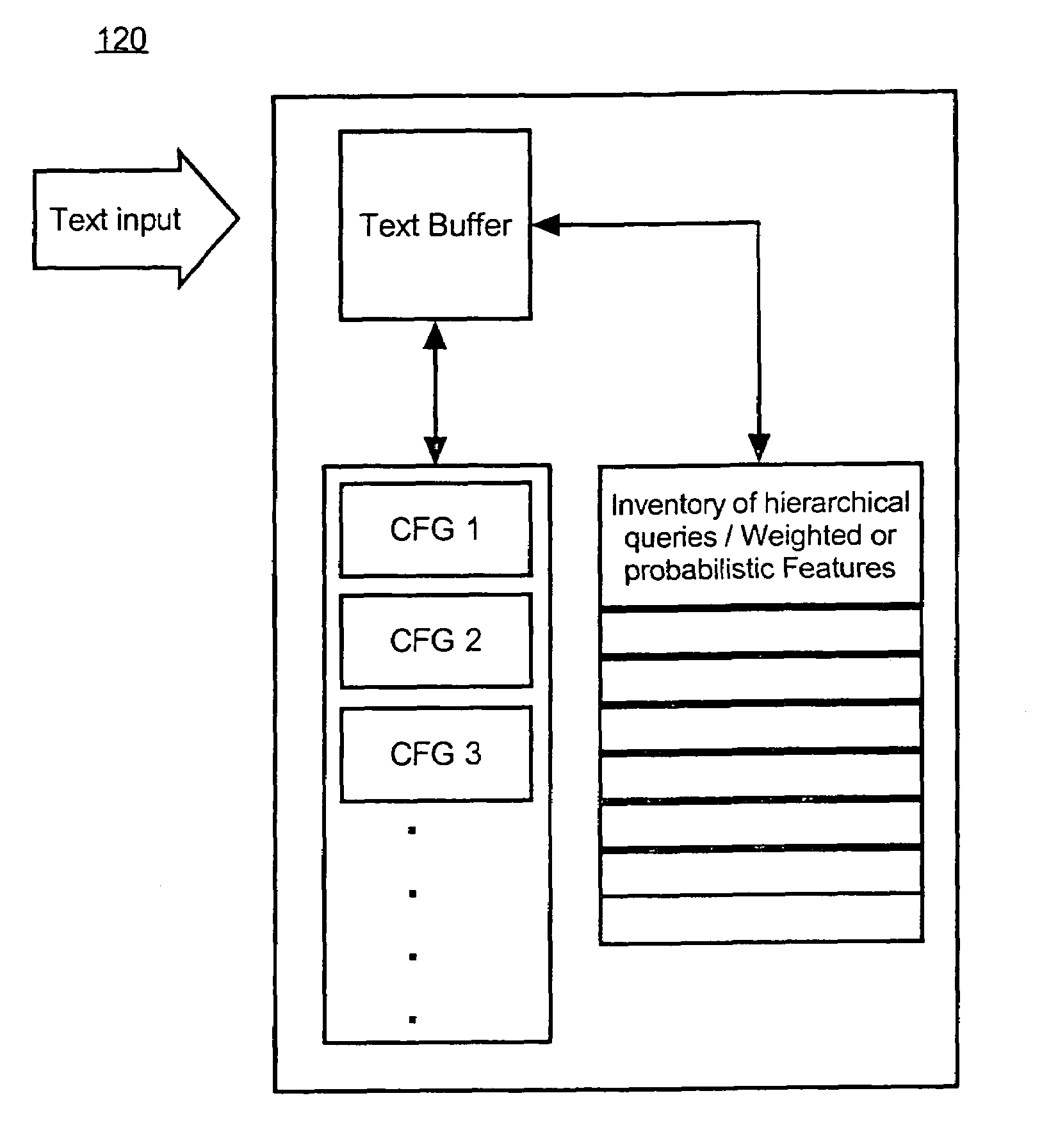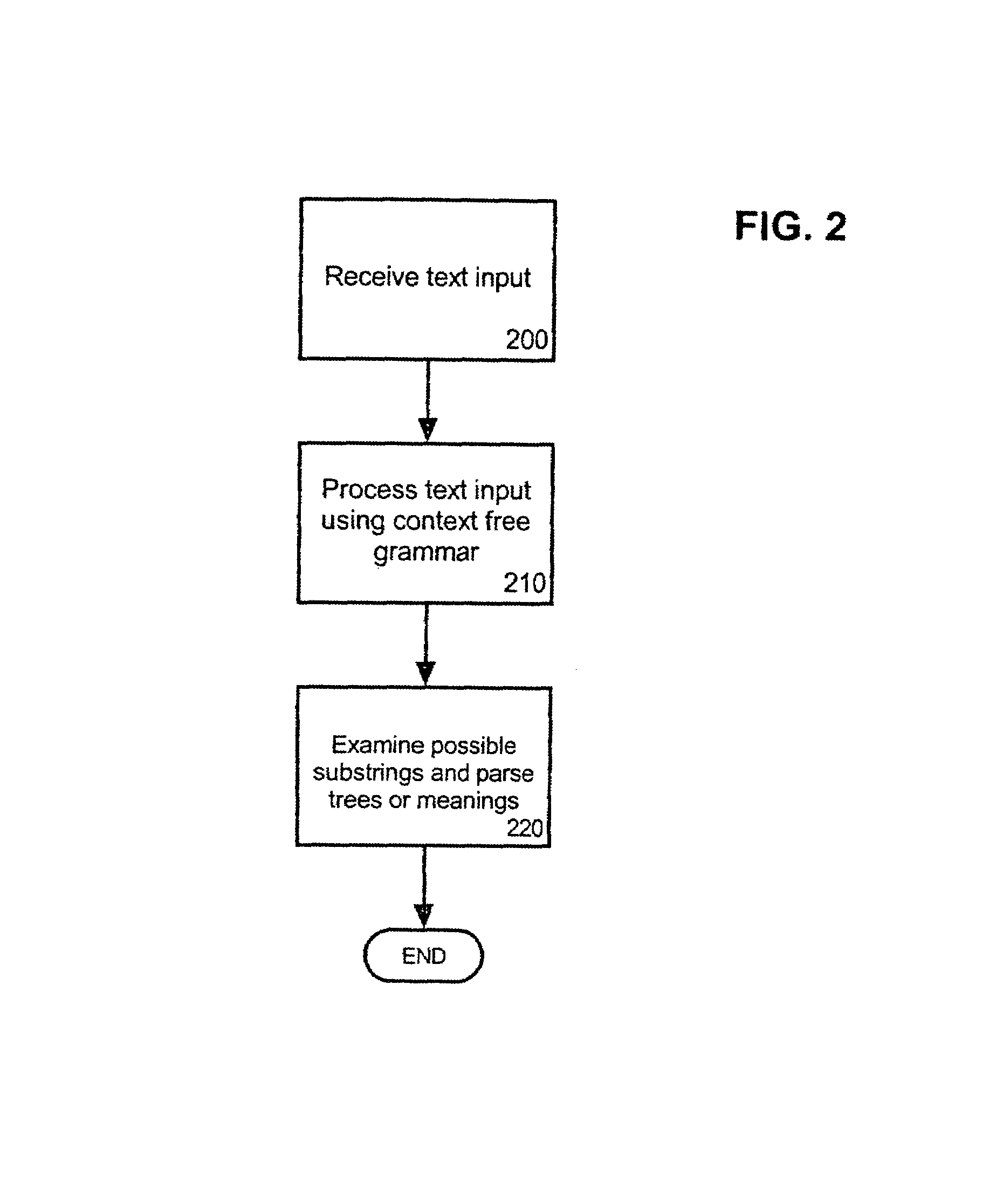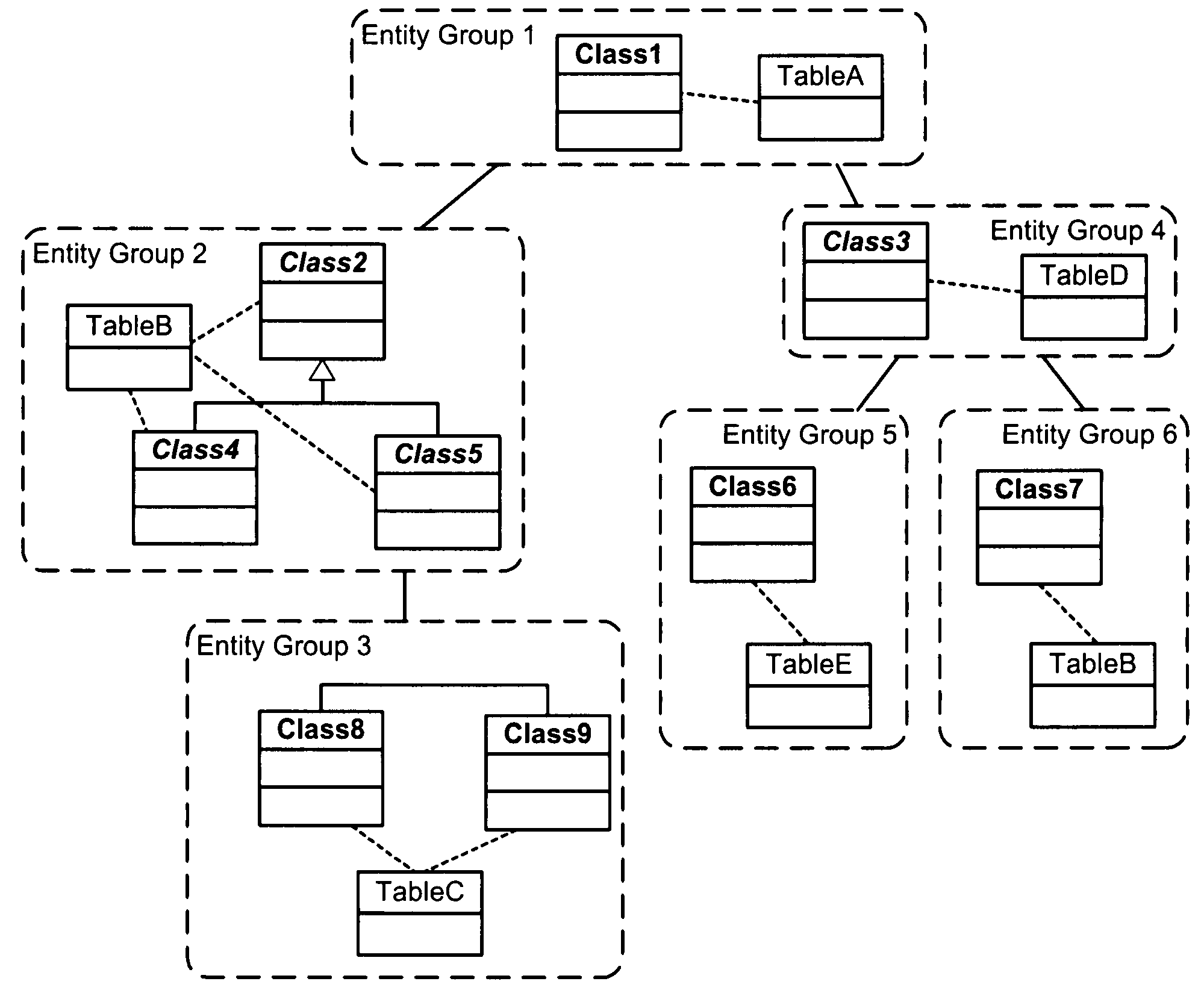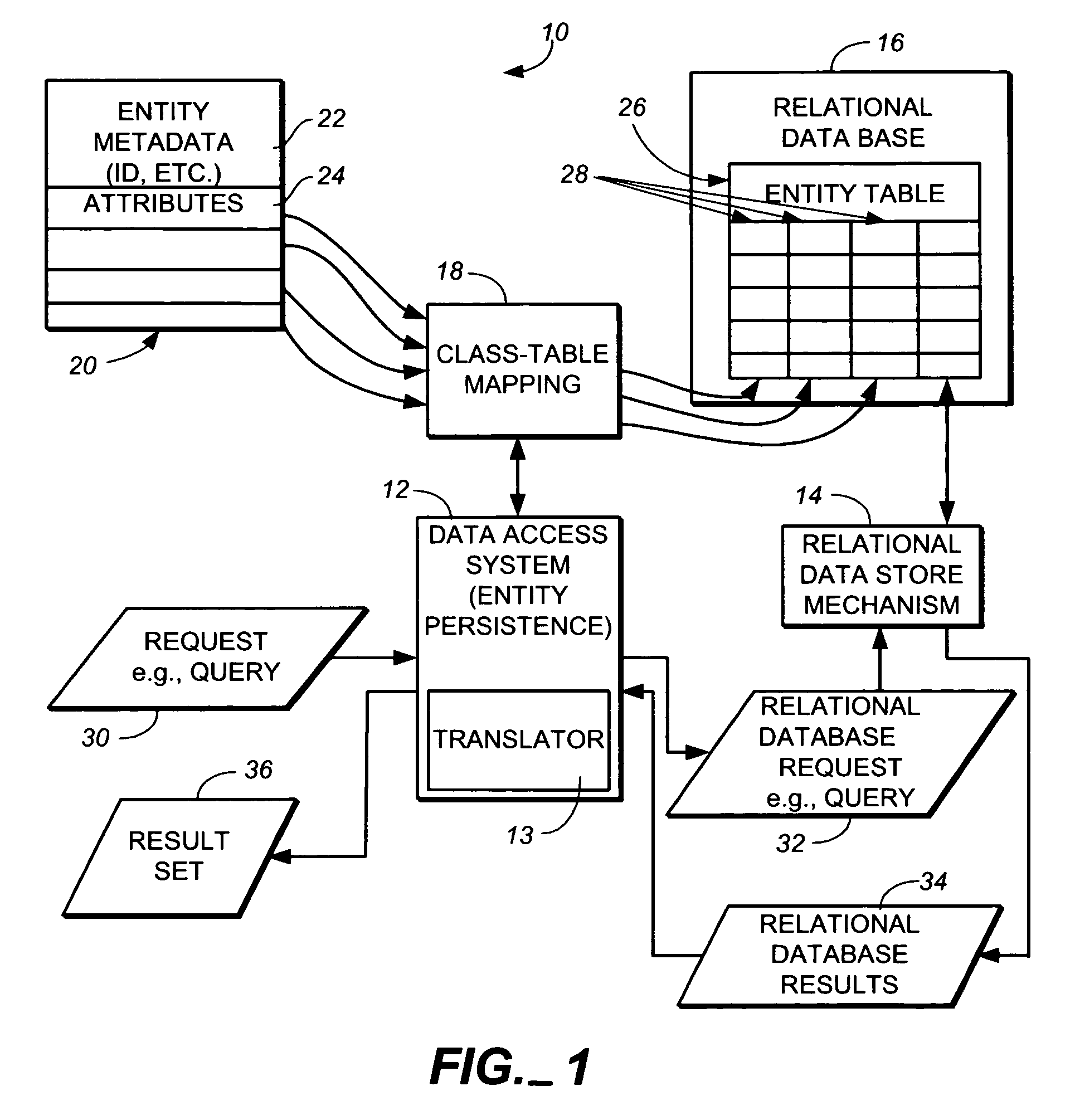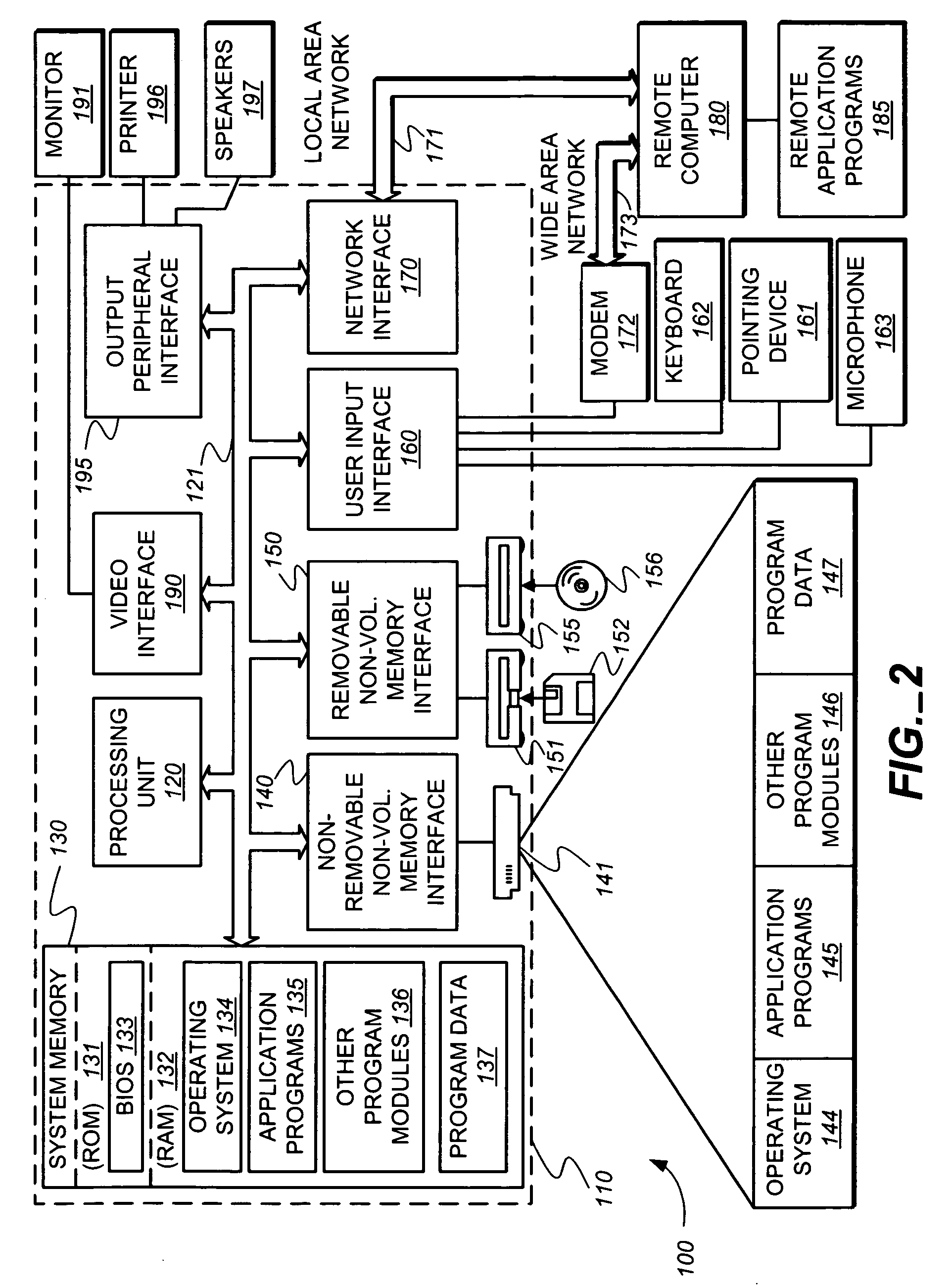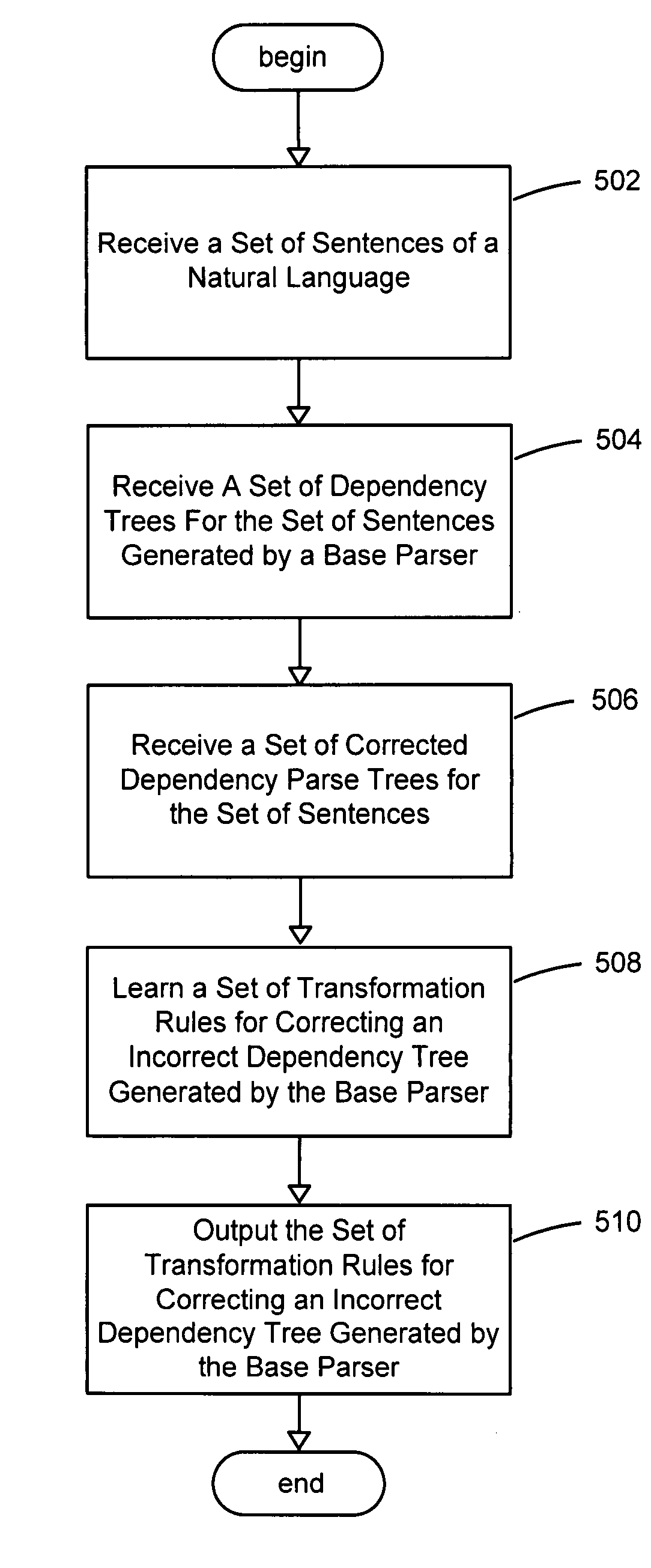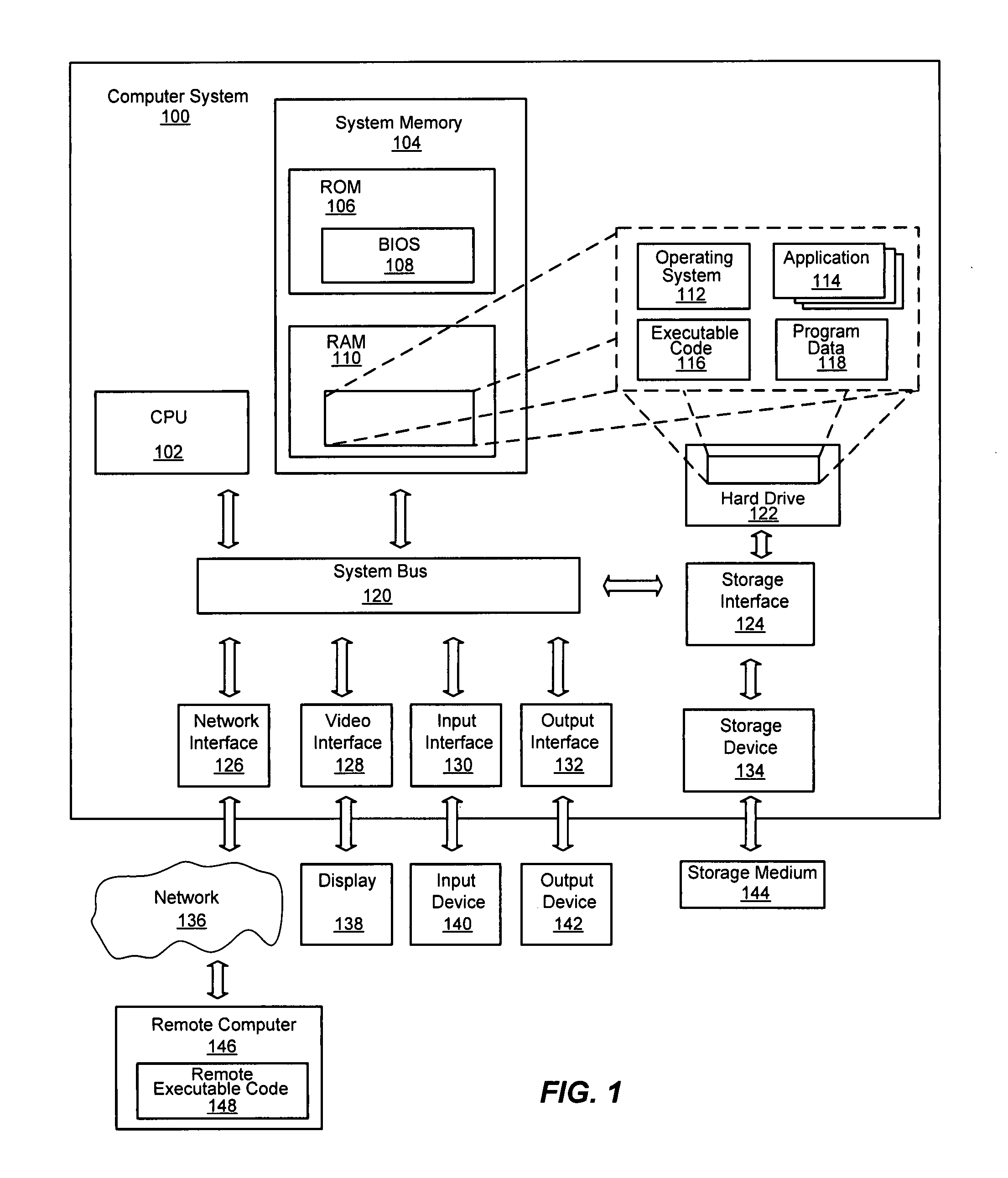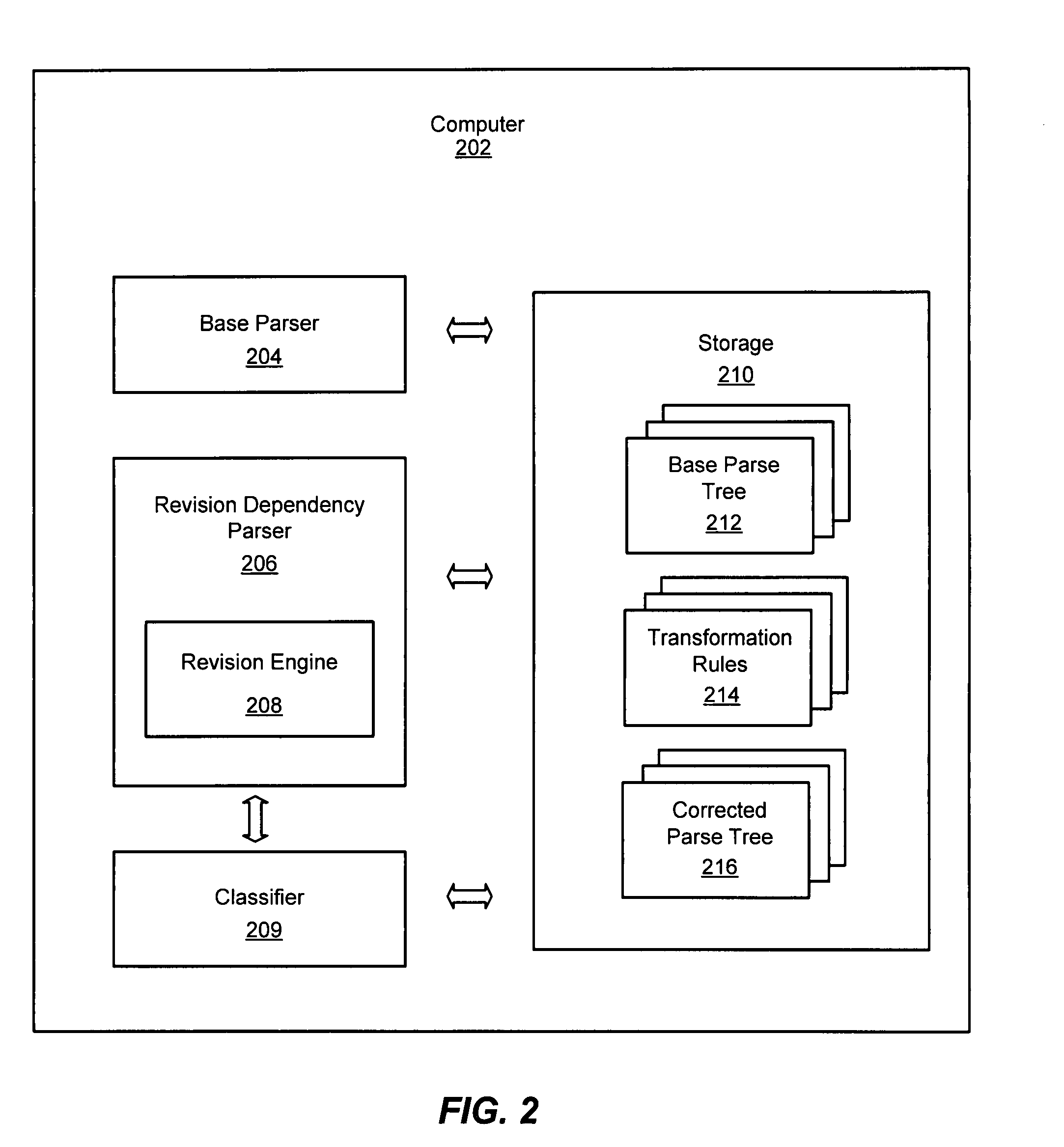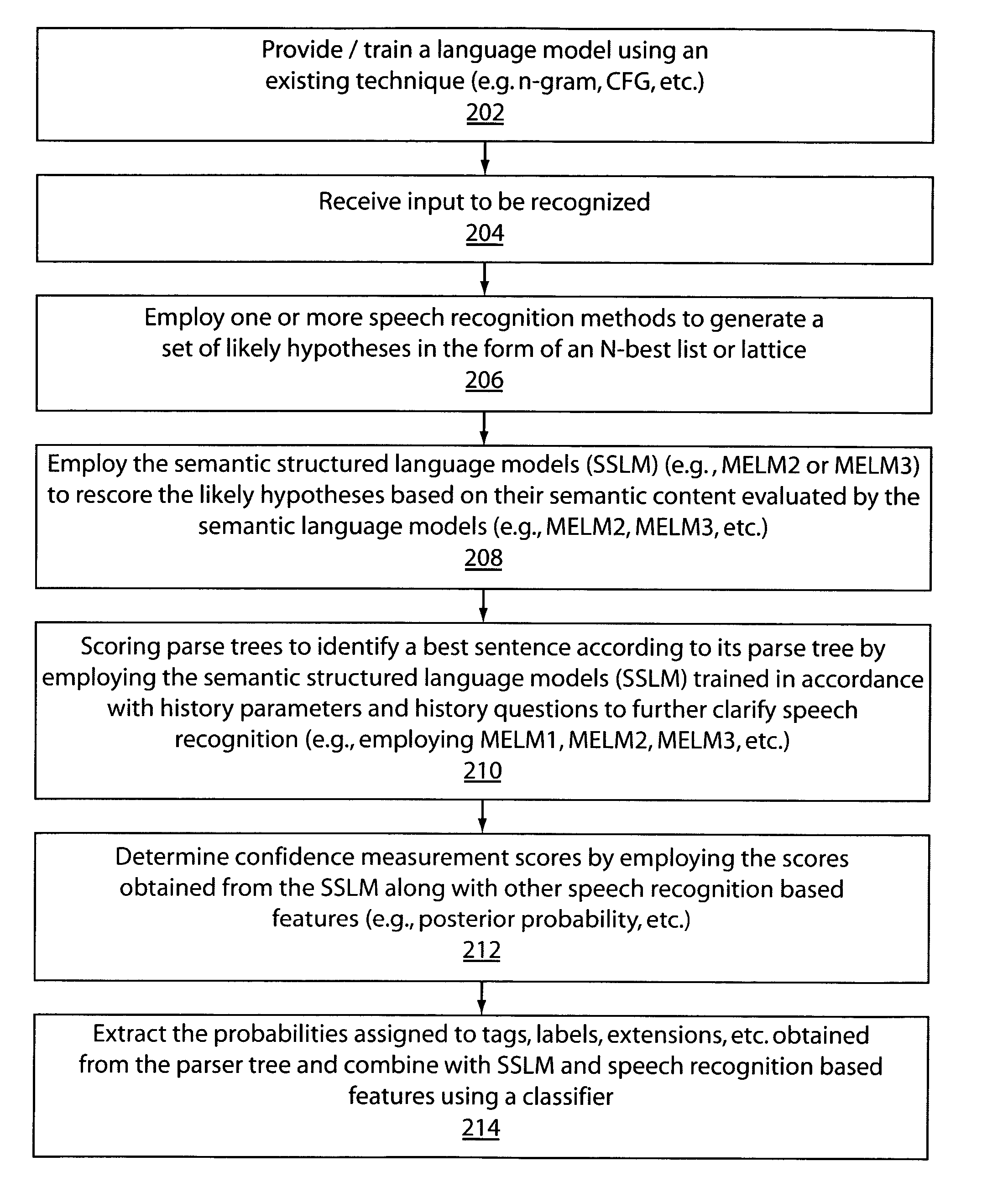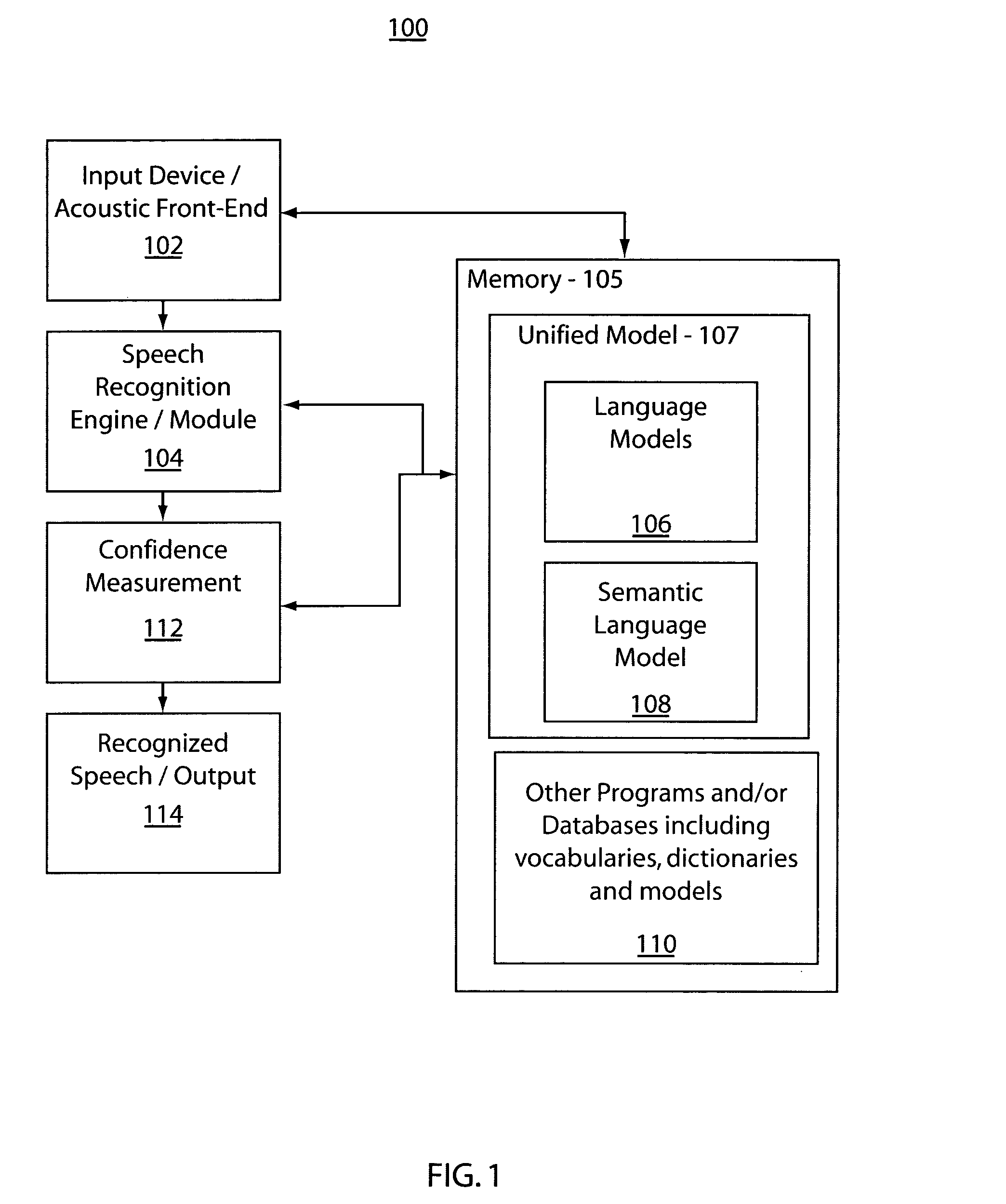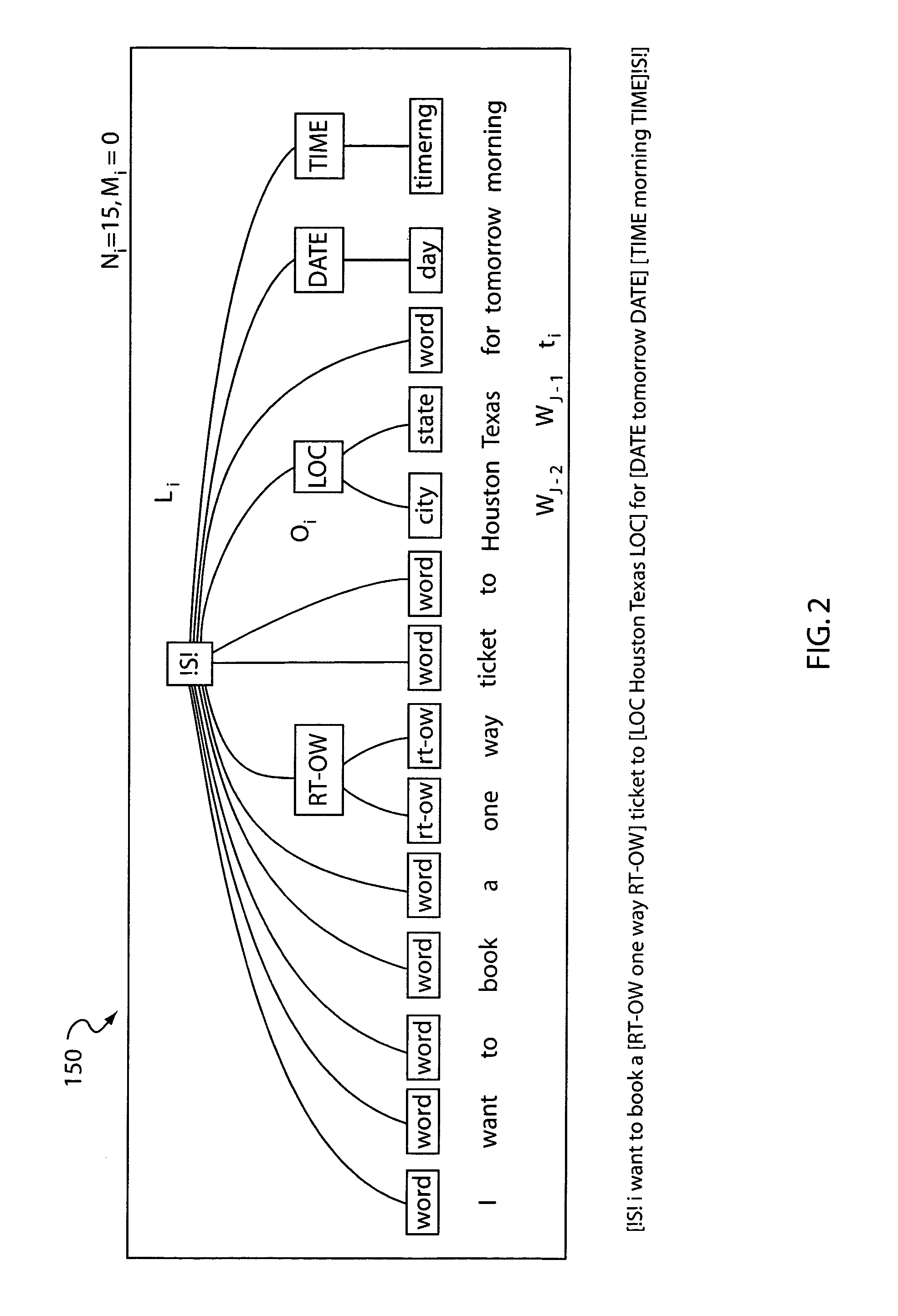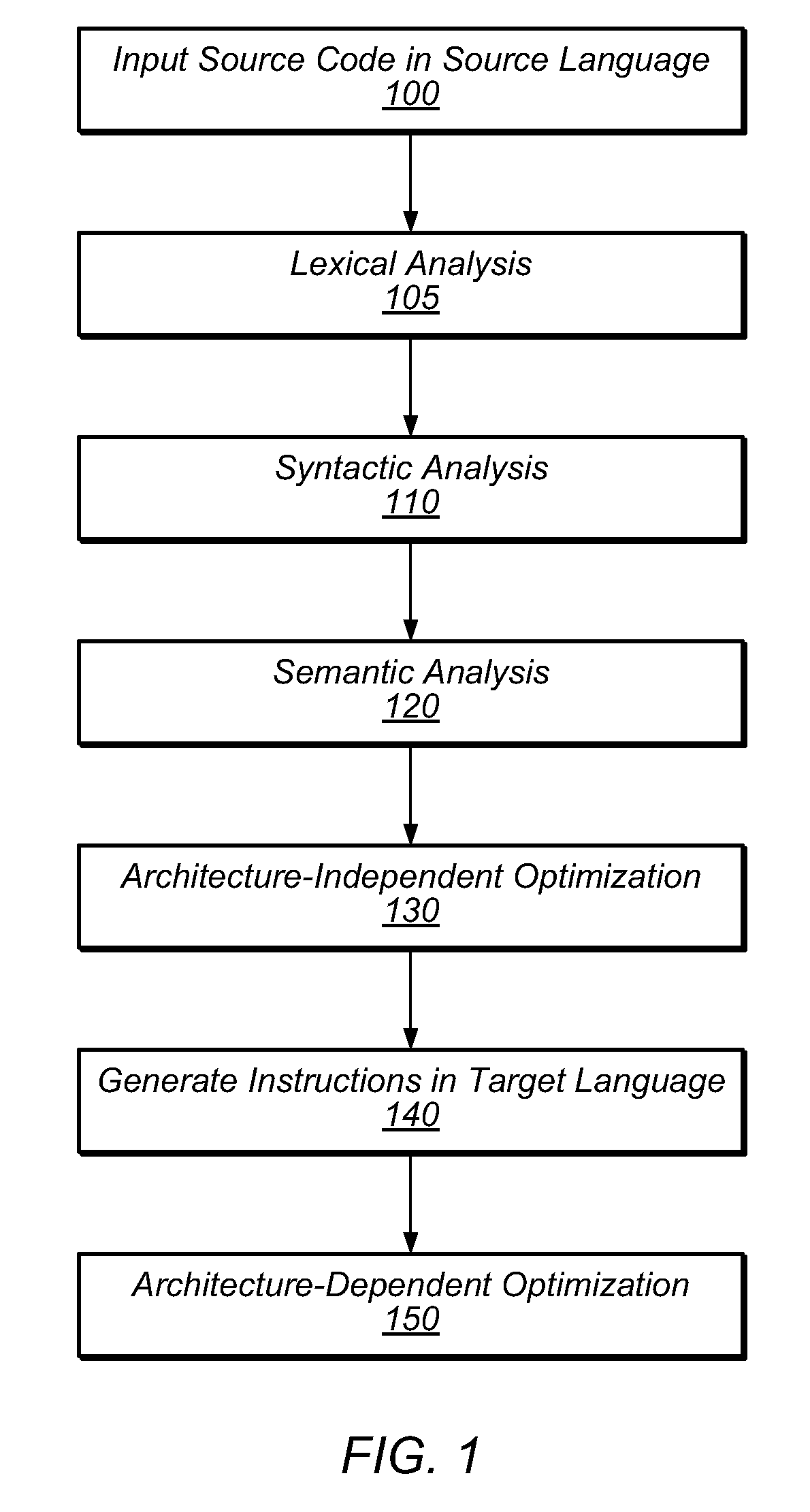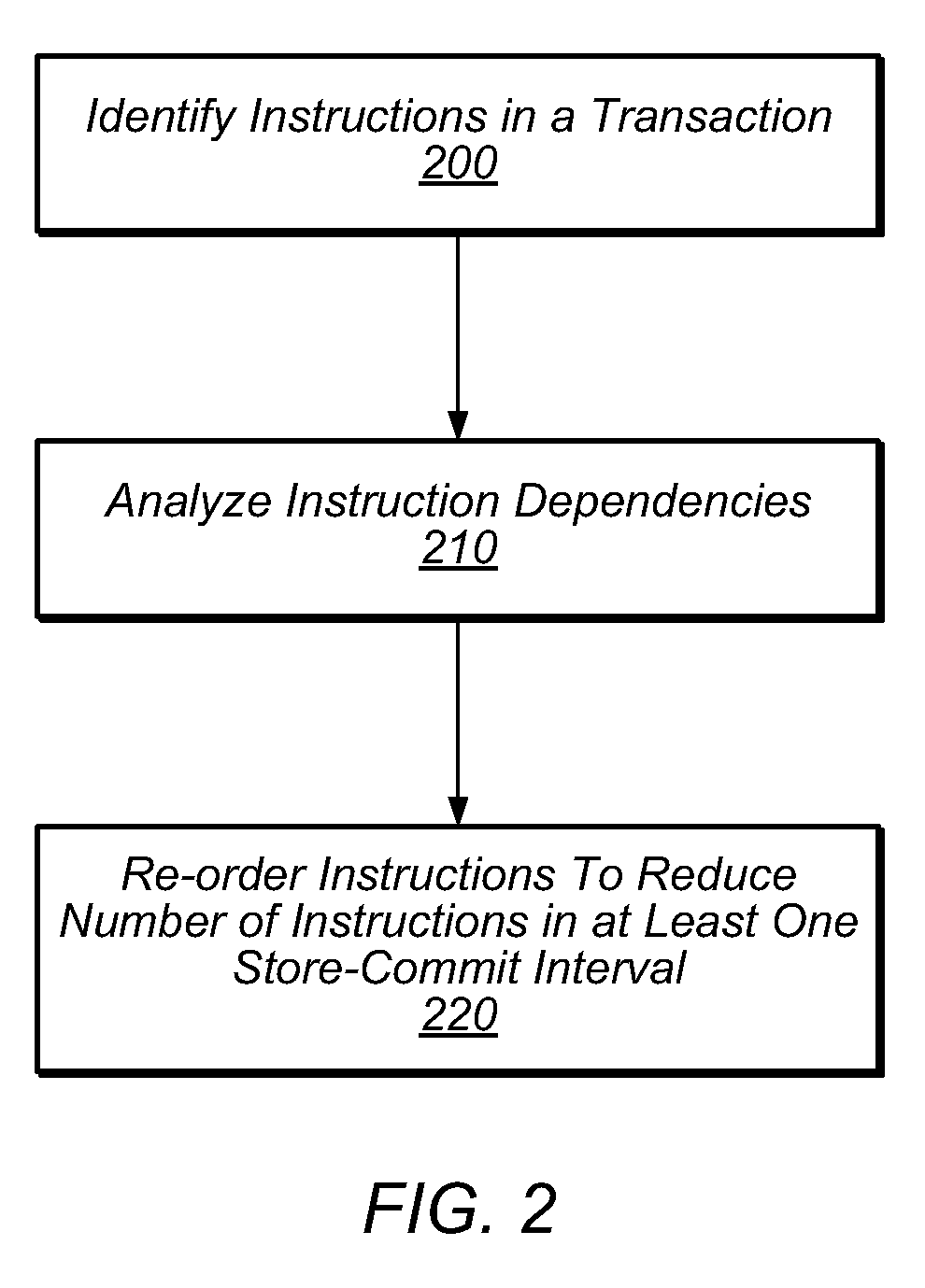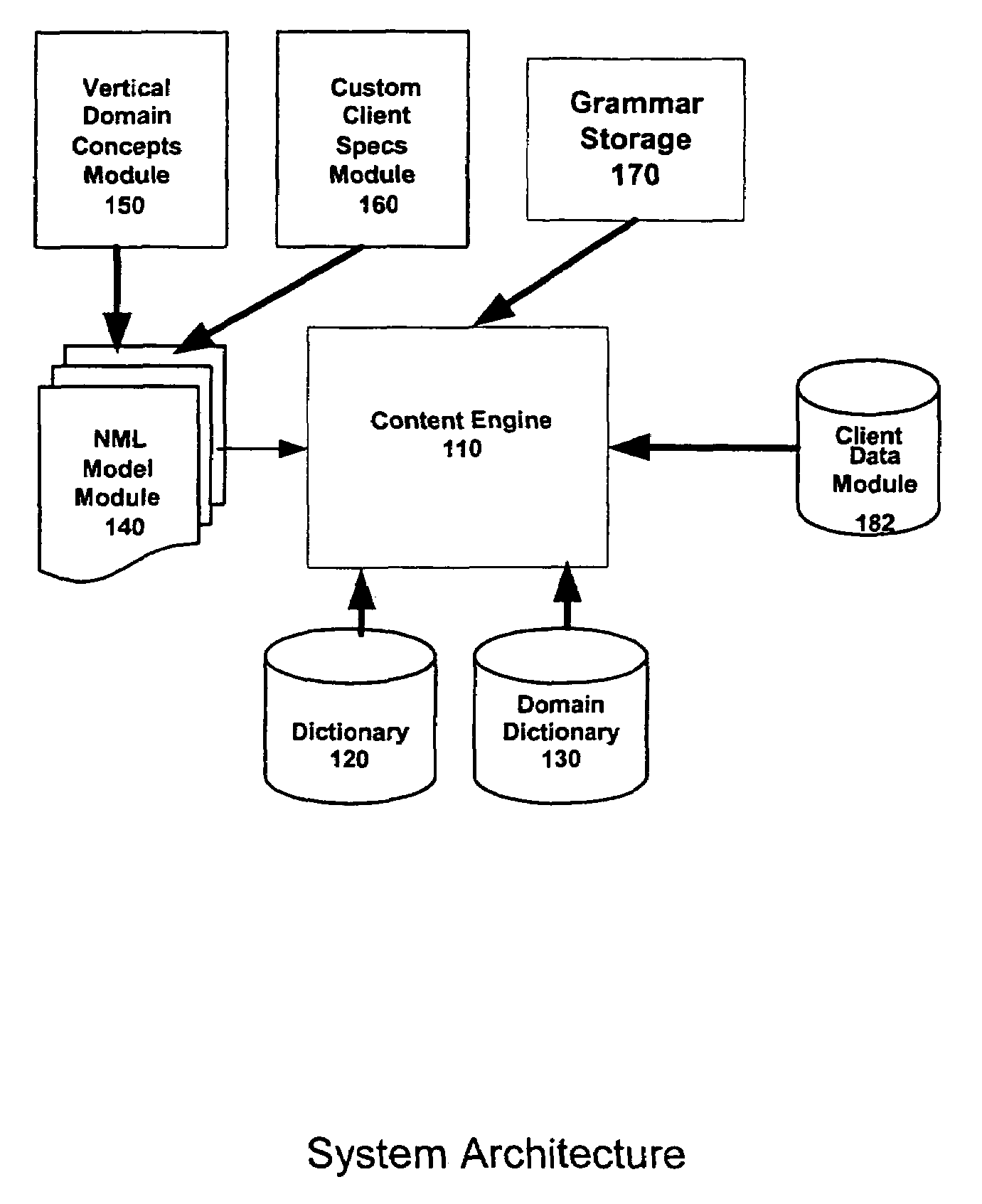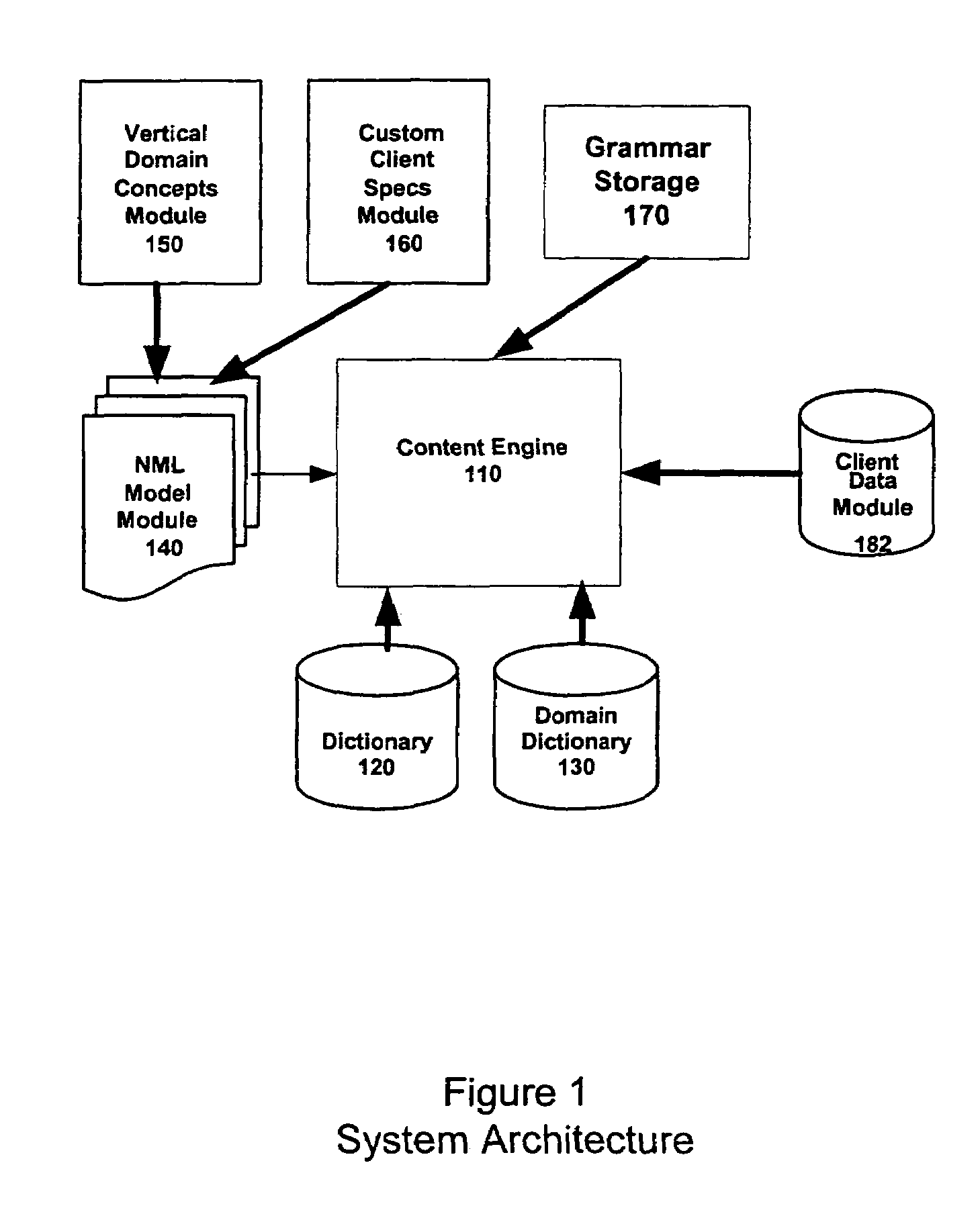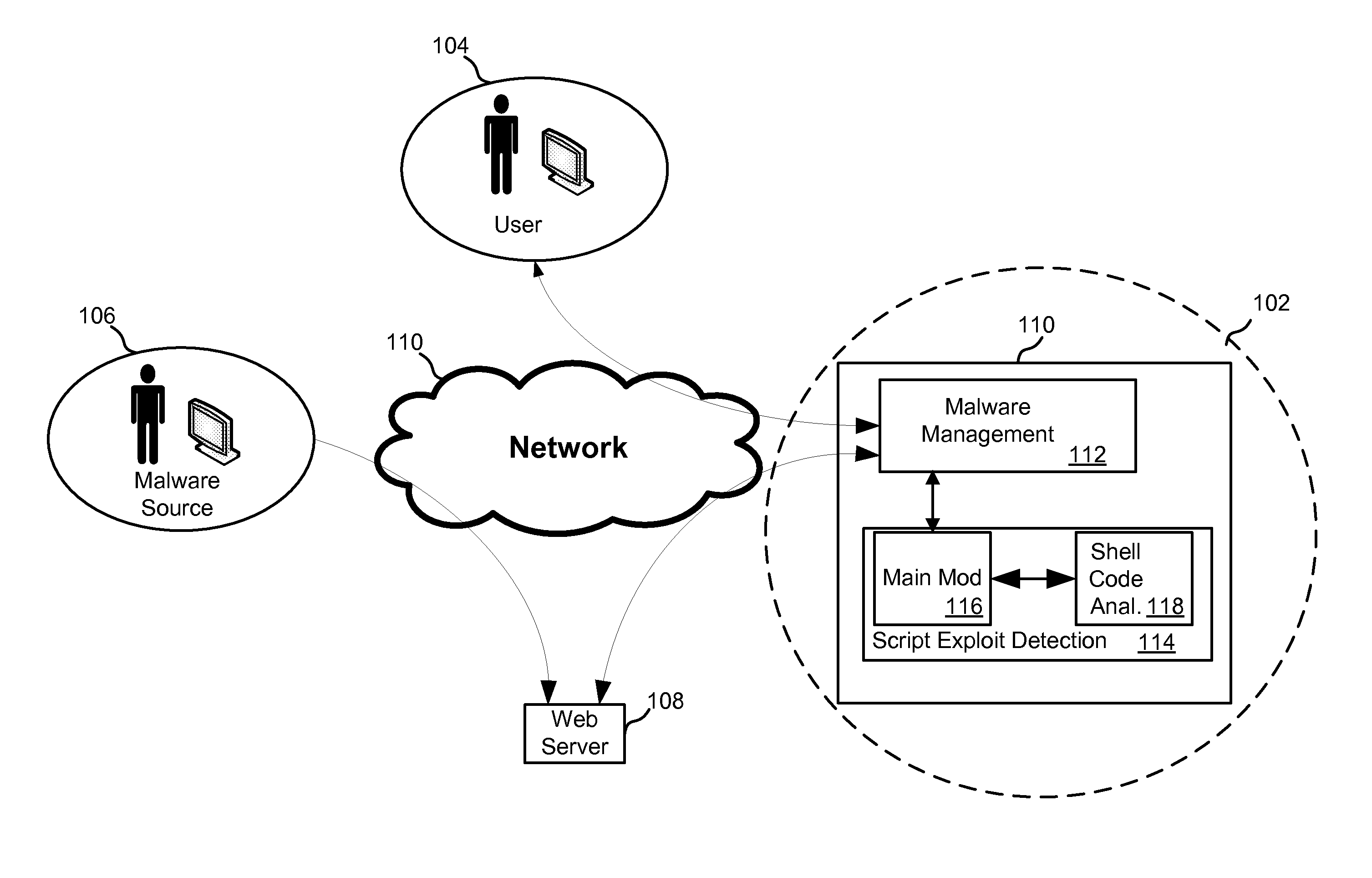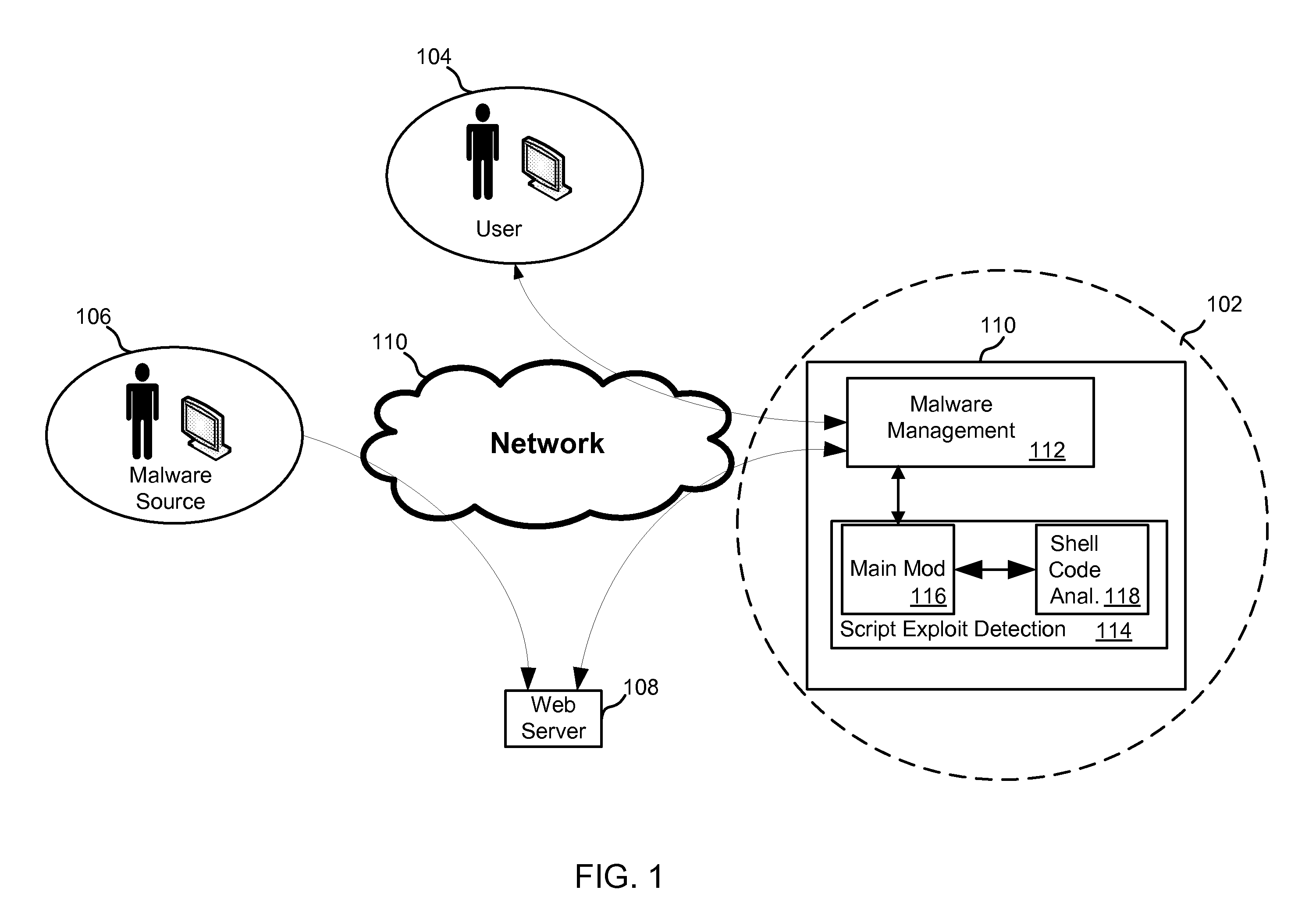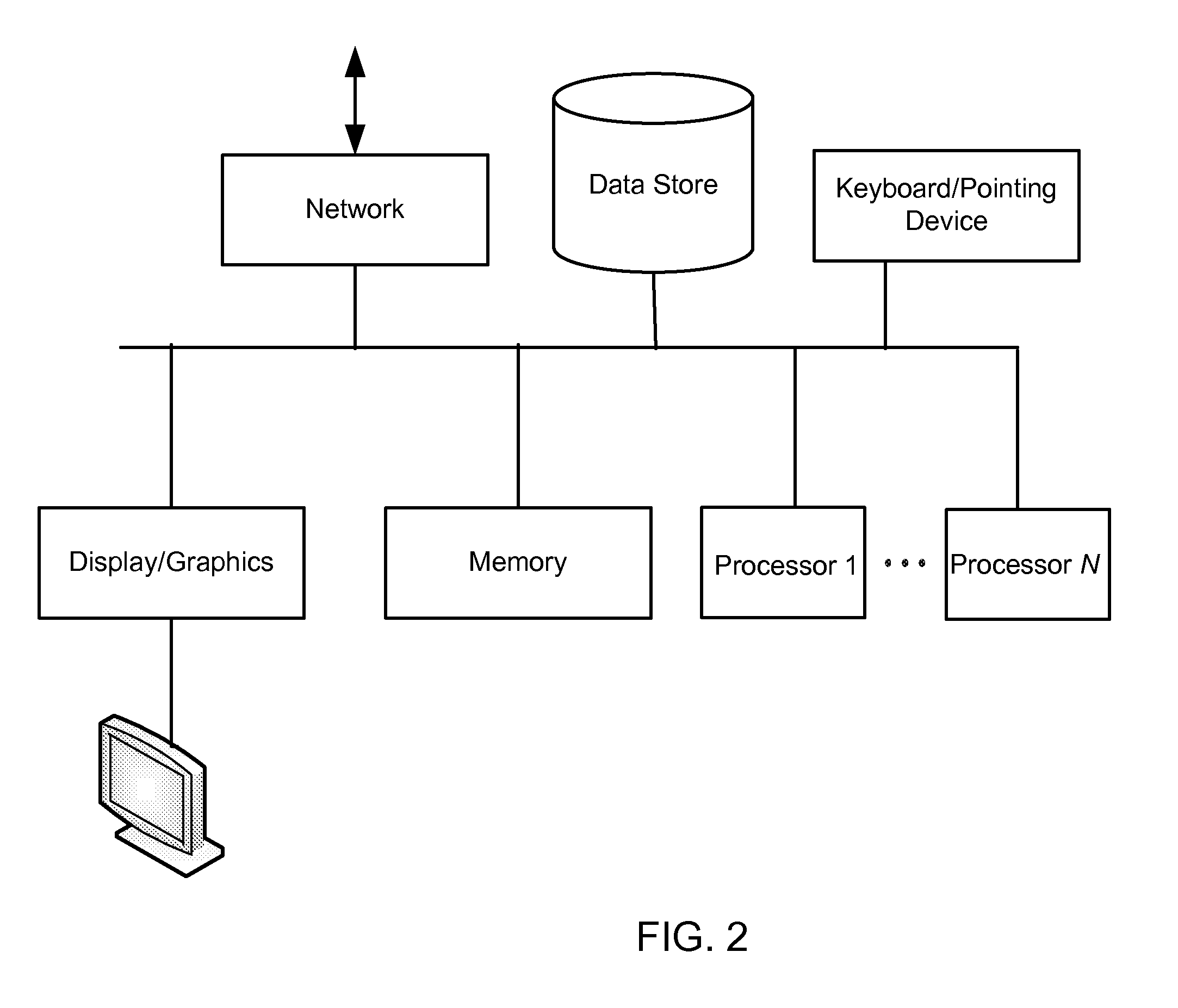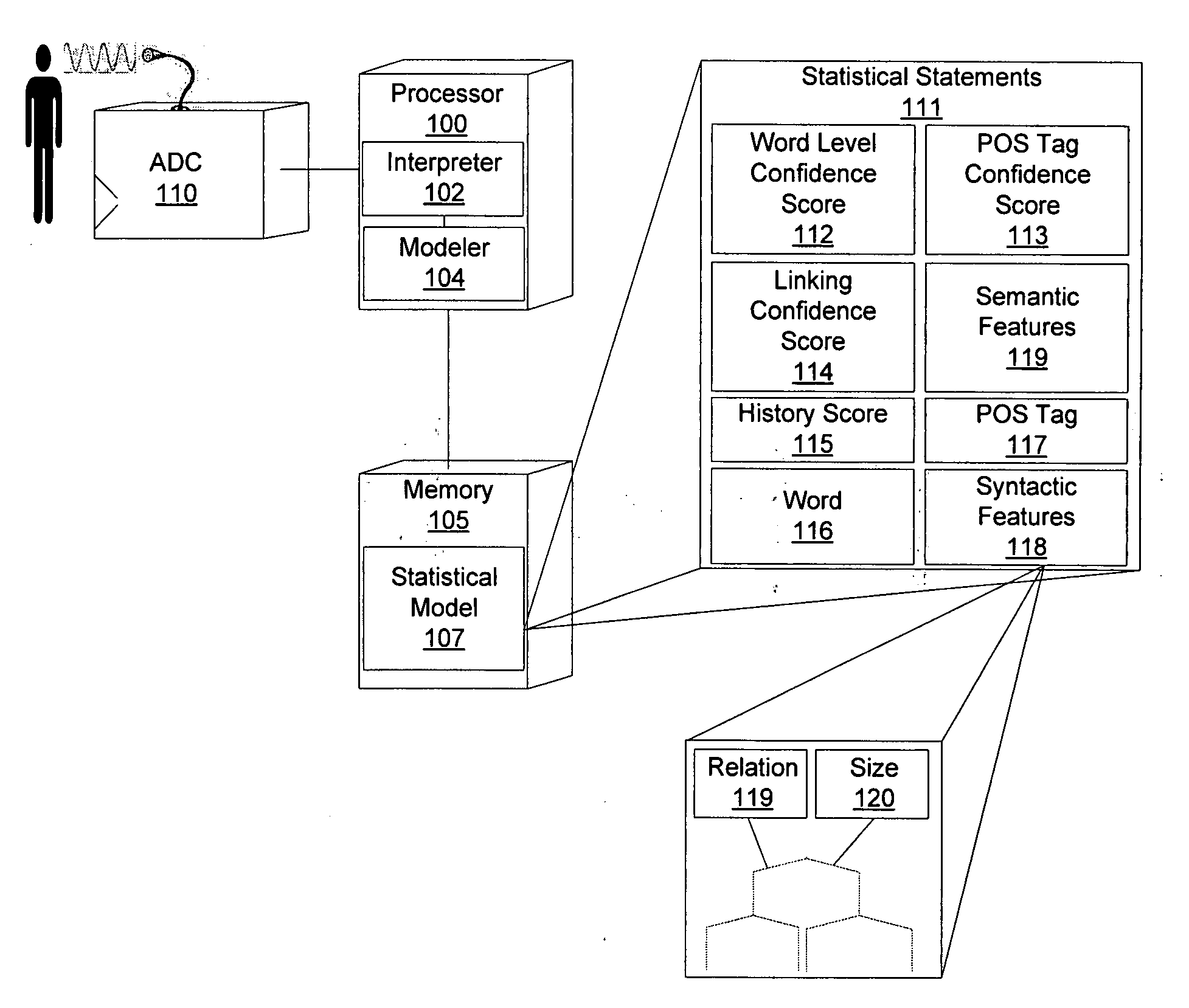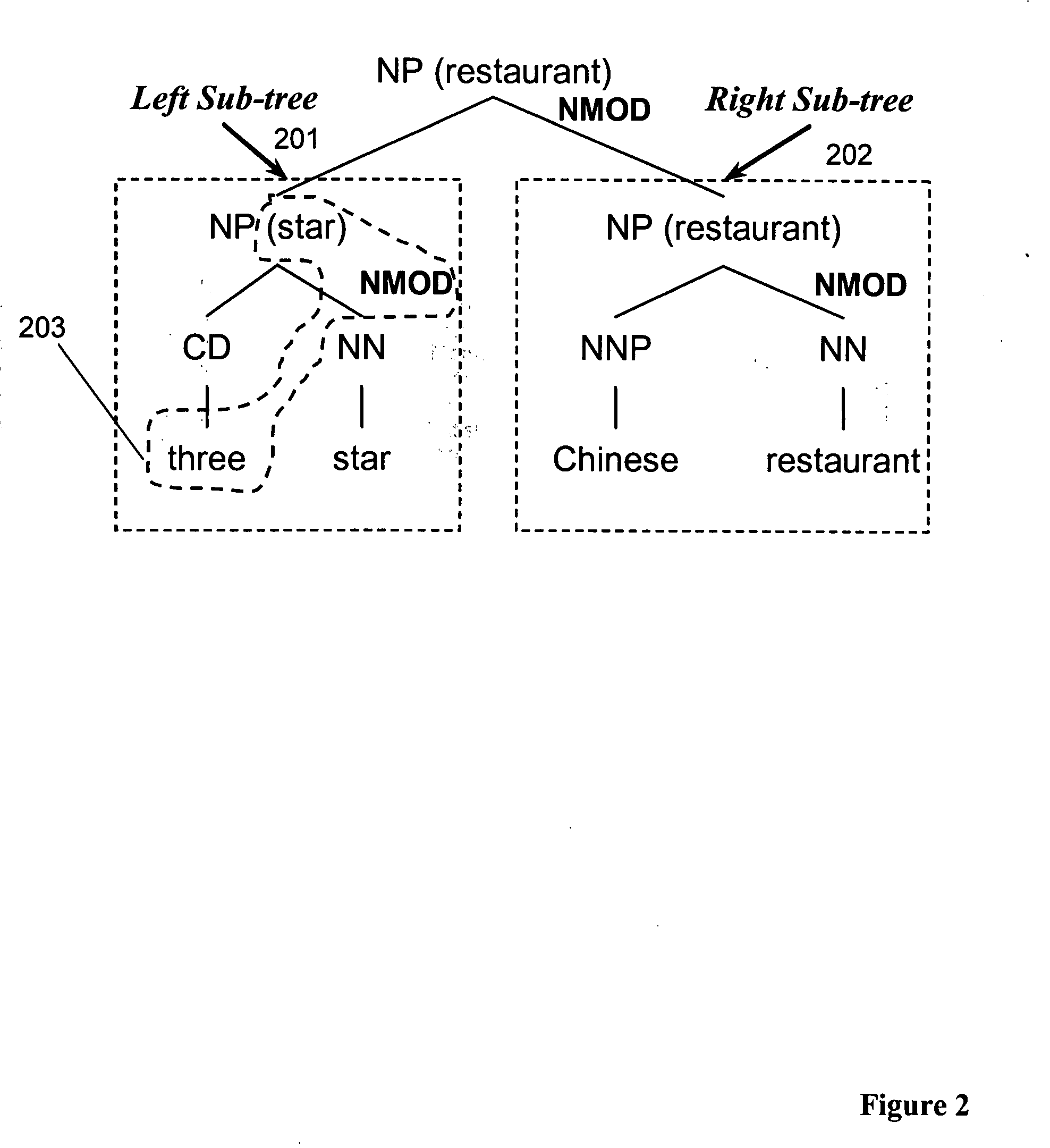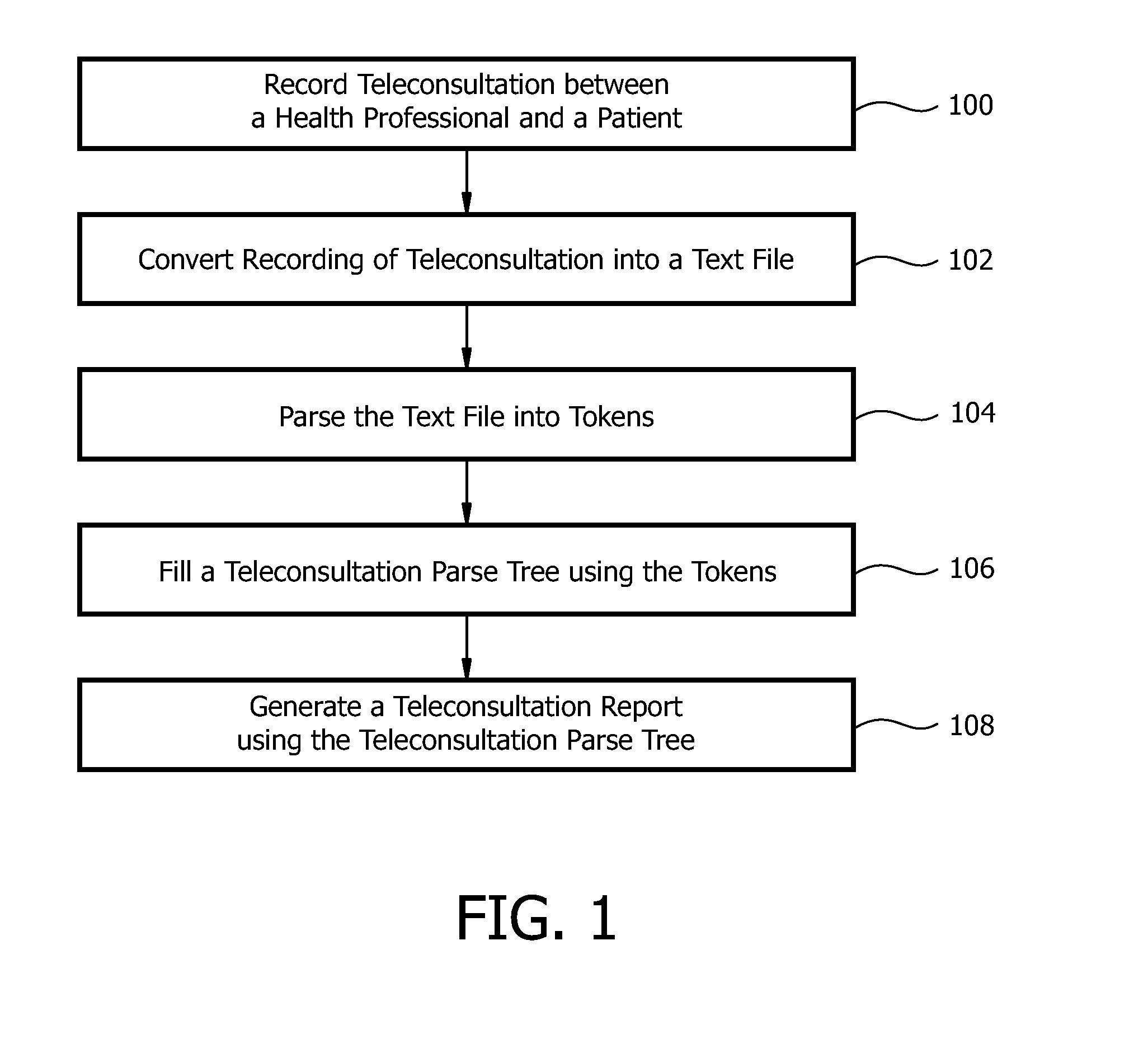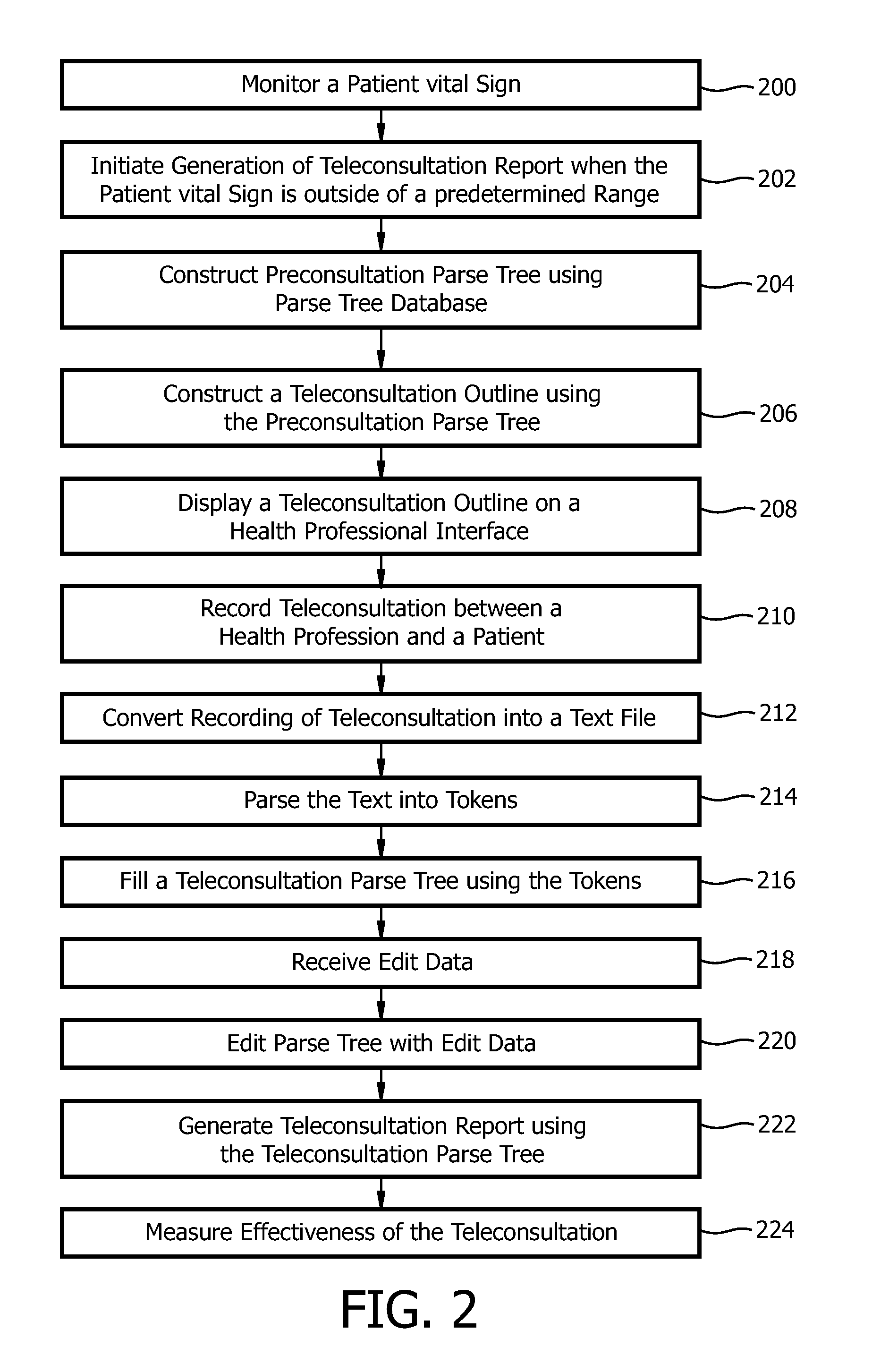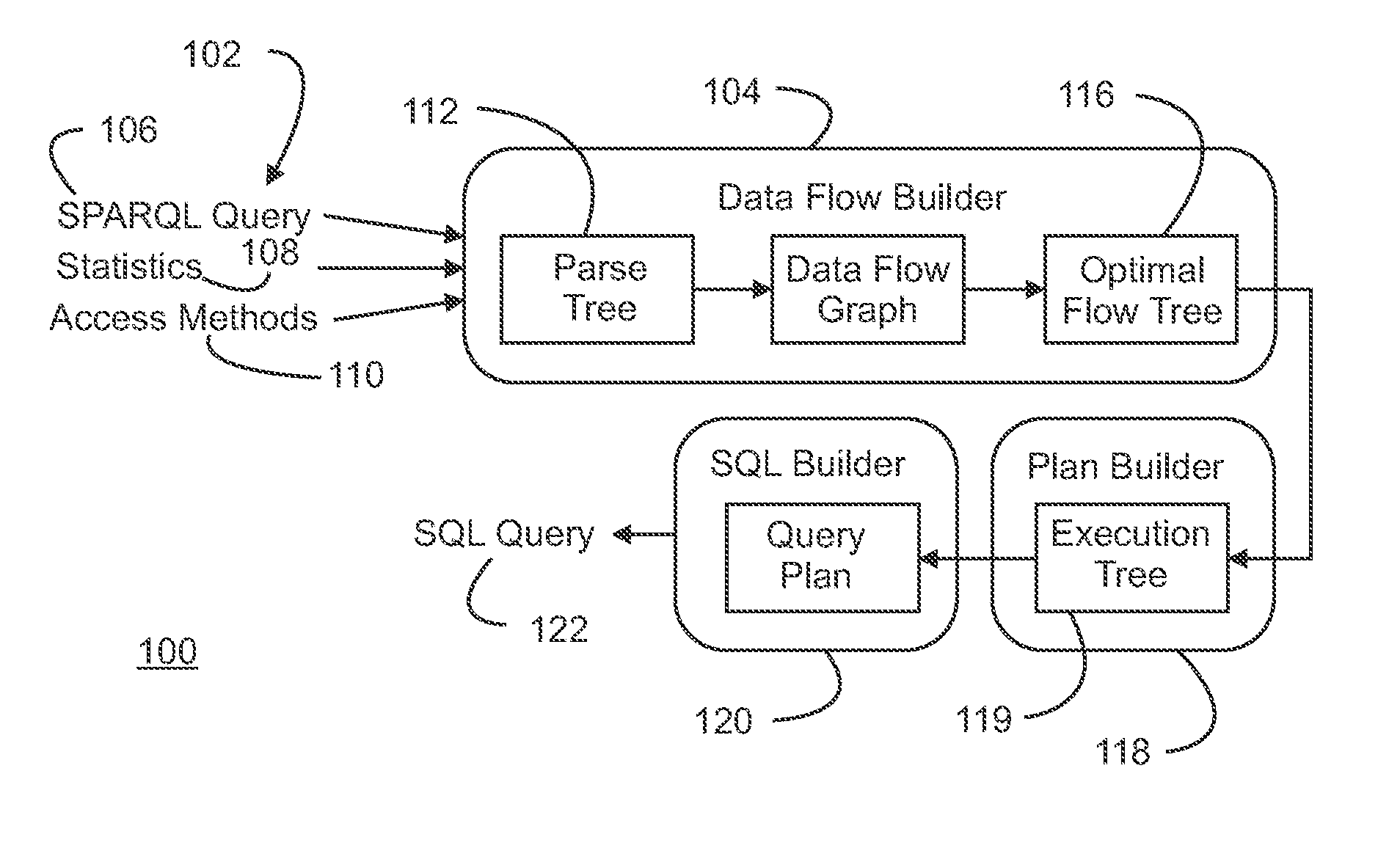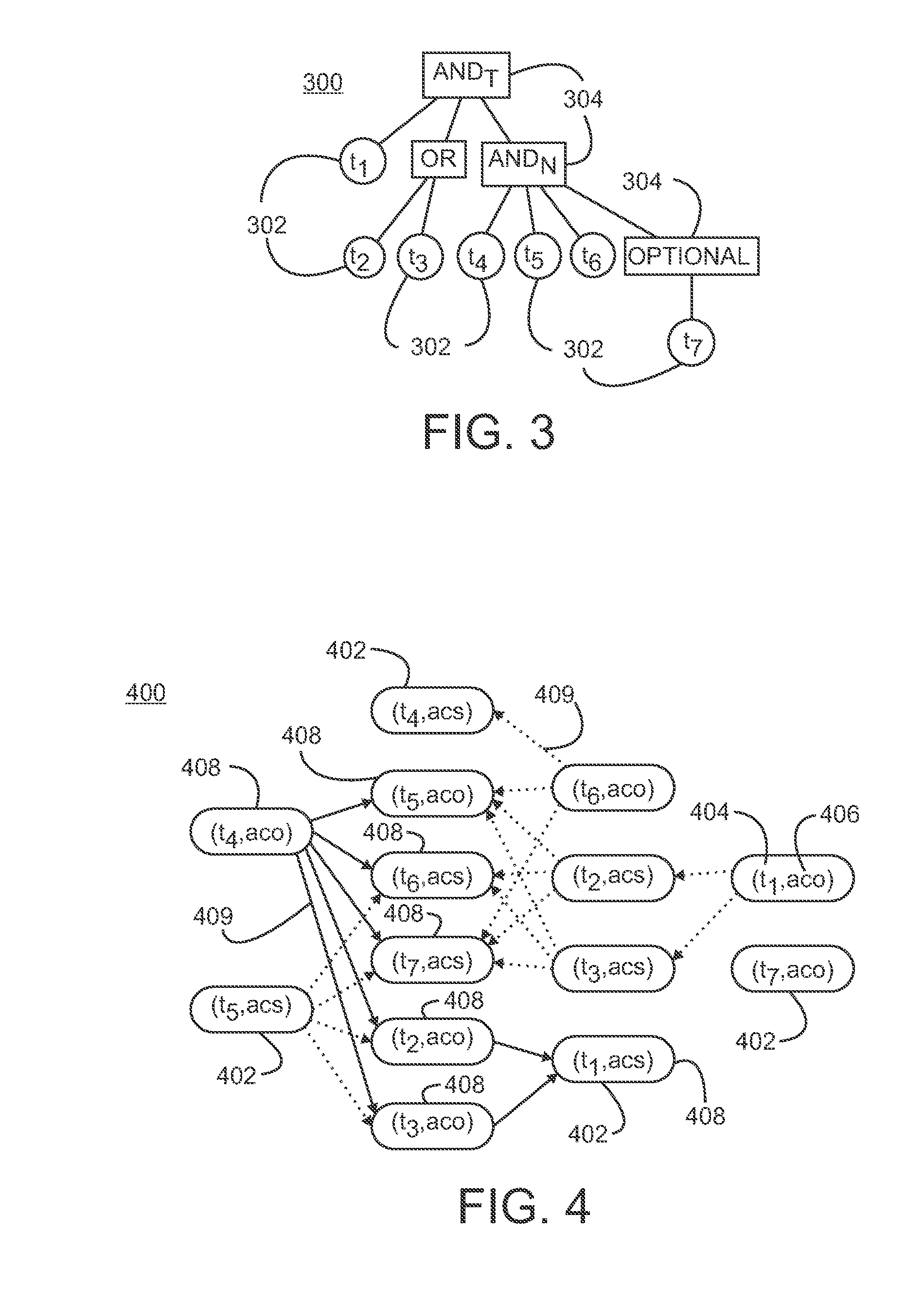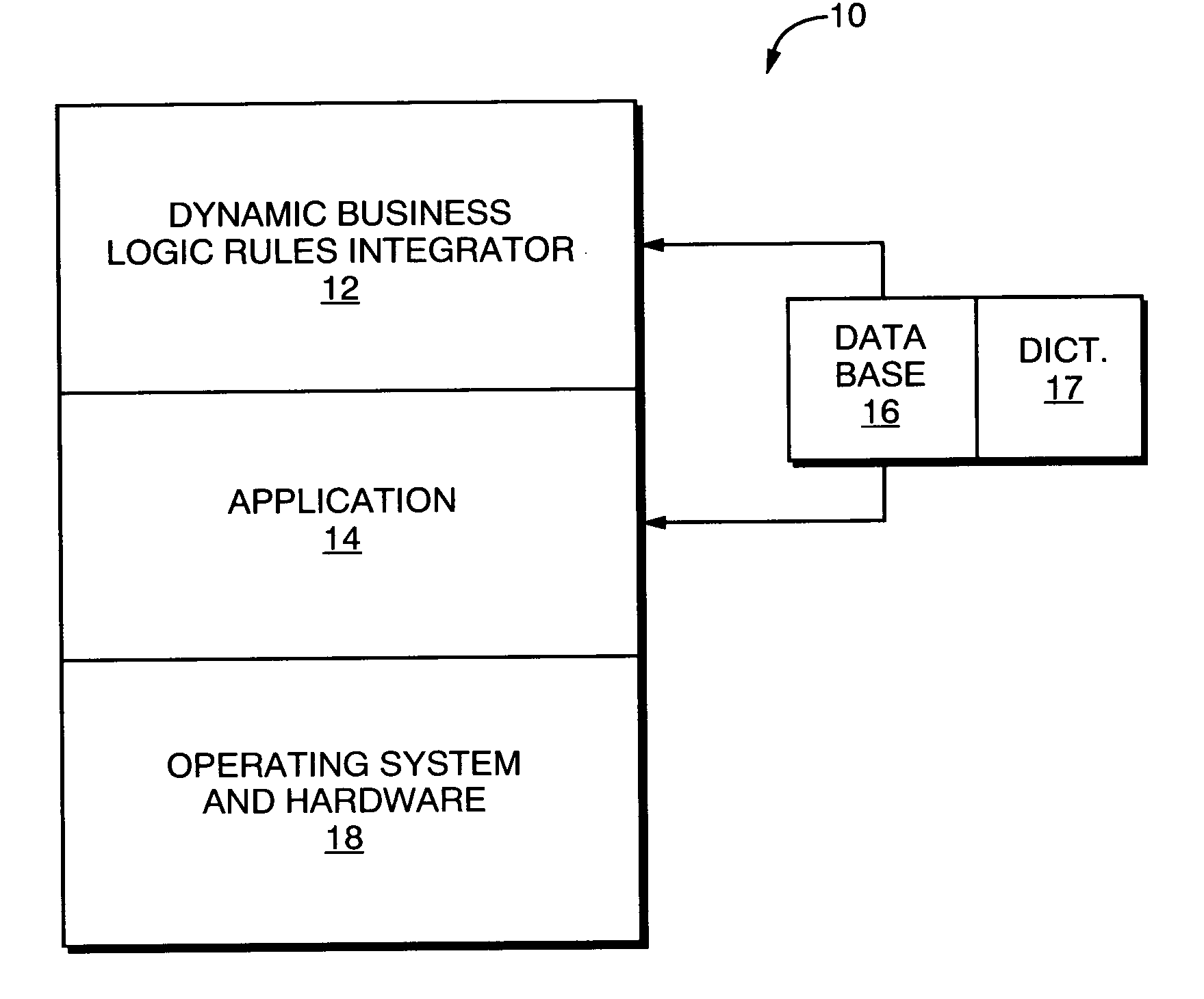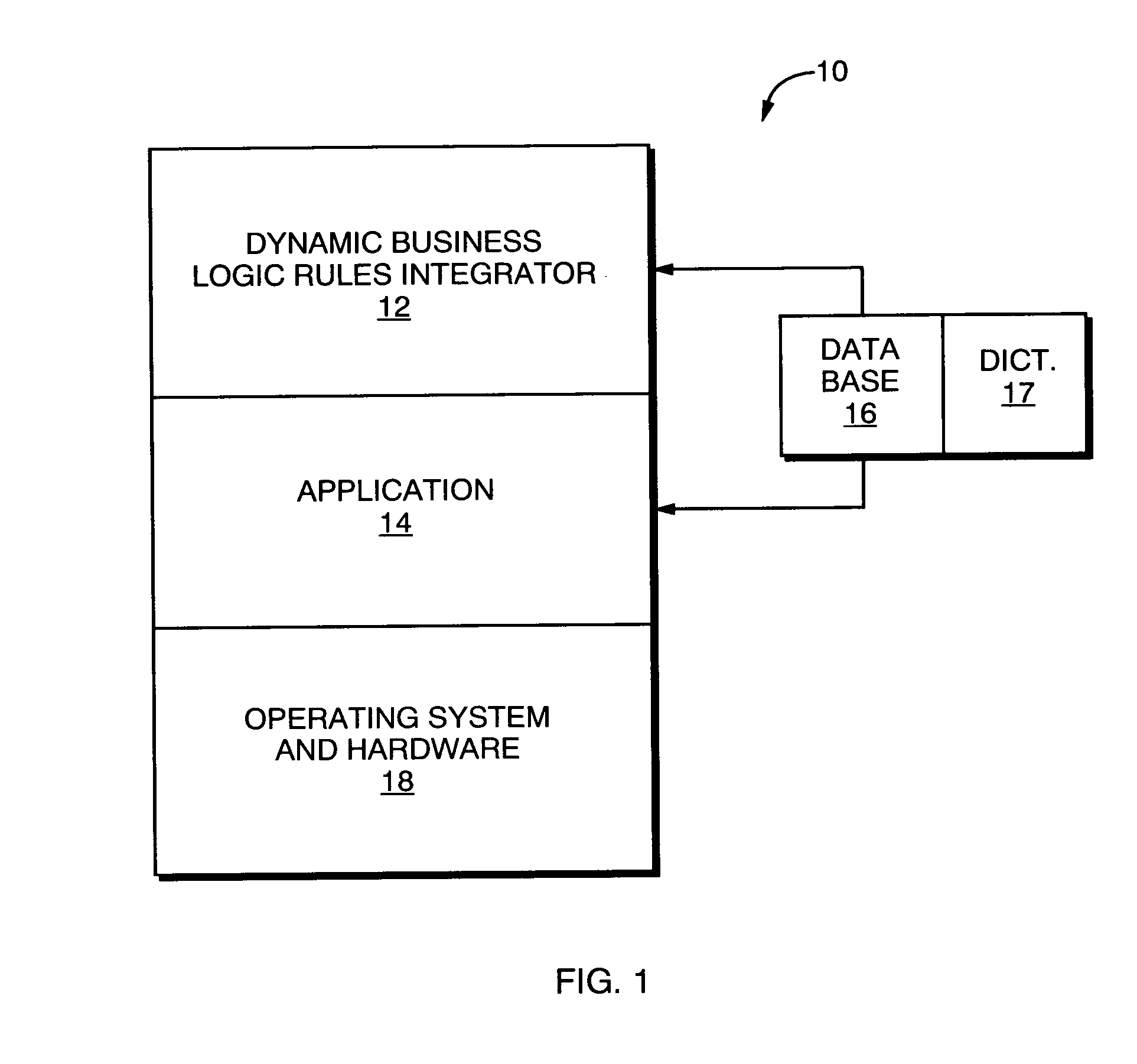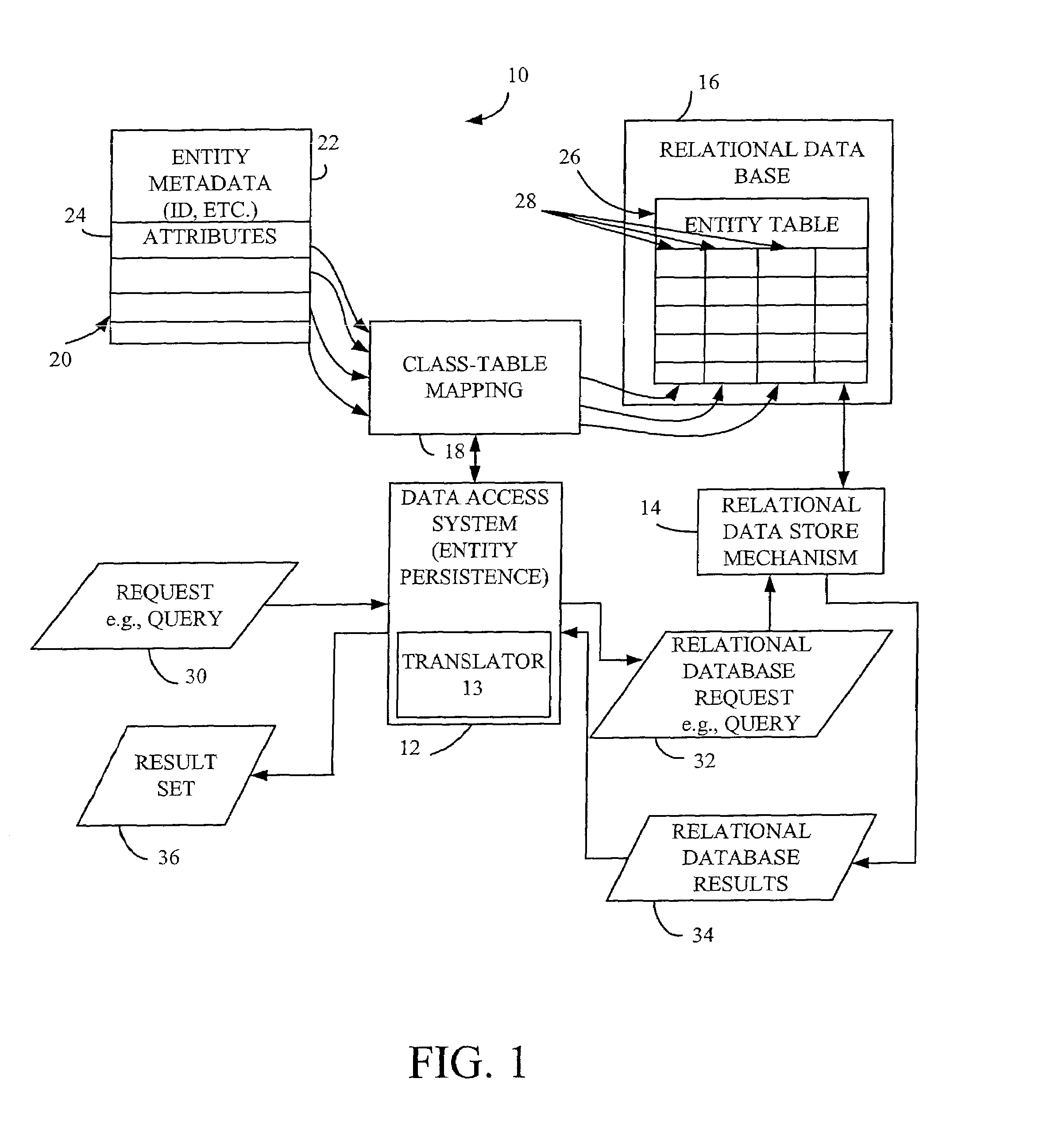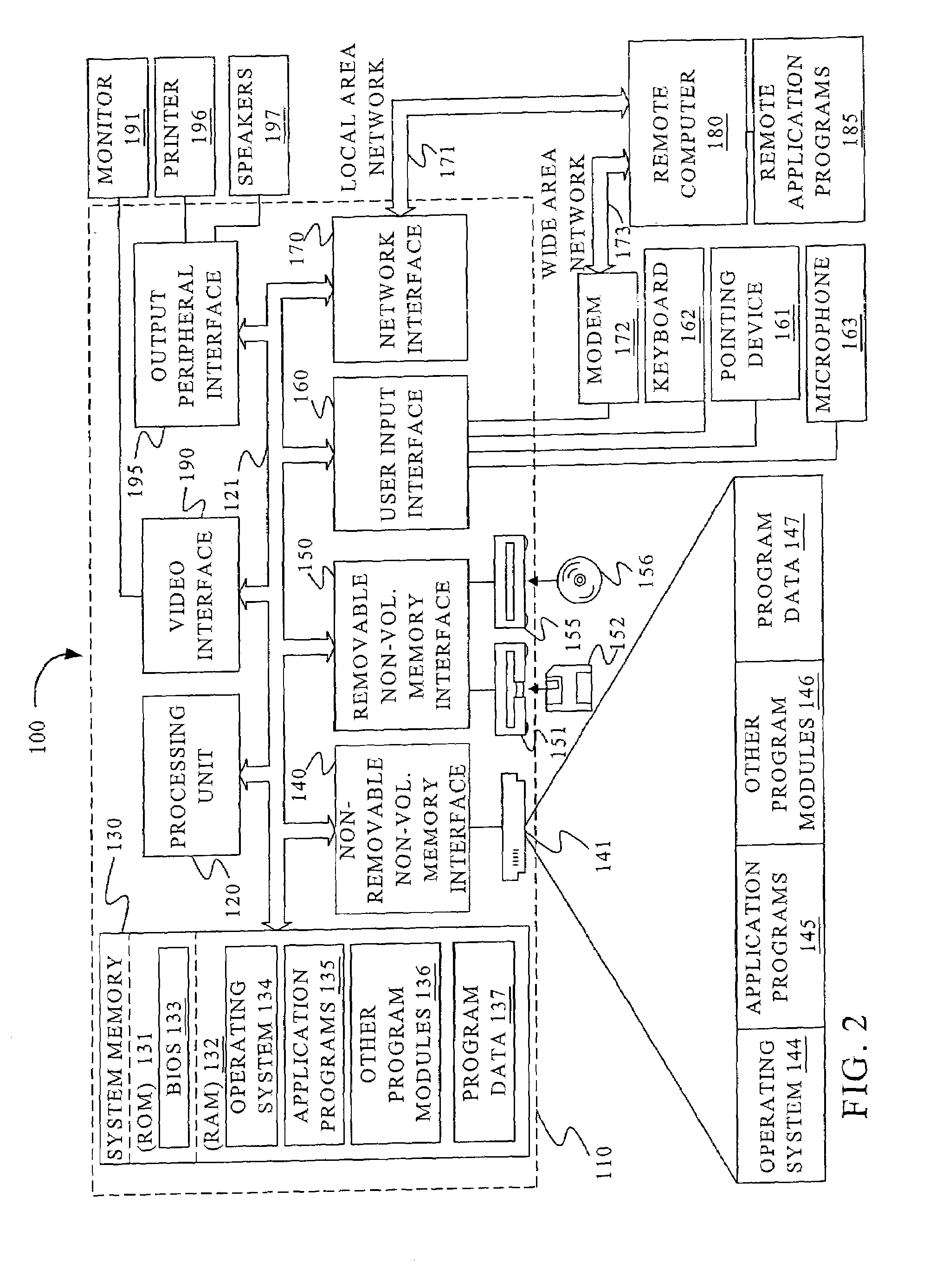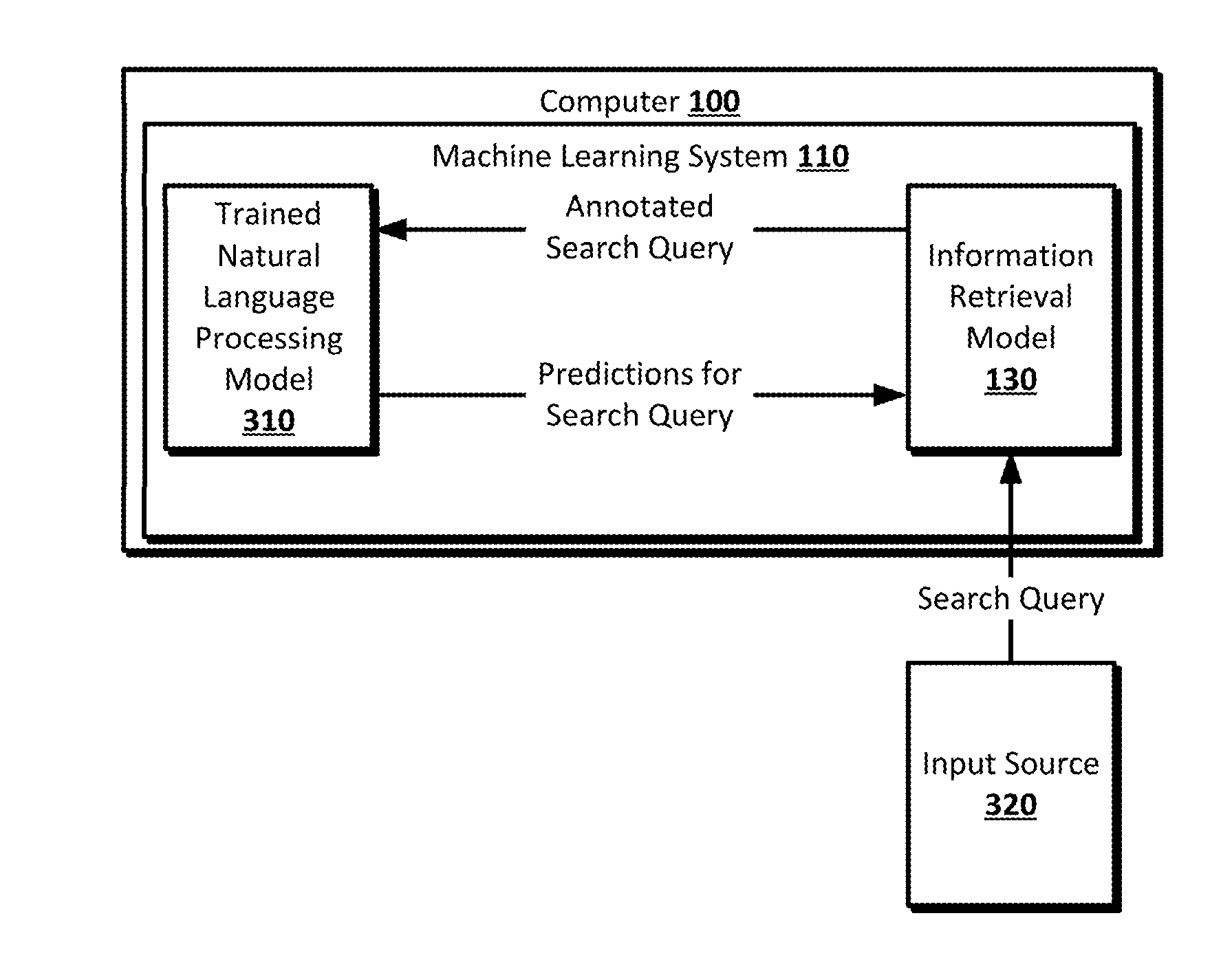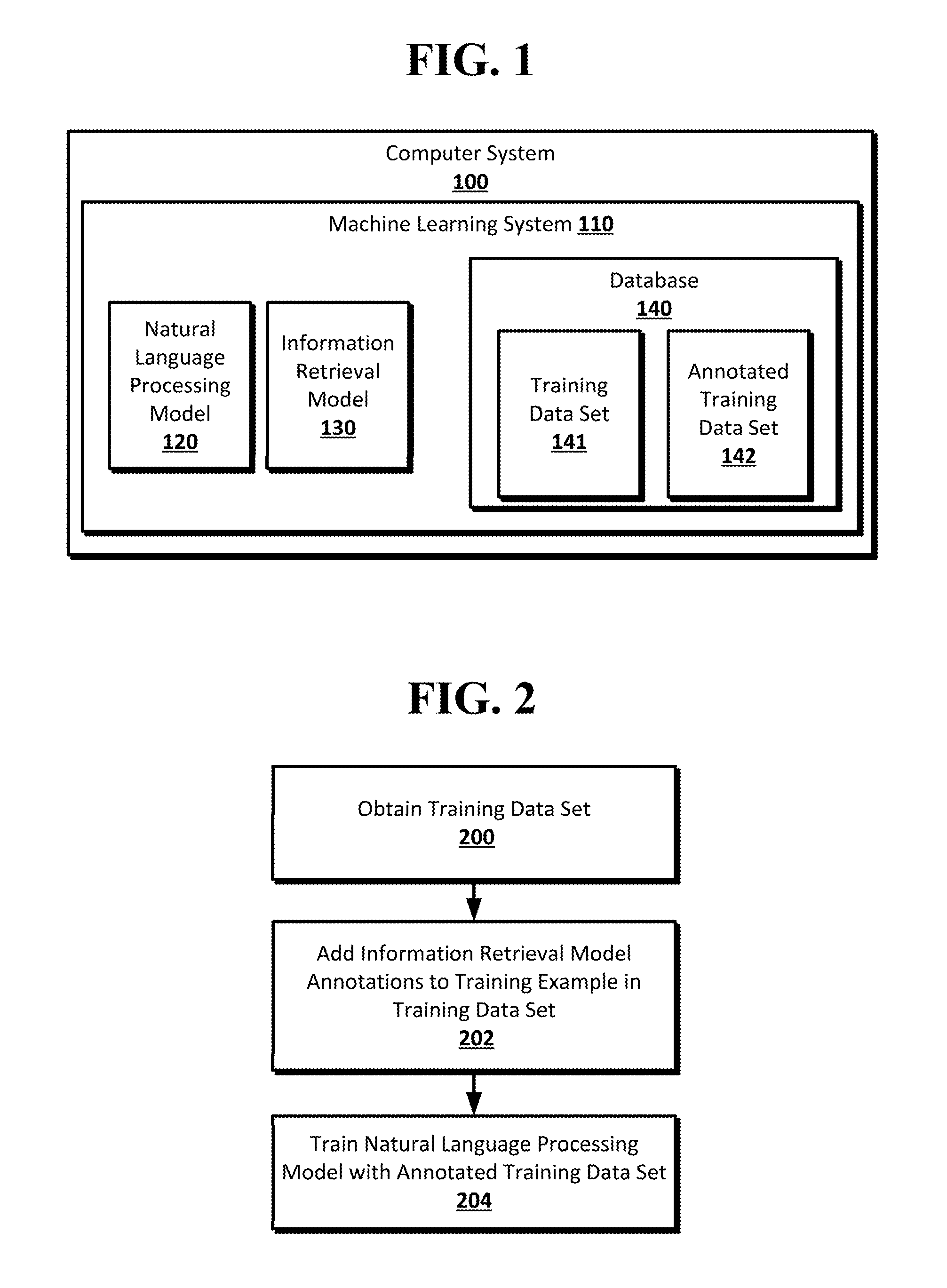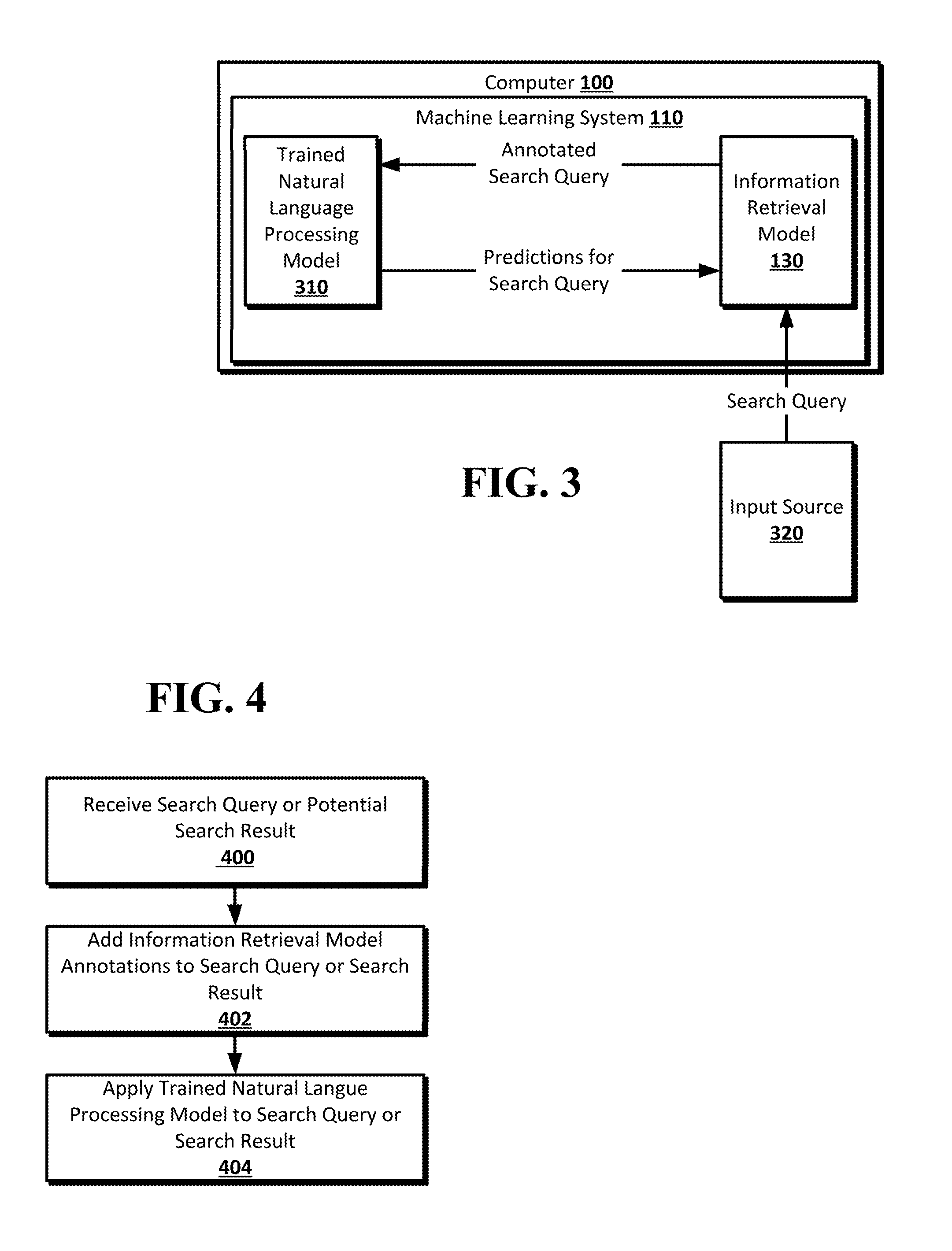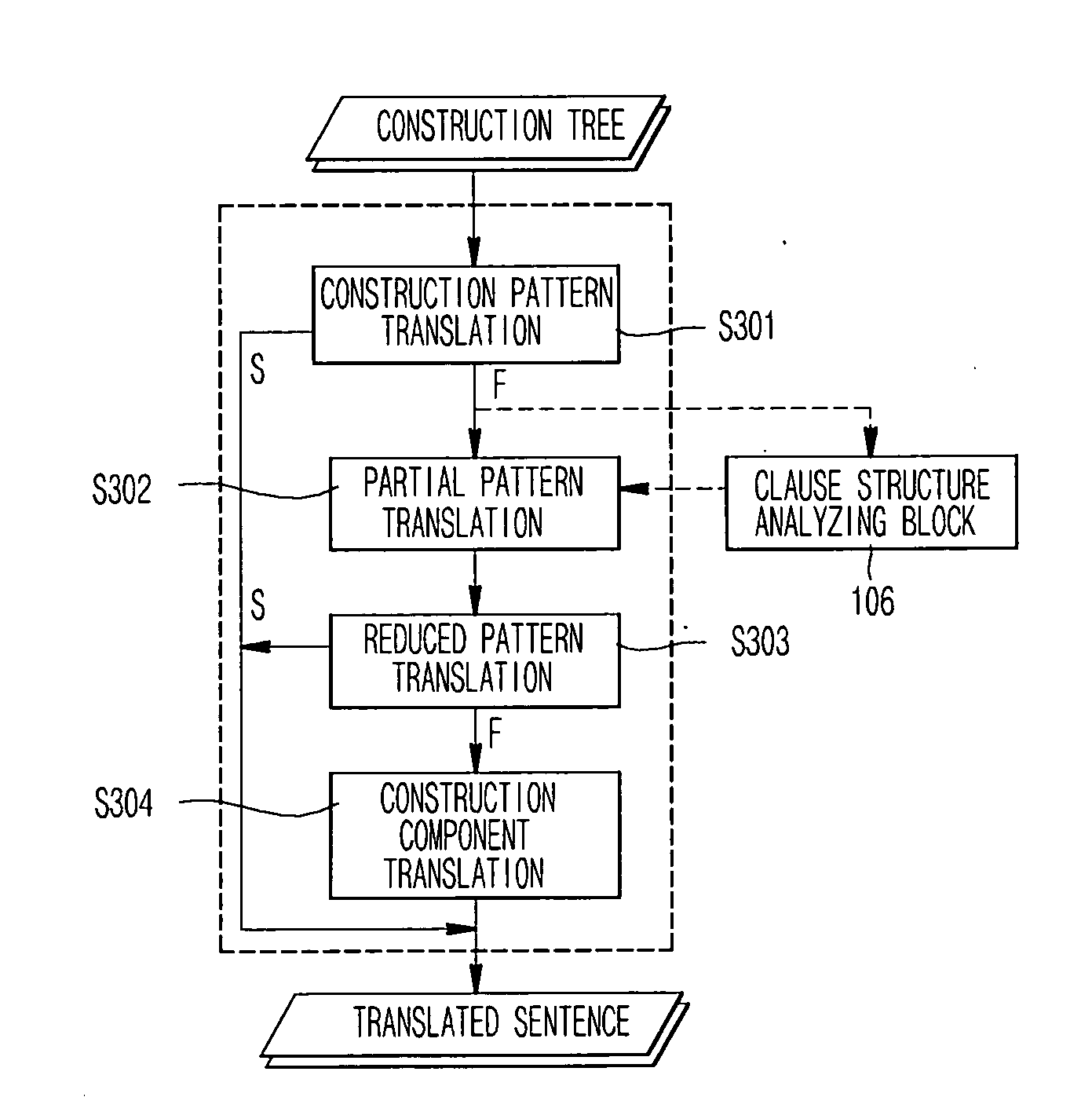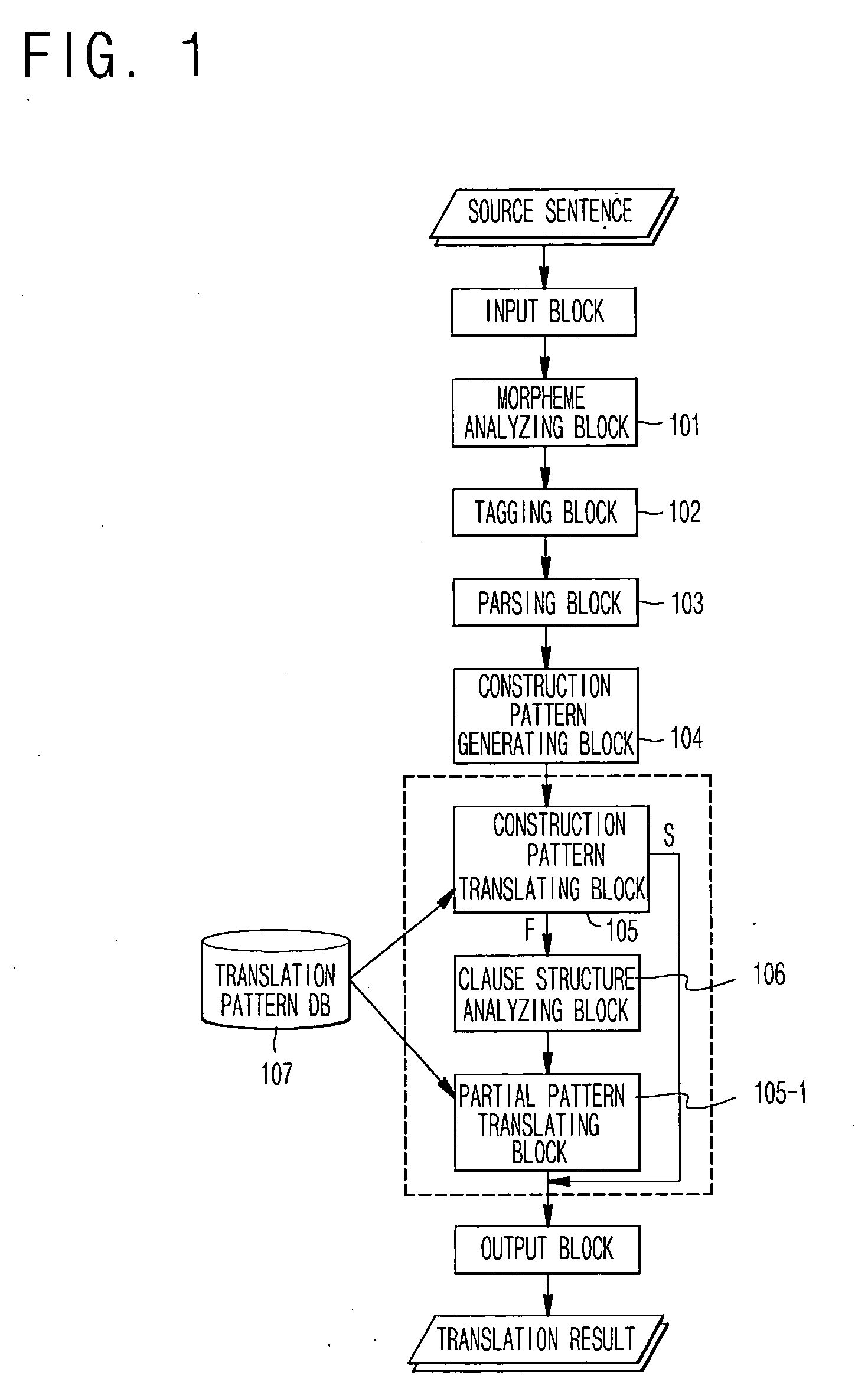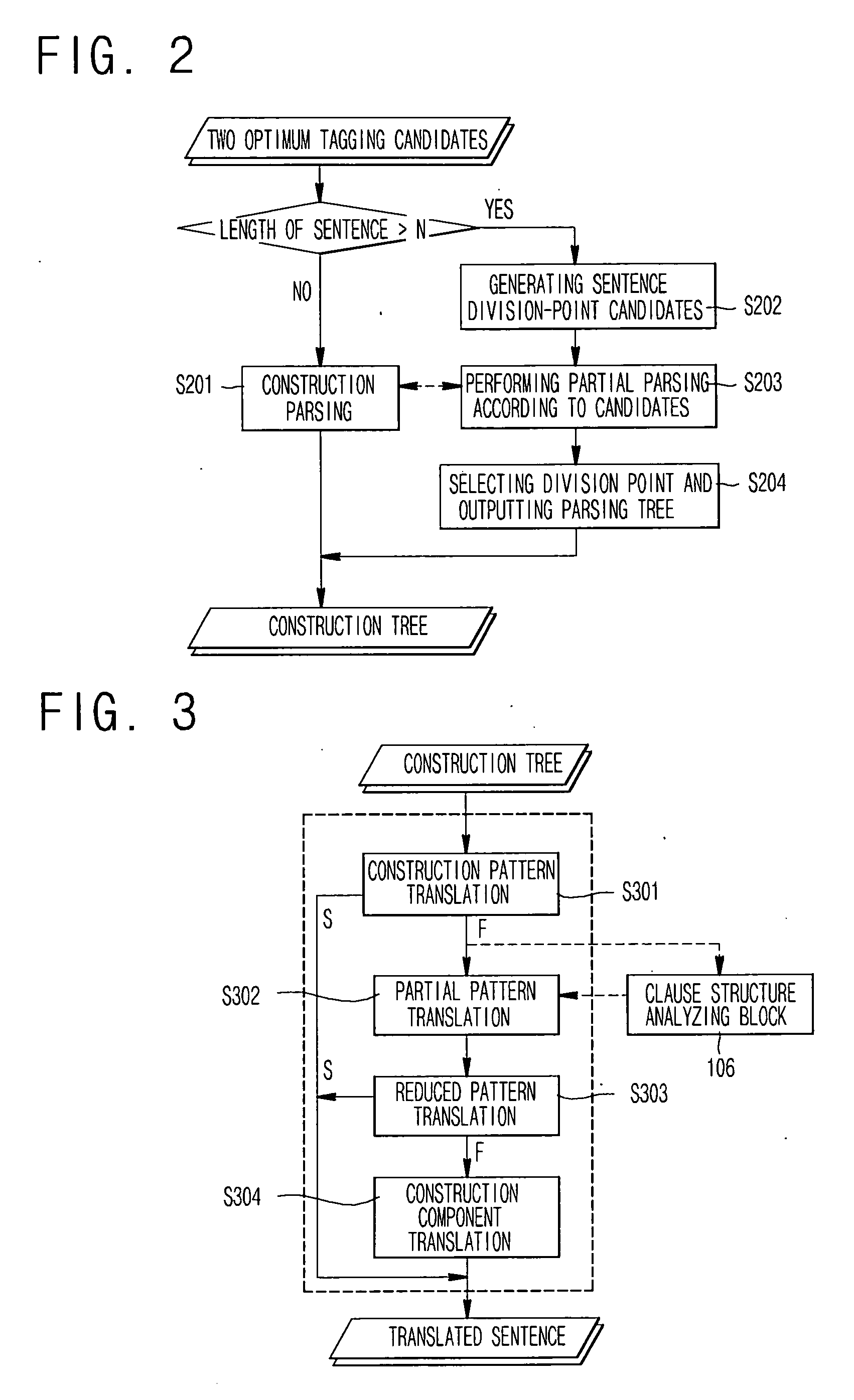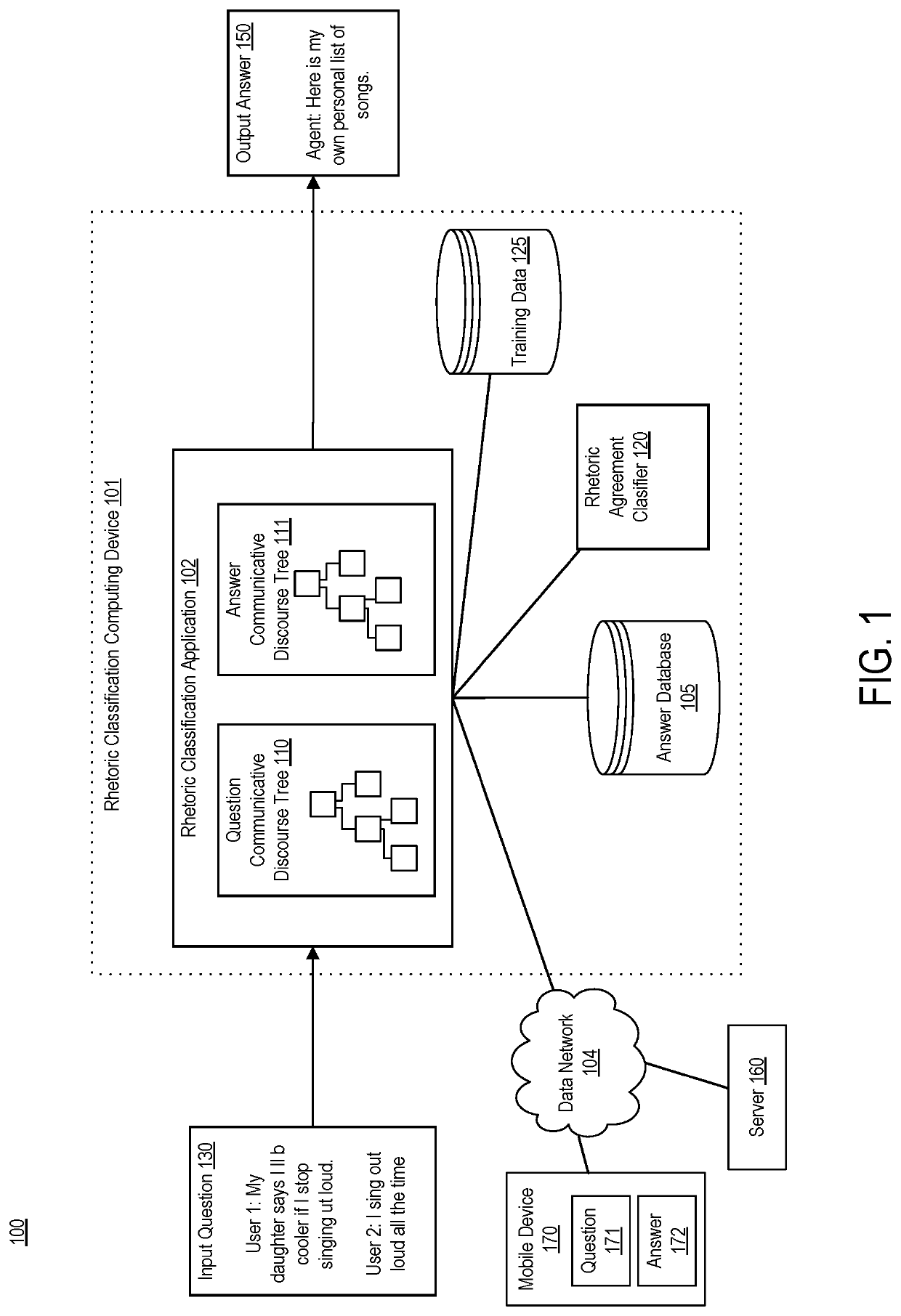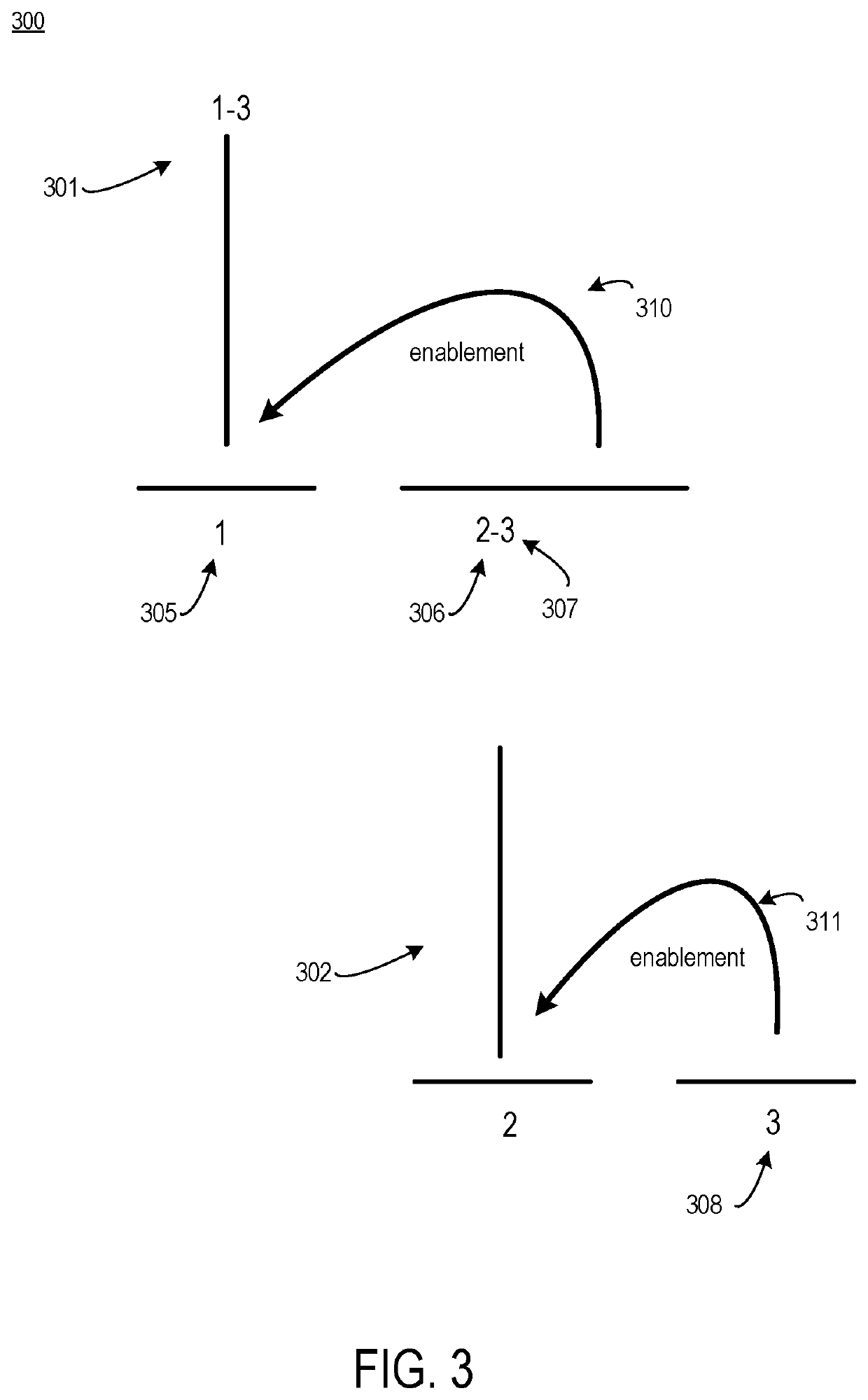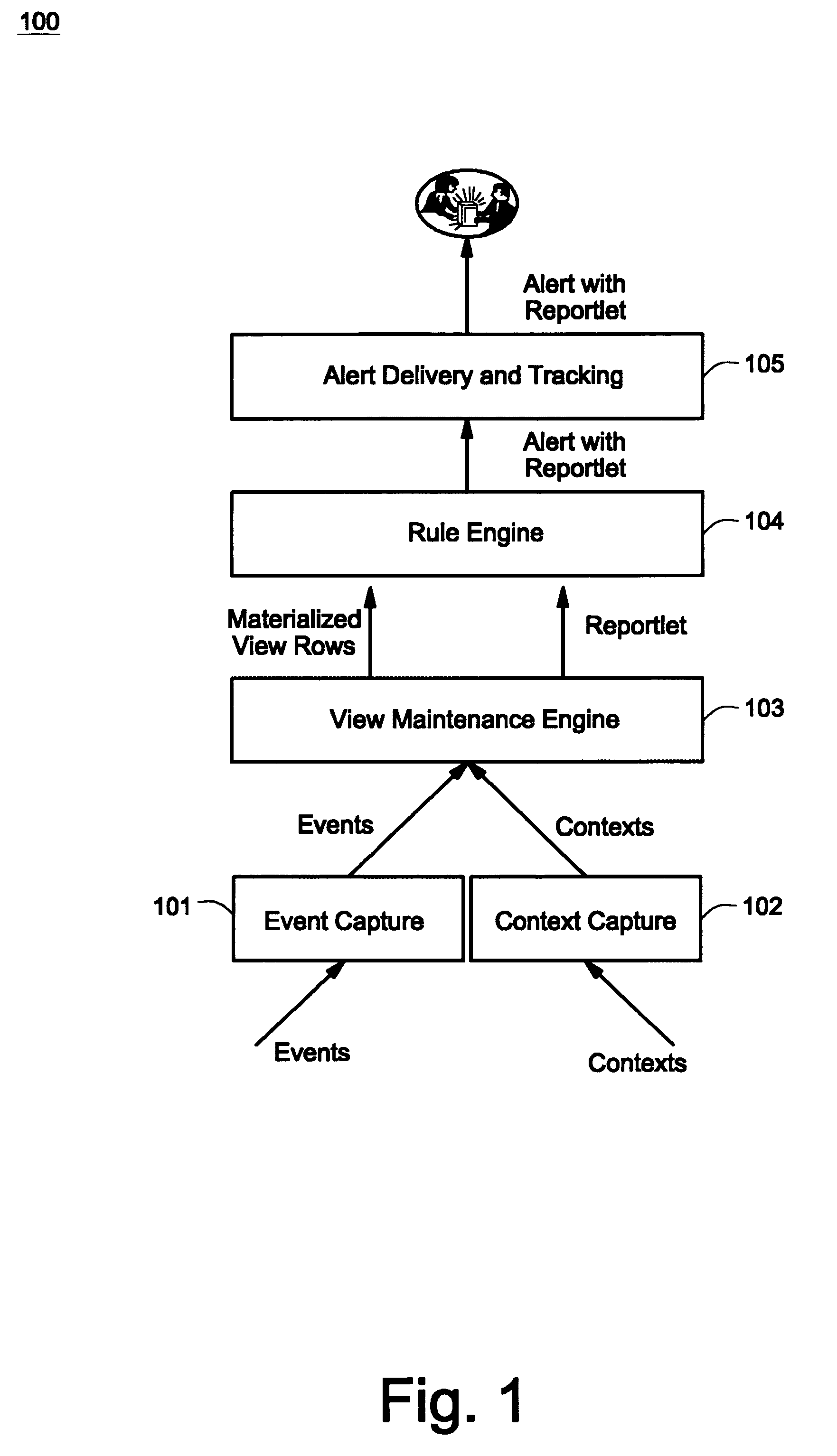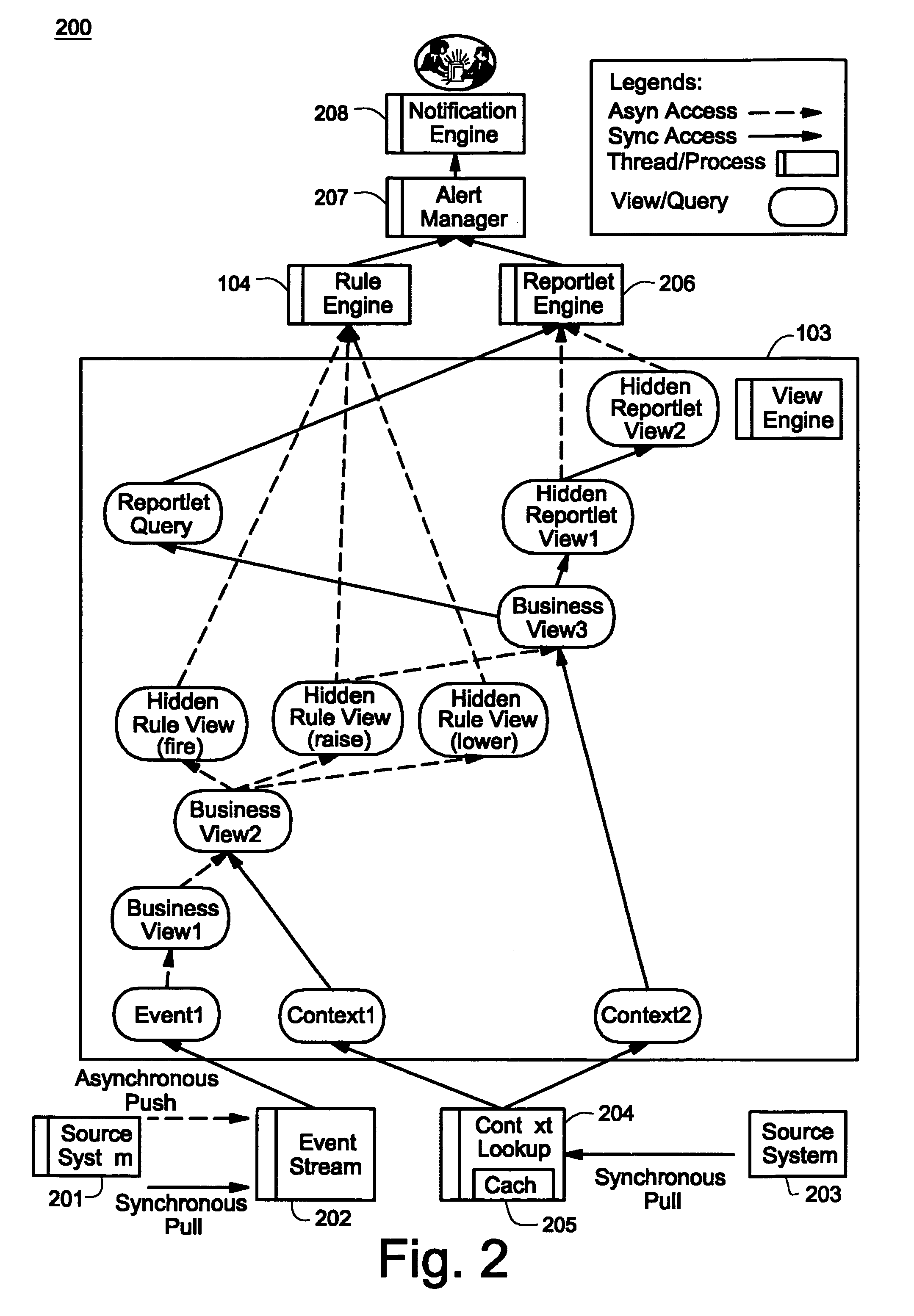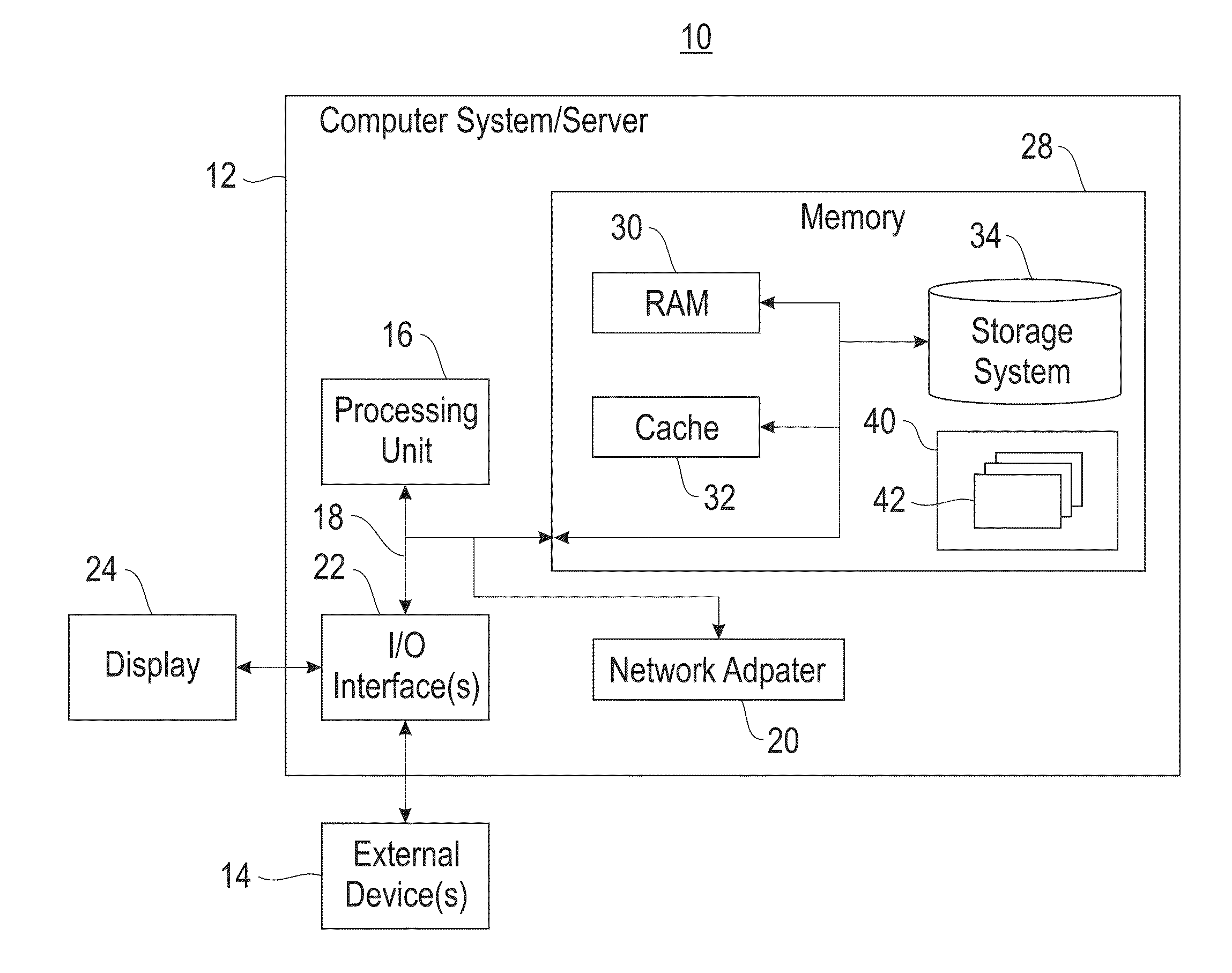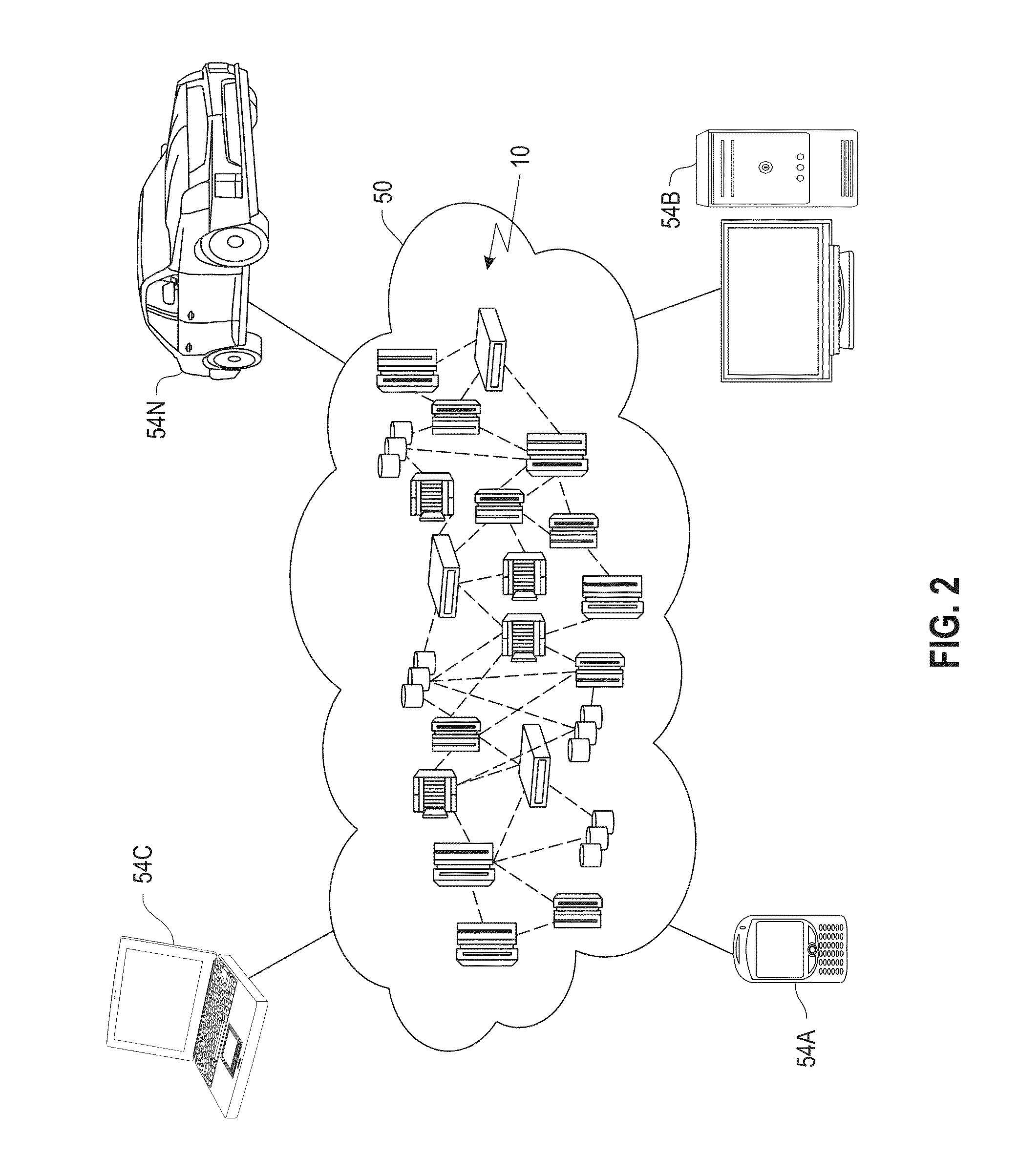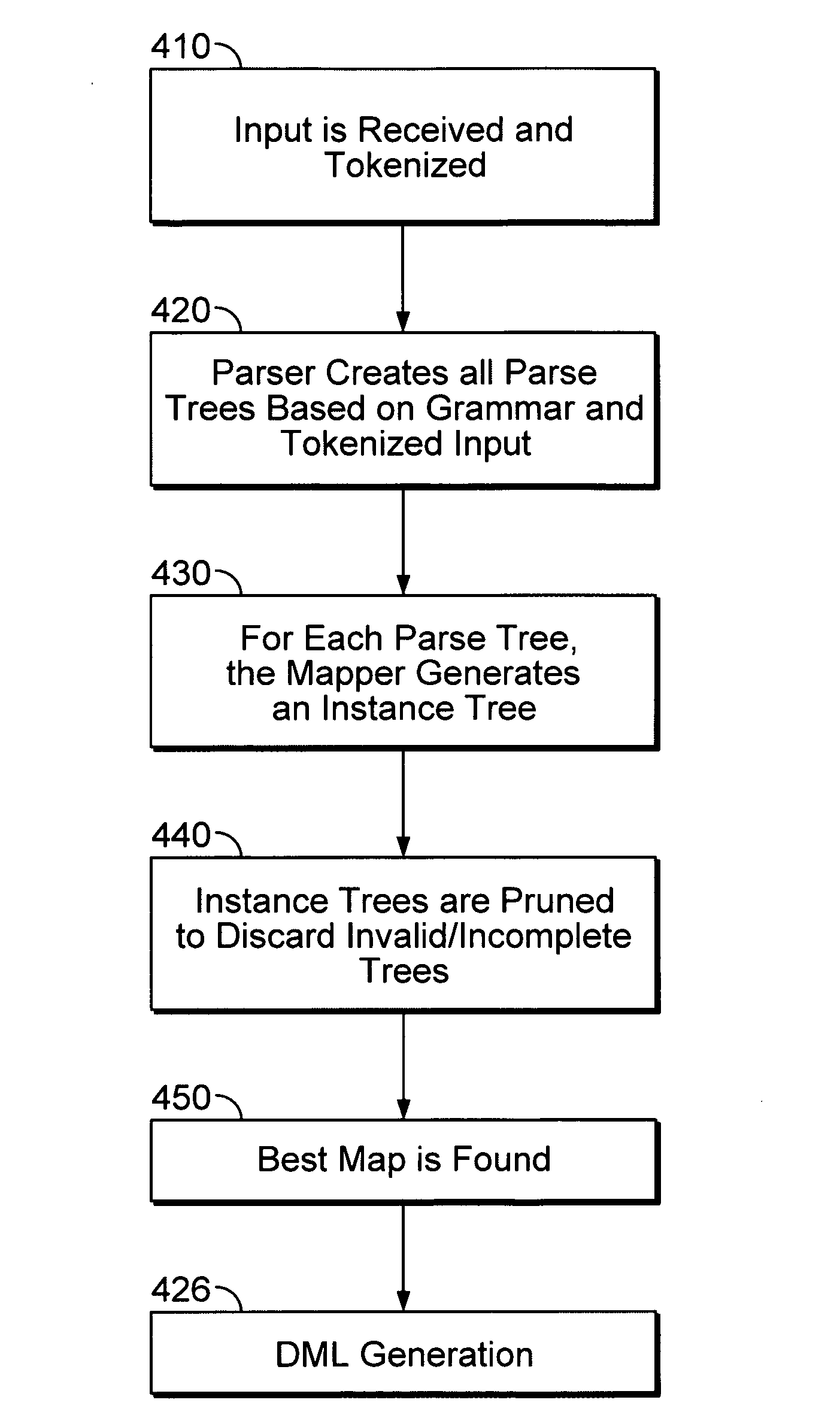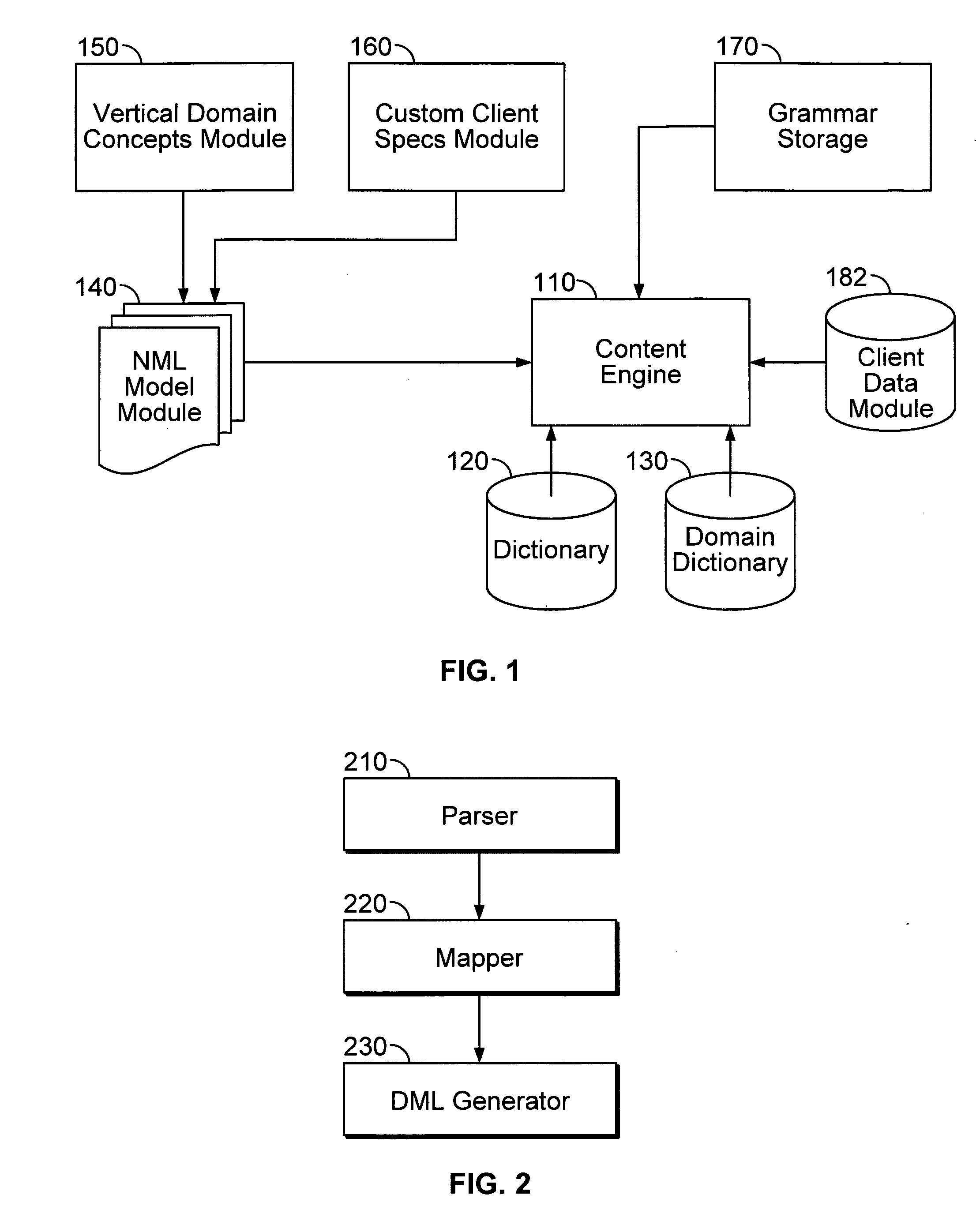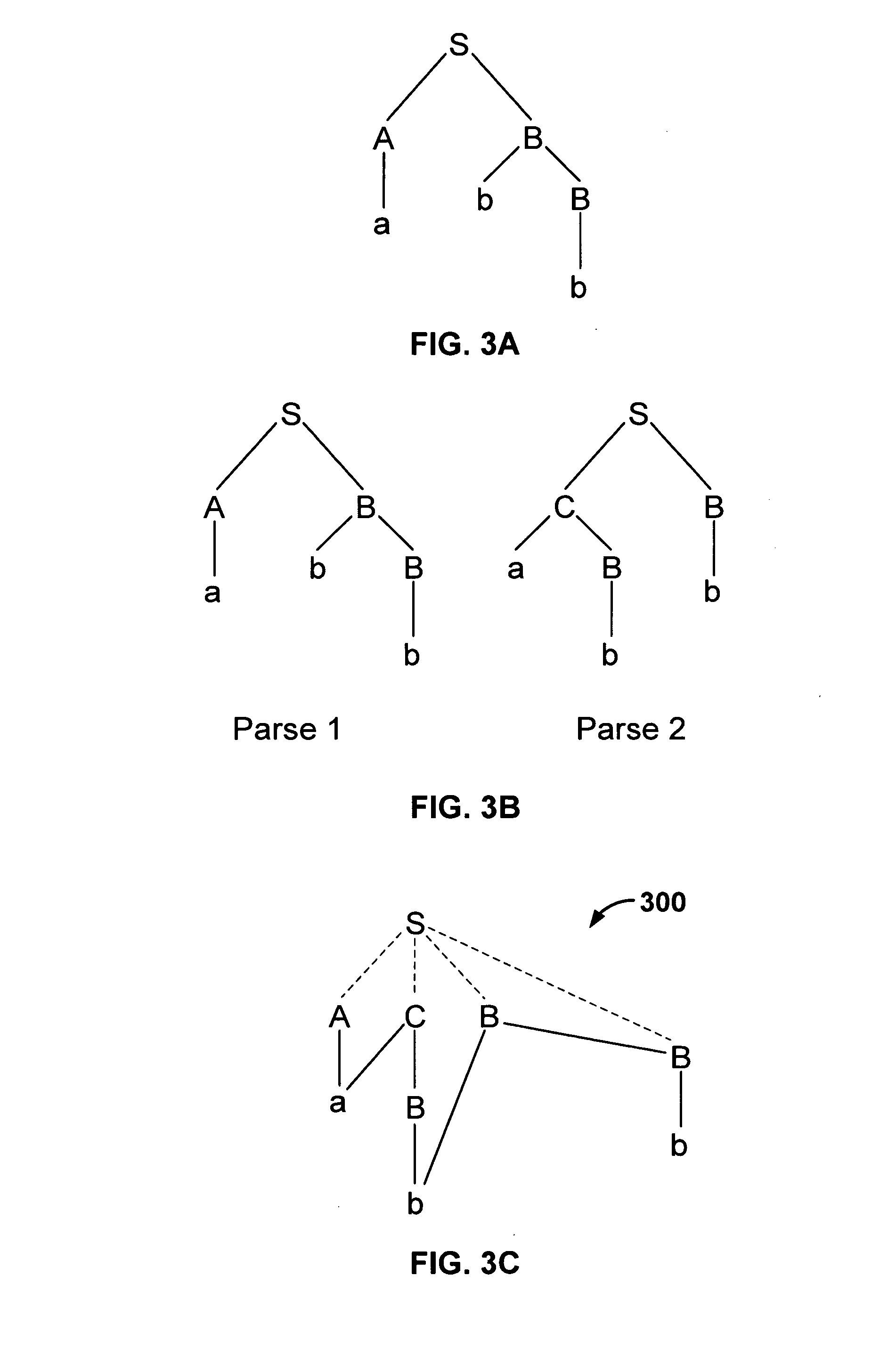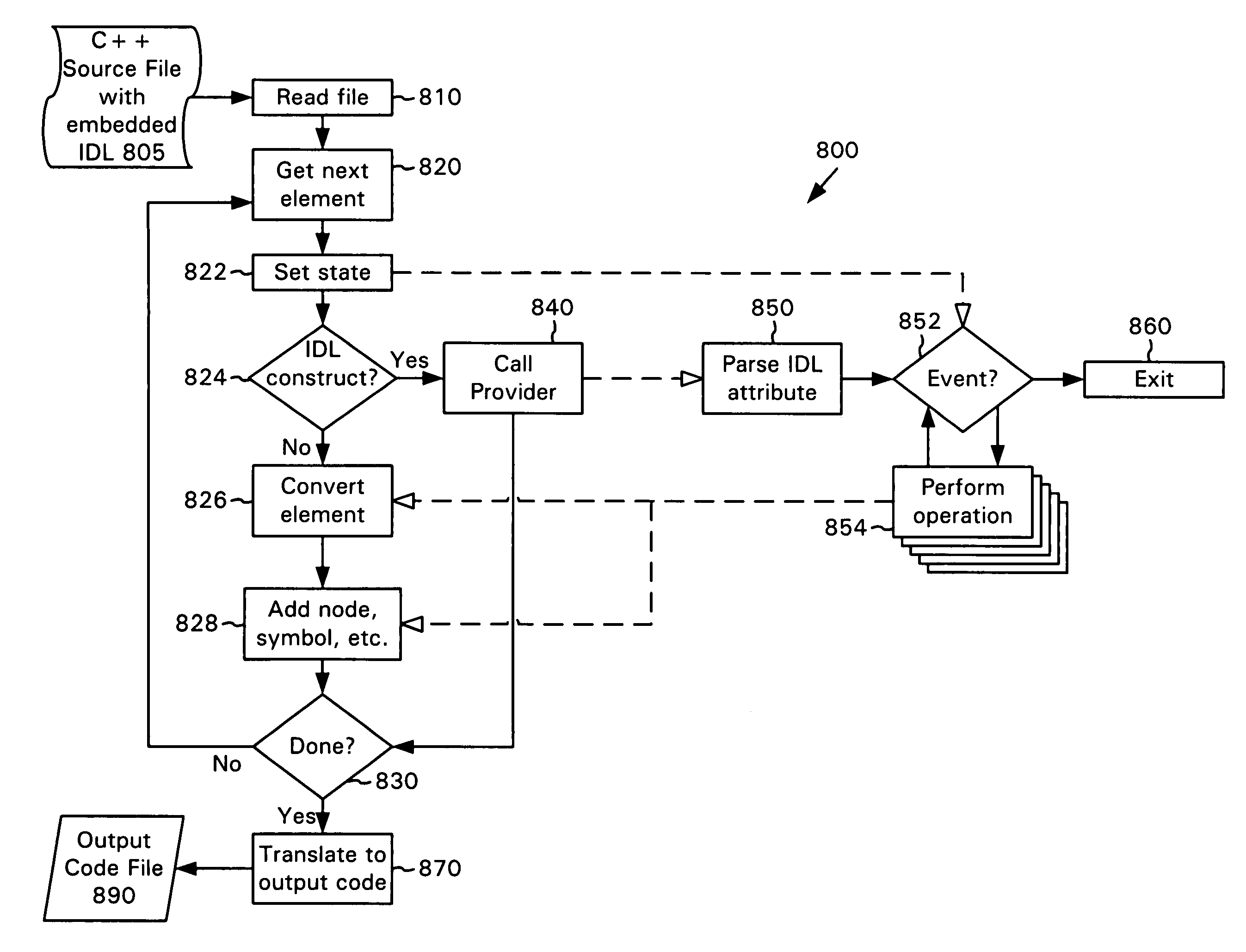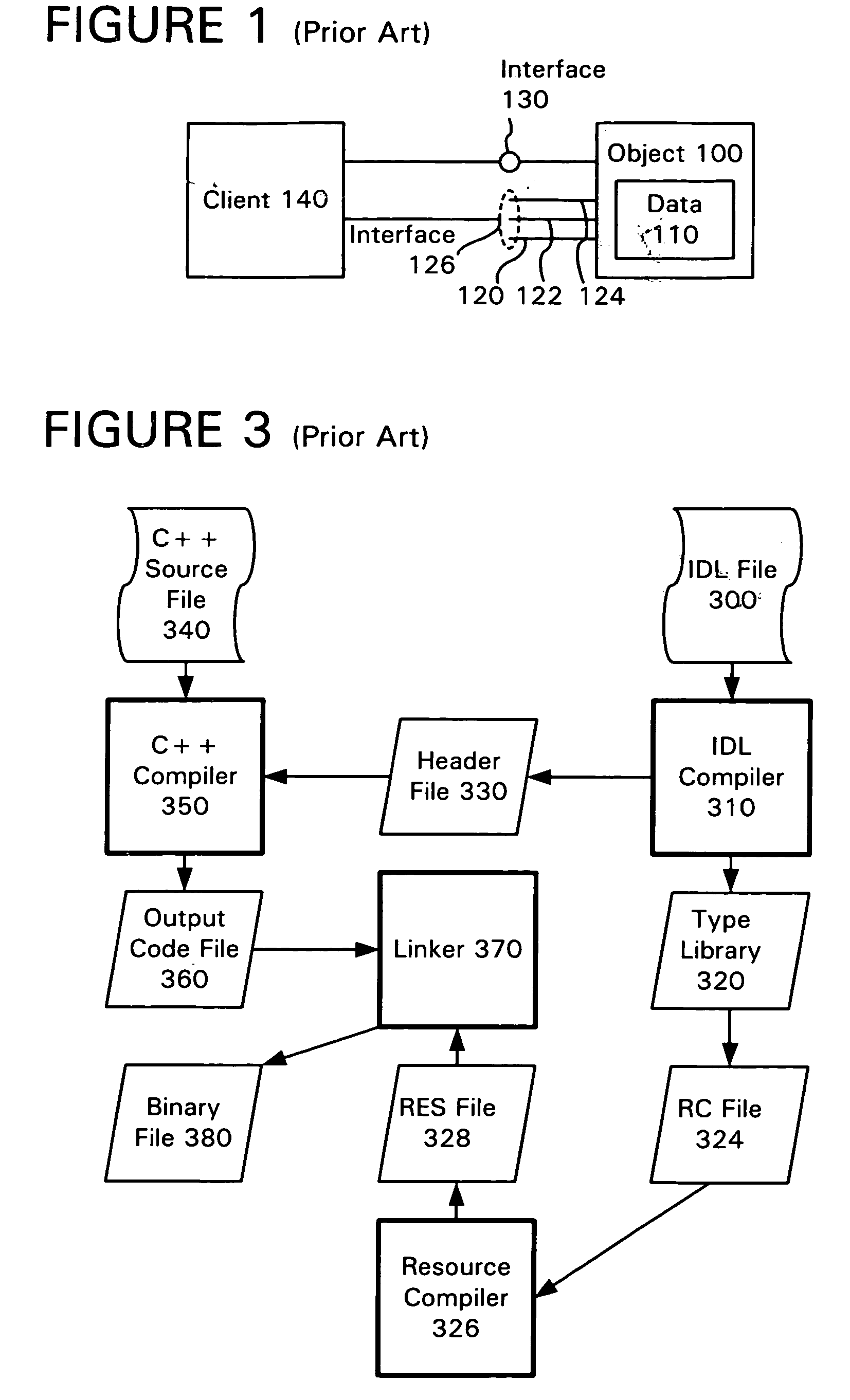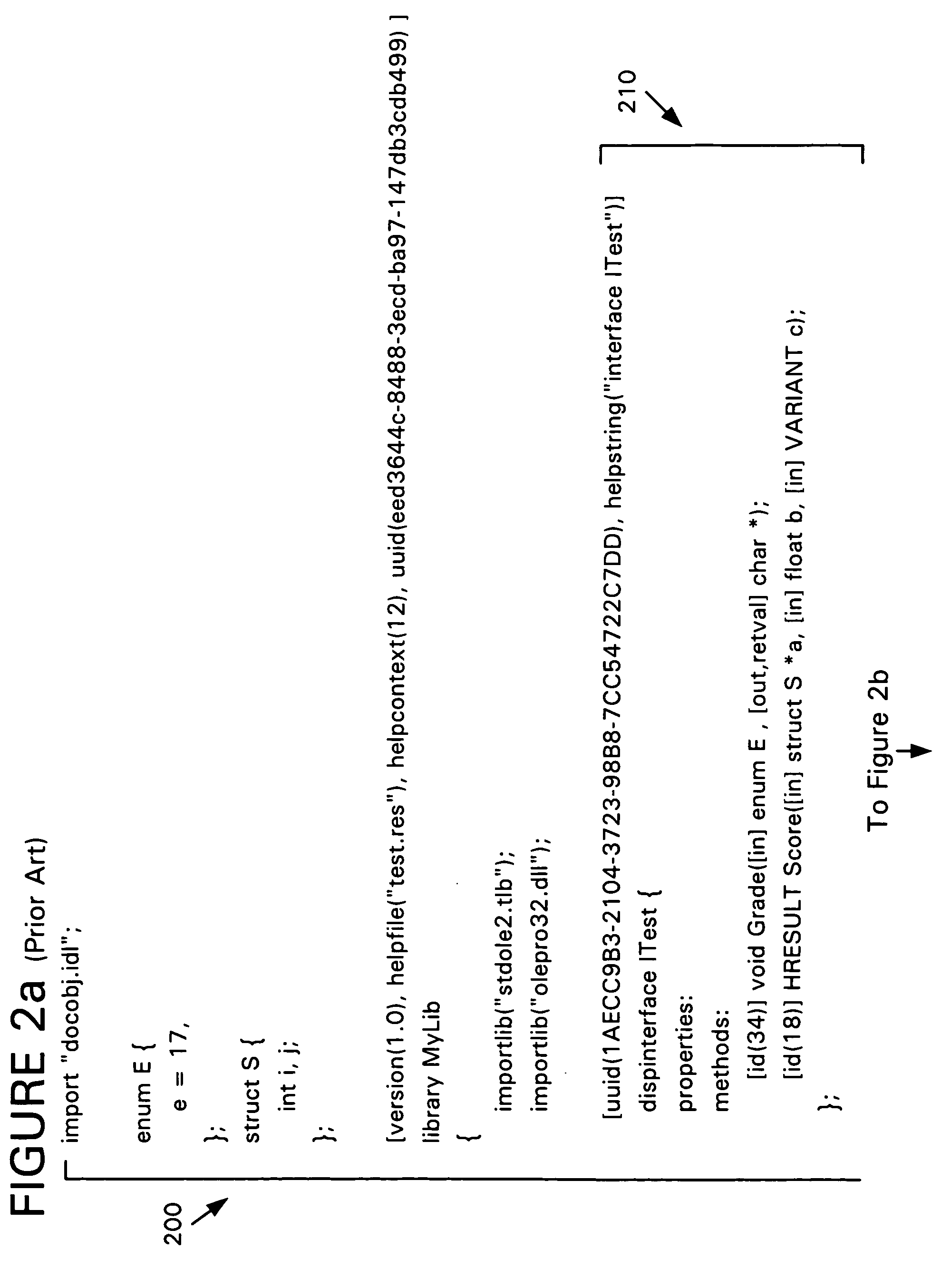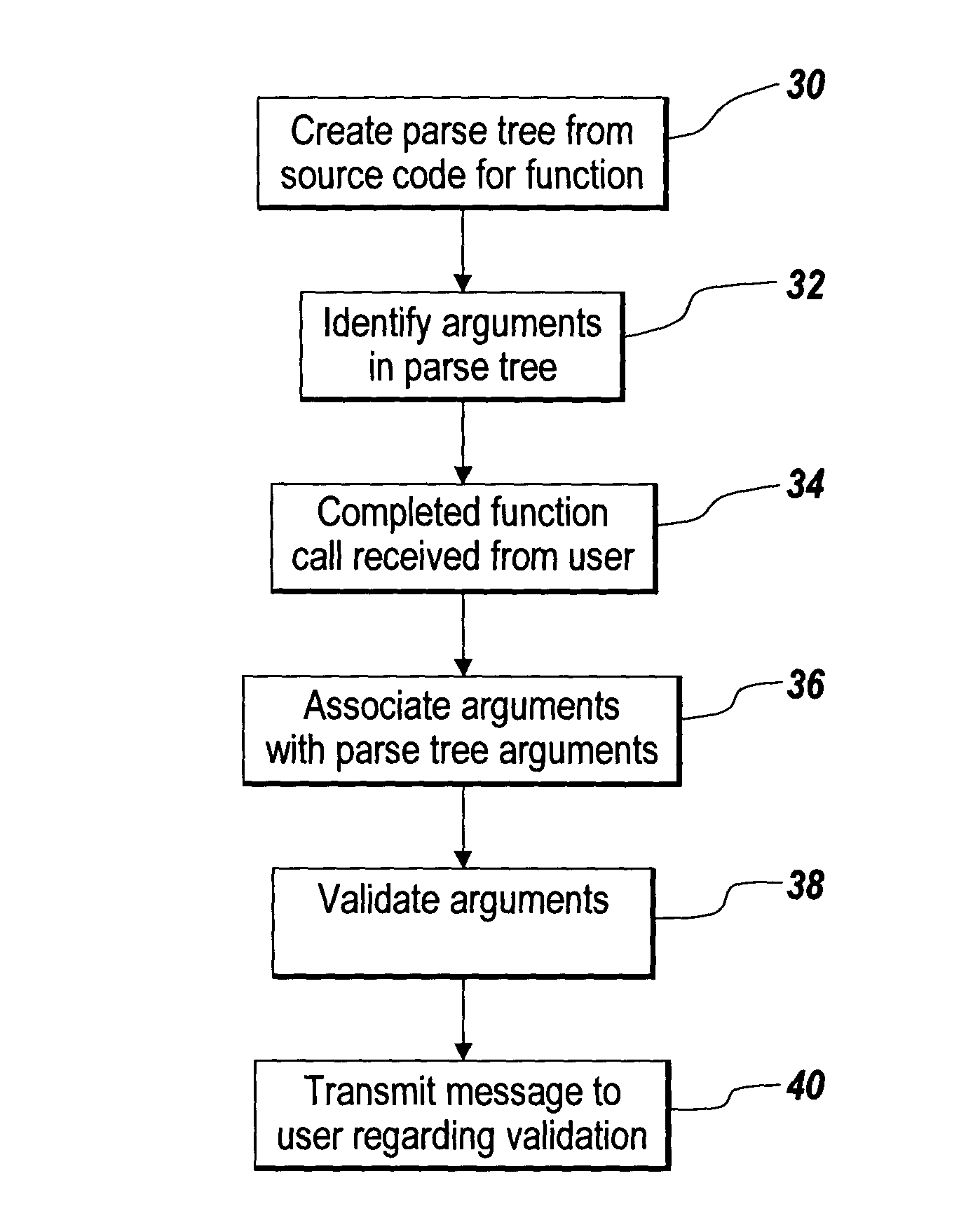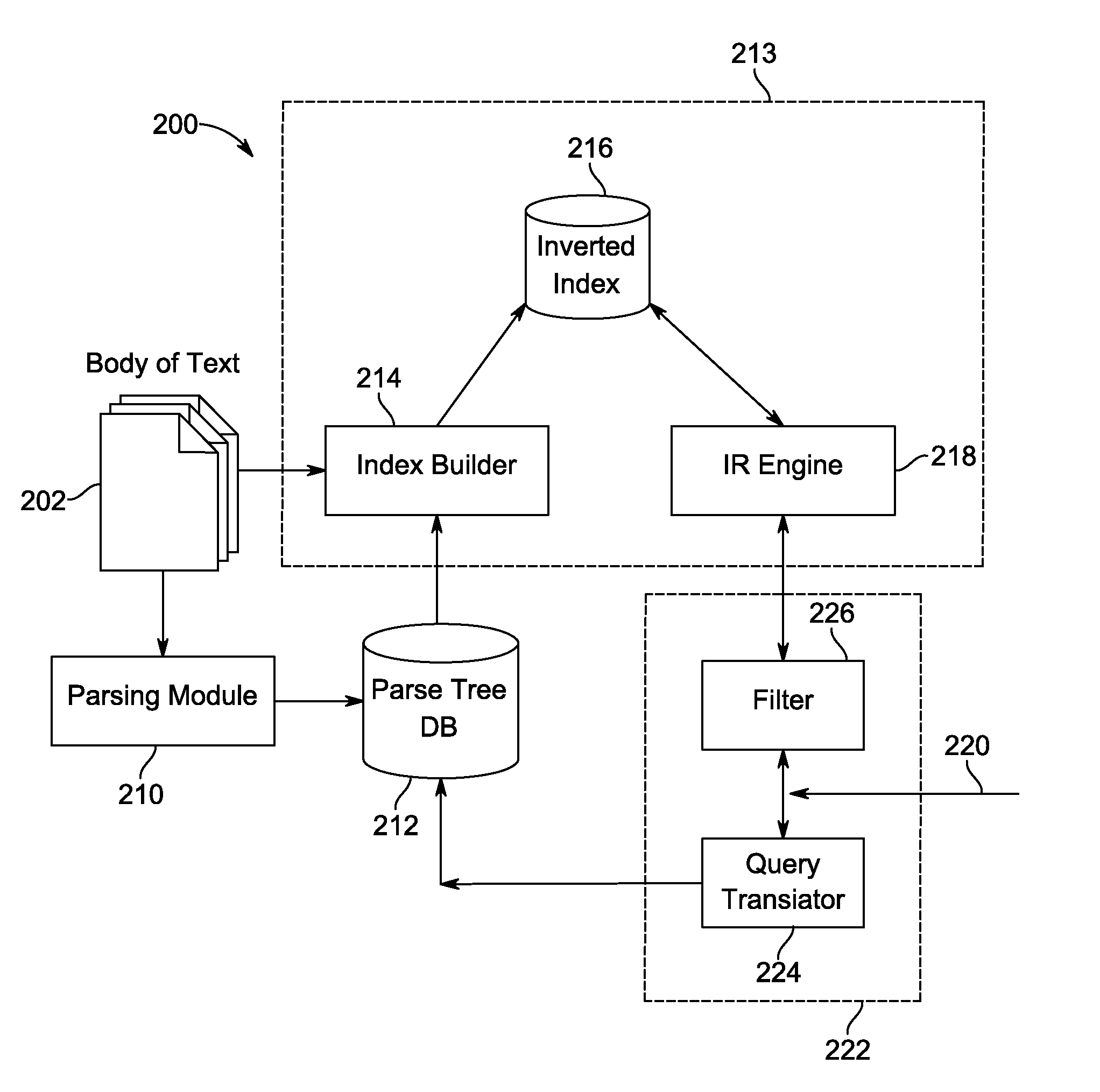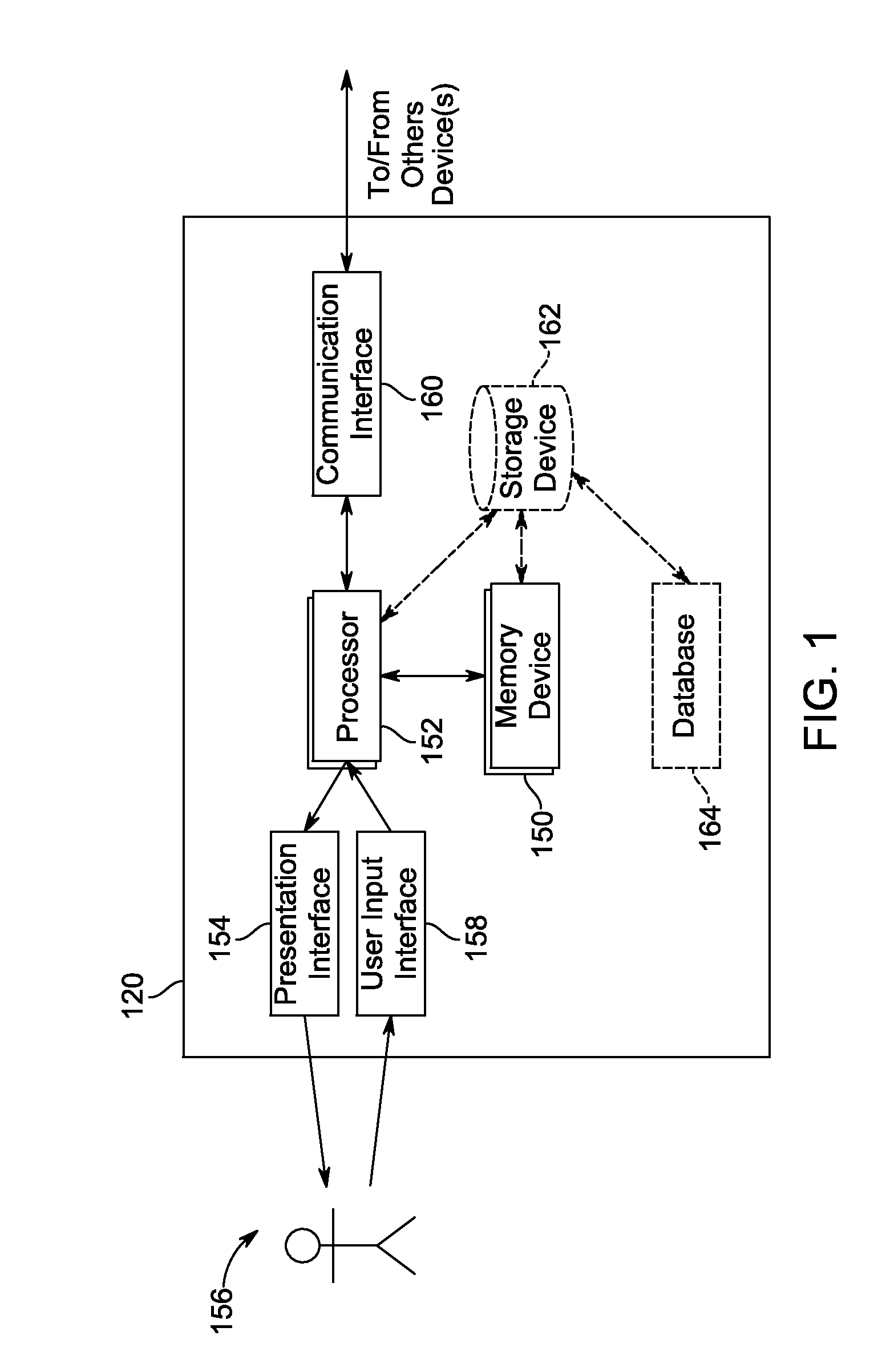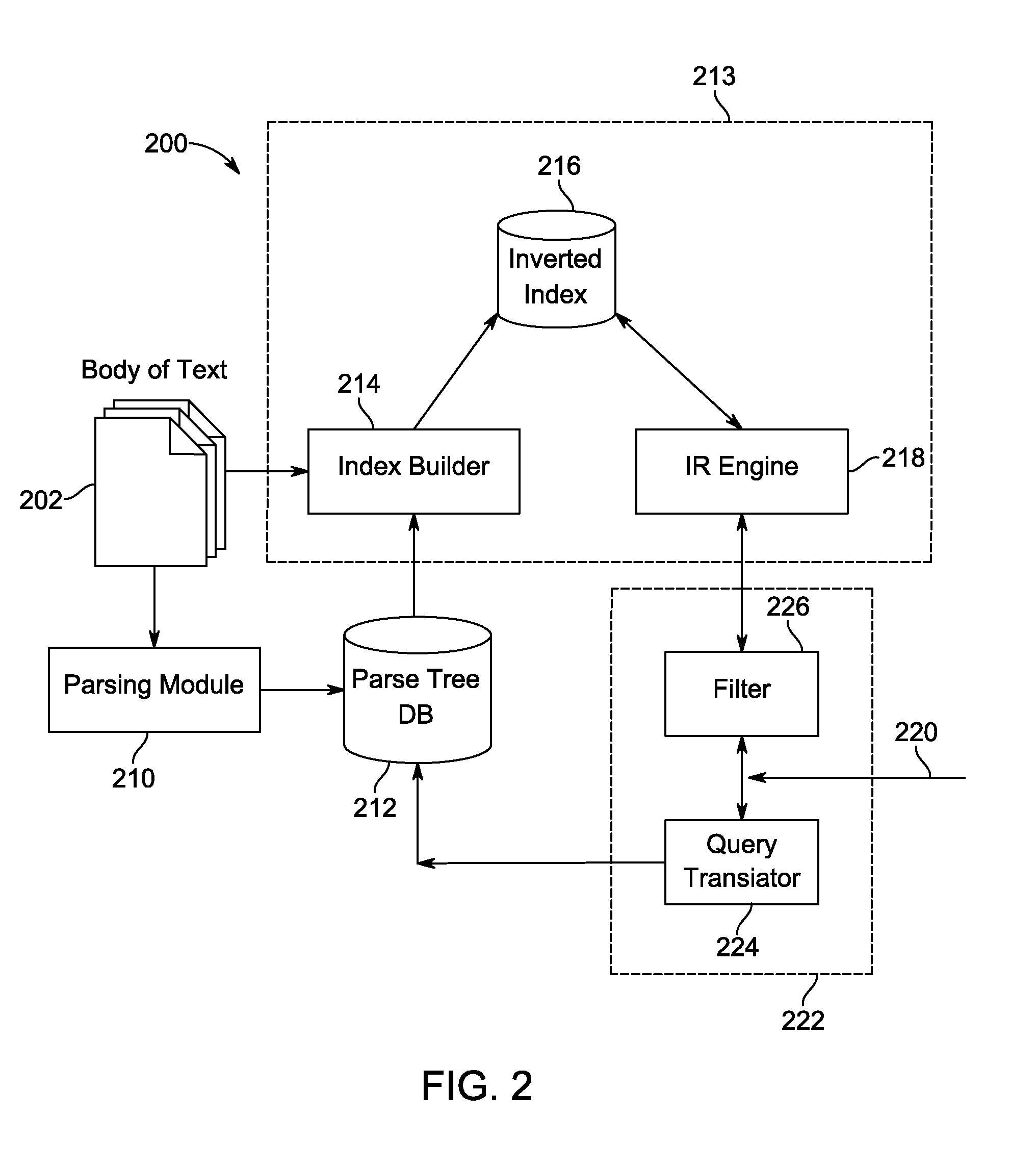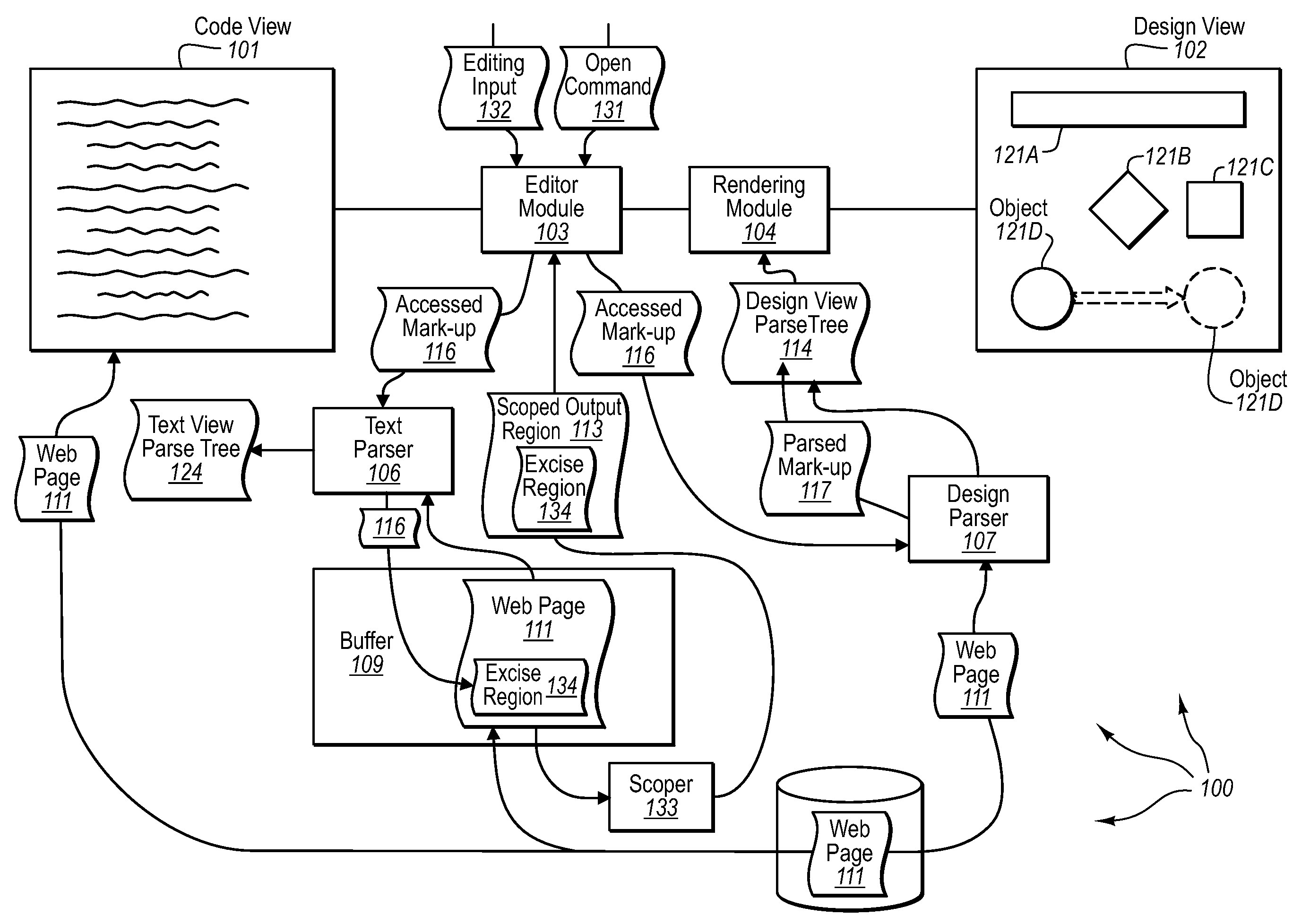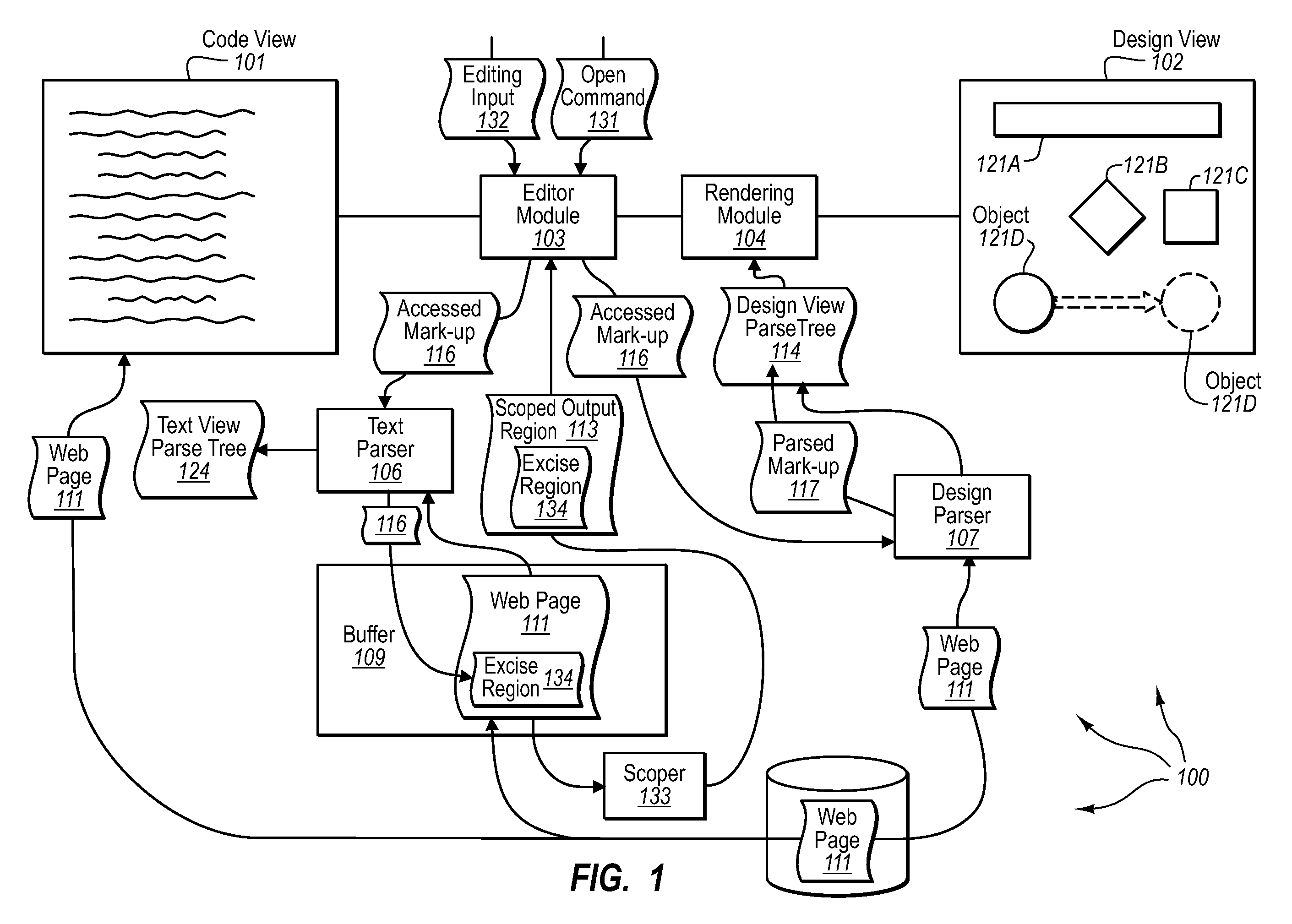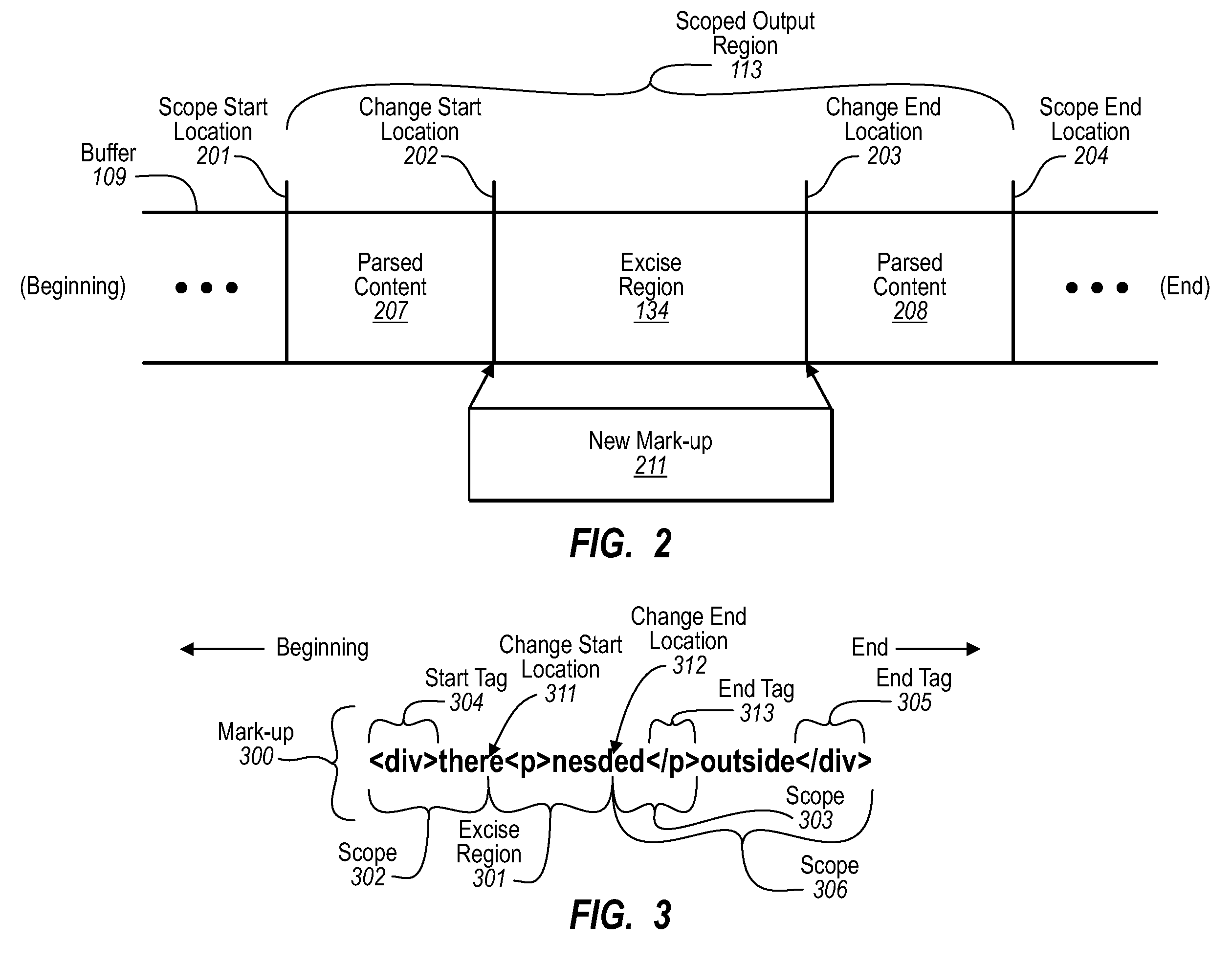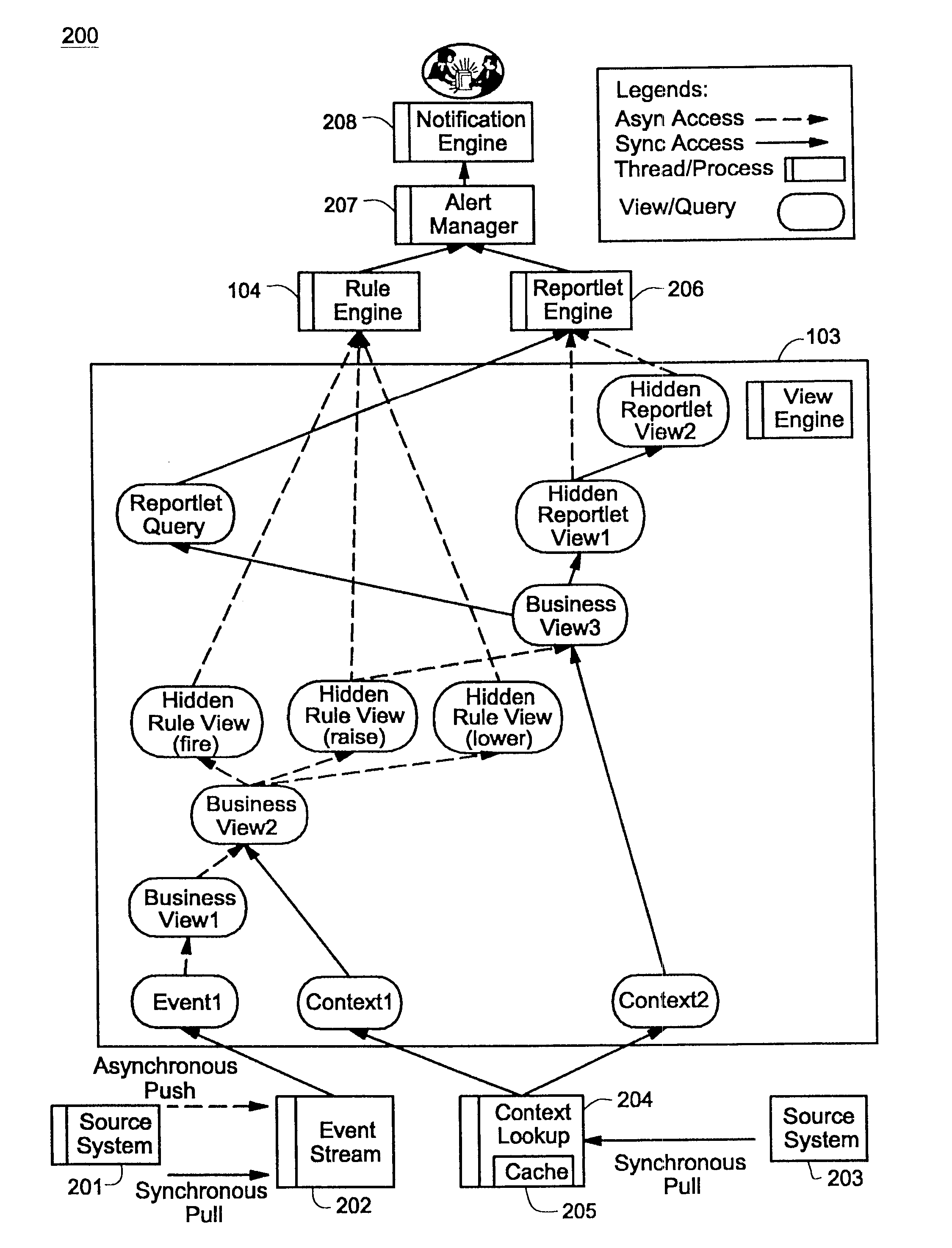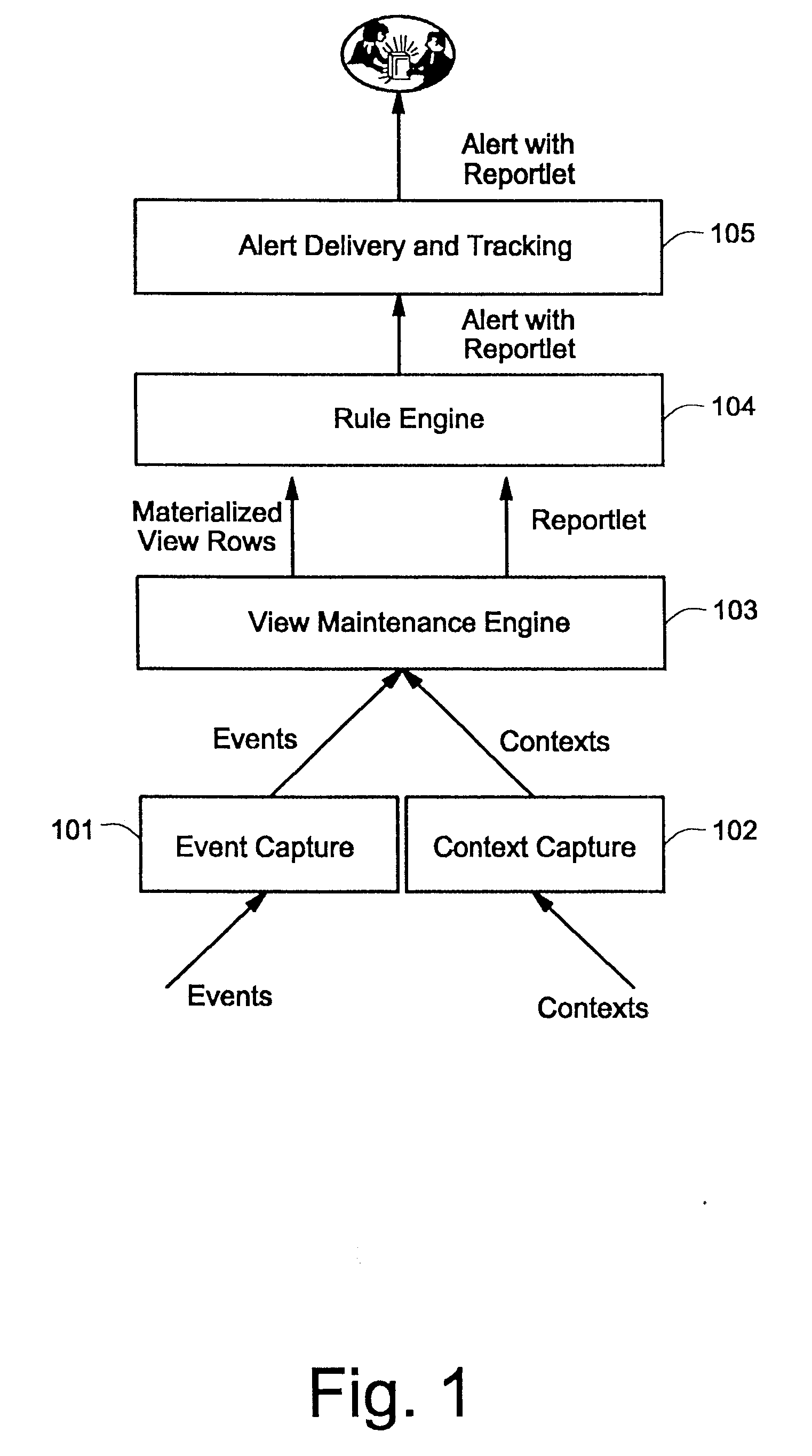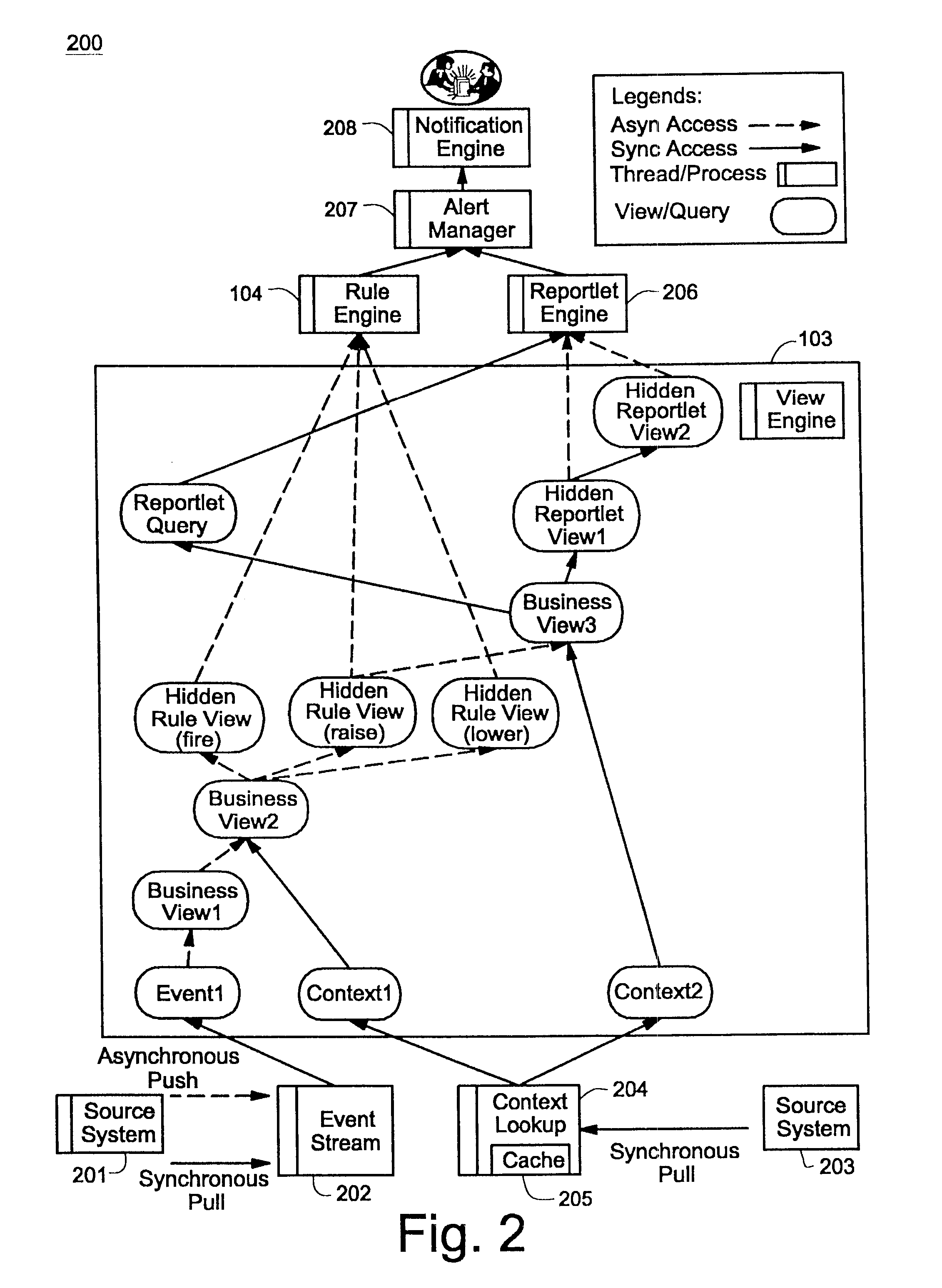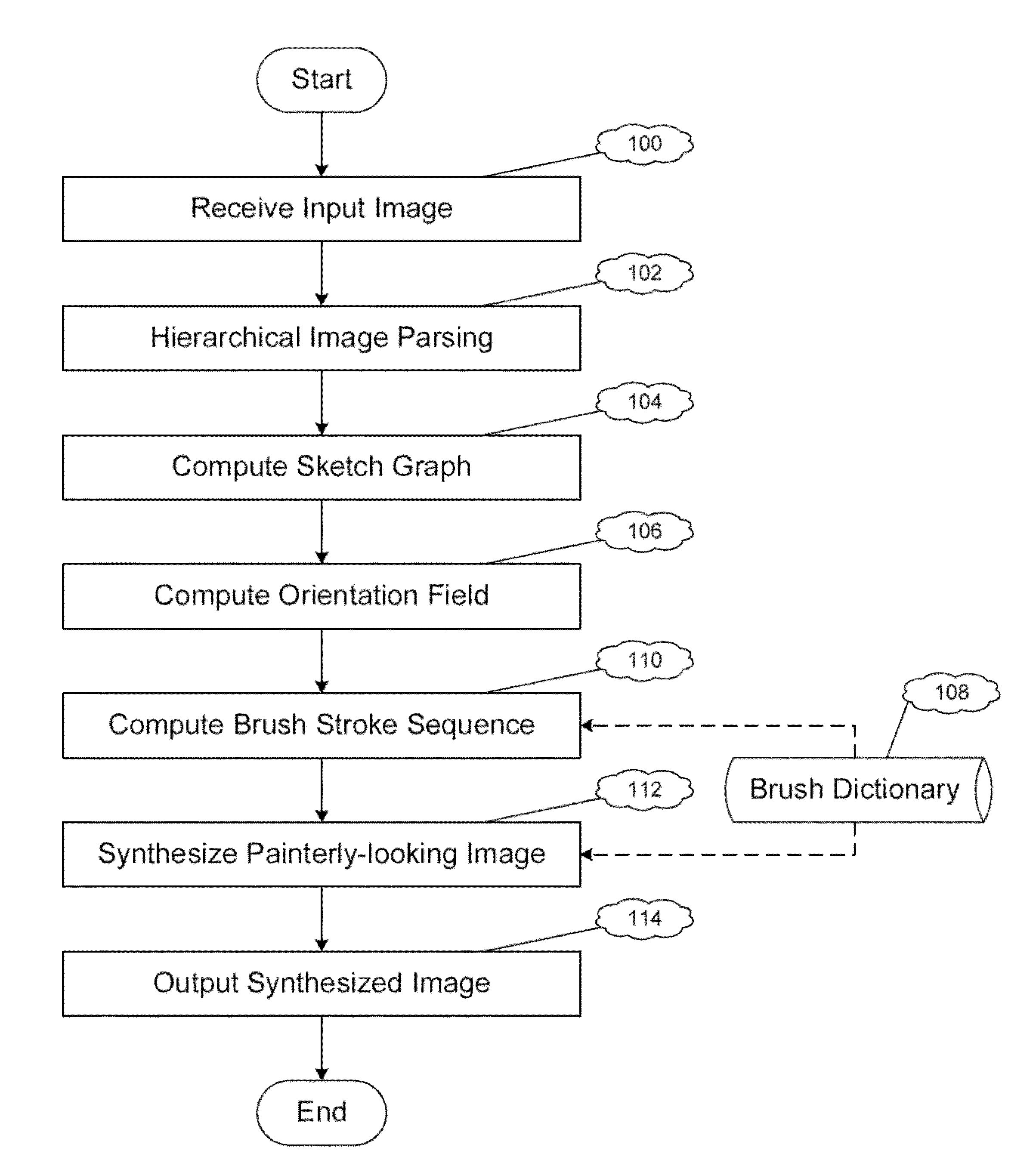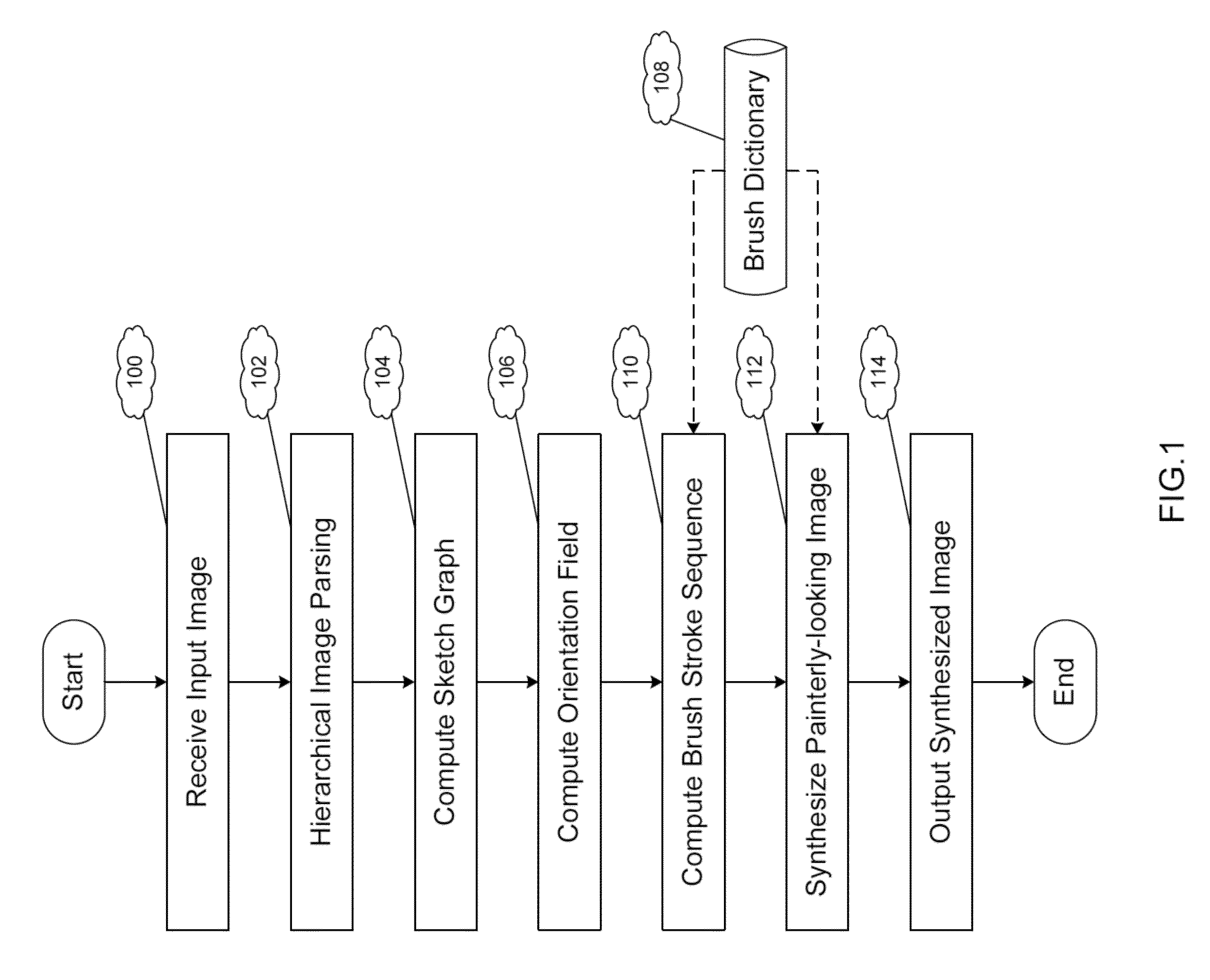Patents
Literature
Hiro is an intelligent assistant for R&D personnel, combined with Patent DNA, to facilitate innovative research.
200 results about "Parse tree" patented technology
Efficacy Topic
Property
Owner
Technical Advancement
Application Domain
Technology Topic
Technology Field Word
Patent Country/Region
Patent Type
Patent Status
Application Year
Inventor
A parse tree or parsing tree or derivation tree or concrete syntax tree is an ordered, rooted tree that represents the syntactic structure of a string according to some context-free grammar. The term parse tree itself is used primarily in computational linguistics; in theoretical syntax, the term syntax tree is more common.
Creating and configuring component-based applications using a text-based descriptive attribute grammar
InactiveUS6083276AVersion controlSpecific program execution arrangementsProgramming languageAttribute grammar
A method for creating and configuring a component-based application through text-based descriptive attribute grammar includes creating a parse tree from an application description file, transforming the parse tree into a plurality of components corresponding to instances of classes in an application framework, and initializing and further processing the components to launch the component-based application. Additionally, a system for creating and configuring a component-based application includes a parser, a plurality of element processors, an element mapper, an attribute mapper, and a parameter converter.
Owner:COREL CORP +1
Semantic language modeling and confidence measurement
ActiveUS7475015B2Speech recognitionSpecial data processing applicationsHypothesisSpeech identification
A system and method for speech recognition includes generating a set of likely hypotheses in recognizing speech, rescoring the likely hypotheses by using semantic content by employing semantic structured language models, and scoring parse trees to identify a best sentence according to the sentence's parse tree by employing the semantic structured language models to clarify the recognized speech.
Owner:MICROSOFT TECH LICENSING LLC
Deep analysis of natural language questions for question answering system
Creating training data for a natural language processing system may comprise obtaining natural language input, the natural language input annotated with one or more important phrases; and generating training instances comprising a syntactic parse tree of nodes representing elements of the natural language input augmented with the annotated important phrases. In another aspect, a classifier may be trained based on the generated training instances. The classifier may be used to predict one or more potential important phrases in a query.
Owner:IBM CORP
Method and system for adaptive rule-based content scanners
InactiveUS20050108554A1Efficiently describingAccurate interceptionMemory loss protectionSoftware engineeringPattern generationByte
A method for scanning content, including identifying tokens within an incoming byte stream, the tokens being lexical constructs for a specific language, identifying patterns of tokens, generating a parse tree from the identified patterns of tokens, and identifying the presence of potential exploits within the parse tree, wherein said identifying tokens, identifying patterns of tokens, and identifying the presence of potential exploits are based upon a set of rules for the specific language. A system and a computer readable storage medium are also described and claimed.
Owner:FINJAN LLC
Method and apparatus for embedding grammars in a natural language understanding (NLU) statistical parser
InactiveUS6983239B1Natural language data processingSpeech recognitionNatural language processingNatural language understanding
A method and system for use in a natural language understanding system for including grammars within a statistical parser. The method involves a series of steps. The invention receives a text input. The invention applies a first context free grammar to the text input to determine substrings and corresponding parse trees, wherein the substrings and corresponding parse trees further correspond to the first context free grammar. Additionally, the invention can examine each possible substring using an inventory of queries corresponding to the CFG.
Owner:IBM CORP
Translation of object queries involving inheritence
InactiveUS20050125432A1Data processing applicationsDigital data processing detailsRelational databaseTheoretical computer science
Join expressions, expressed in terms of objects, are translated into a relational database join statement by generating a parse tree based on the join expression. The parse tree is traversed to build the relational database join statement.
Owner:MICROSOFT TECH LICENSING LLC
System and method for revising natural language parse trees
InactiveUS20080221870A1Improve accuracyNatural language data processingSpecial data processing applicationsNatural language analysisParse tree
An improved system and method for revising natural language parse trees is provided. A revision dependency parser may learn a set of transformation rules that may be applied to dependency parse trees generated by a base parser for revising the dependency parse trees. A corpus of natural language sentences and a set of correct dependency parse trees may be used to train a revision dependency parser to correct dependency parse trees generated by the base parser. A revision engine may compare the dependency parse trees produced by the base parser with the correct ones present in the training data to produce an observation-rule pair for each dependency. A rule may specify a transformation on the predicted dependency parse tree generated by the base parser to replace an incorrect dependency with a corrected dependency or may change the type of dependency expressed for the grammatical function of the dependent word.
Owner:OATH INC
Semantic language modeling and confidence measurement
ActiveUS20050055209A1Speech recognitionSpecial data processing applicationsLanguage modellingParse tree
A system and method for speech recognition includes generating a set of likely hypotheses in recognizing speech, rescoring the likely hypotheses by using semantic content by employing semantic structured language models, and scoring parse trees to identify a best sentence according to the sentence's parse tree by employing the semantic structured language models to clarify the recognized speech.
Owner:NUANCE COMM INC
System and Method for Reducing Transactional Abort Rates Using Compiler Optimization Techniques
ActiveUS20100169870A1Reduce probabilityReduce transactional abortsSoftware engineeringSpecific program execution arrangementsLong latencyTransactional memory
In transactional memory systems, transactional aborts due to conflicts between concurrent threads may cause system performance degradation. A compiler may attempt to minimize runtime abort rates by performing one or more code transformations and / or other optimizations on a transactional memory program in an attempt to minimize one or more store-commit intervals. The compiler may employ store deferral, hoisting of long-latency operations from within a transaction body and / or store-commit interval, speculative hoisting of long-latency operations, and / or redundant store squashing optimizations. The compiler may perform optimizing transformations on source code and / or on any intermediate representation of the source code (e.g., parse trees, un-optimized assembly code, etc.). In some embodiments, the compiler may preemptively avoid naïve target code constructions. The compiler may perform static and / or dynamic analysis of a program in order to determine which, if any, transformations should be applied and / or may dynamically recompile code sections at runtime, based on execution analysis.
Owner:SUN MICROSYSTEMS INC
Creation of structured data from plain text
InactiveUS7324936B2Functionality availableEfficient storageData processing applicationsDigital data information retrievalProgramming languageApplication software
A method and system for converting plain text into structured data. Parse trees for the plain text are generated based on the grammar of a natural language, the parse trees are mapped on to instance trees generated based on an application-specific model. The best map is chosen, and the instance tree is passing to an application for execution. The method and system can be used both for populating a database and / or for retrieving data from a database based on a query.
Owner:SOFTFACE
Detection of scripting-language-based exploits using parse tree transformation
ActiveUS20110197177A1Lower Level RequirementsReduce complexityMemory loss protectionError detection/correctionScripting languageClient-side
Systems and methods for protecting client computers are described. One exemplary system includes an initial filter that gathers scripting-language-data from webpage data and a signature database of signatures of known scripting-language-data exploits. In addition, a parser generates a parse tree from the scripting-language-data, and a normalization and signature matching component reduces a complexity of the parse tree, generates a representation of at least a portion of a structure of the parse tree, and prevents the scripting-language-data from reaching an intended recipient if the representation matches one of the signatures of known scripting-language-data exploits.
Owner:CARBONITE LLC
Method and system for computing or determining confidence scores for parse trees at all levels
ActiveUS20090030686A1Lower confidenceAccurate calculationSpeech recognitionTheoretical computer scienceText string
In a confidence computing method and system, a processor may interpret speech signals as a text string or directly receive a text string as input, generate a syntactical parse tree representing the interpreted string and including a plurality of sub-trees which each represents a corresponding section of the interpreted text string, determine for each sub-tree whether the sub-tree is accurate, obtain replacement speech signals for each sub-tree determined to be inaccurate, and provide output based on corresponding text string sections of at least one sub-tree determined to be accurate.
Owner:ROBERT BOSCH GMBH
Tree kernel learning for text classification into classes of intent
ActiveUS20180365228A1Minimize loss functionSemantic analysisKernel methodsText categorizationAlgorithm
Systems, devices, and methods of the present invention are related to determining an intent of an utterance. For example, an intent classification application accesses a sentence with fragments. The intent classification application creates a parse tree for the sentence. The intent classification application generates a discourse tree that represents rhetorical relationships between the fragments. The intent classification application matches each fragment that has a verb to a verb signature, thereby creating a communicative discourse tree. The intent classification application creates a parse thicket by combining the communicative discourse tree and the parse tree. The intent classification application determines an intent of the sentence from a predefined list of intent classes by applying a classification model to the parse thicket.
Owner:ORACLE INT CORP
Remote patient management system adapted for generating a teleconsultation report
InactiveUS20110218822A1Shorten the timeReduce in quantityData processing applicationsMental therapiesPatient managementHealth professionals
The invention provides for a remote patient management system comprising a computing device. The computing device comprises a processor and a computer readable storage medium. The computer readable storage medium contains instructions that when executed cause the processor to perform a method of generating a teleconsultation report. The method comprises the step of recording a teleconsultation between a health professional and a patient using a microphone. The method further comprises the step of converting the recording of the teleconsultation into a text file. The method further comprises the step of parsing the text file into tokens. The method further comprises the step of filling a teleconsultation parse tree using the tokens. The teleconsultation parse tree has nodes arranged in a tree like structure. The method further comprises the step of generate the teleconsultation report using the teleconsultation parse tree.
Owner:KONINKLIJKE PHILIPS ELECTRONICS NV
Method and Apparatus for Optimizing the Evaluation of Semantic Web Queries
InactiveUS20140304251A1Effective evaluationAmenable to optimizationDigital data information retrievalDigital data processing detailsQuery planAccess method
A semantic query over an RDF database is received with RDF database statistics and access methods for evaluating triple patterns in the query. The semantic query is expressed as a parse tree containing triple patterns and logical relationships among the triple patterns. The parse tree and access methods create a data flow graph containing a plurality of triple pattern and access method pair nodes connected by a plurality of edges, and an optimal flow tree through the data flow graph is determined such that costs are minimized and all triple patterns in the semantic query are contained in the optimal flow tree. A structure independent execution tree defining a sequence of evaluation through the optimal flow tree is created and is transformed into a database structure dependent query plan. This is used to create an SQL query that is used to evaluate the semantic query over the RDF database.
Owner:IBM CORP
System and method for dynamic business logic rule integration
ActiveUS7124145B2Process less efficientEasy to handleOffice automationSpecial data processing applicationsApplication program softwareIntegrator
A system for dynamically integrating changes in rules governing business operations into a rule-implementing application program includes a dynamic business logic rule integrator (“DBLRI”) that provides rules to the application software as executable routines. The DBLRI presents to a user one or more GUIs through which the user writes functional-language expressions for the rules. The GUIs provide menus of associated functions, operators and parameters that are available for use. The set of parameters associated with a given GUI is dynamically updated, to correspond to changes in the underlying business logic rules. The user writes and / or edits the expressions by selectively combining the available functions, operators and parameters. The DBLRI evaluates the functional expressions and produces associated executable parse trees or DLLs, which the application software then calls at appropriate times. The DBLRI operates also with a dynamically configurable database that provides parameters required for the rules as the rules are updated, added and / or revised.
Owner:MILLENNIUM IT USA
Content inversion for user searches and product recommendations systems and methods
There is provided systems and method for content inversion for use in user searches and product recommendations. The methods include receiving a first content, wherein the first content includes a first sentence having at least one first sentiment expression, creating a syntactic parse tree of the first sentence, identifying a first sentiment in the at least one first sentiment expression, wherein the first sentiment corresponds to a first polarity, determining a first needs expression corresponding to the first sentiment, wherein the first needs expression includes a first subject. The method may further include creating a sub-tree corresponding to the first needs expression, and grouping the content with other content having similar sub-trees.
Owner:PAYPAL INC
Translation of object queries involving inheritence
InactiveUS7149733B2Data processing applicationsDigital data processing detailsRelational databaseTheoretical computer science
Join expressions, expressed in terms of objects, are translated into a relational database join statement by generating a parse tree based on the join expression. The parse tree is traversed to build the relational database join statement.
Owner:MICROSOFT TECH LICENSING LLC
Training a natural language processing model with information retrieval model annotations
ActiveUS9536522B1Digital data information retrievalSpeech recognitionPart of speechNamed-entity recognition
Systems and techniques are provided for training a natural language processing model with information retrieval model annotations. A natural language processing model may be trained, through machine learning, using training examples that include part-of-speech tagging and annotations added by an information retrieval model. The natural language processing model may generate part-of-speech, parse-tree, beginning, inside, and outside label, mention chunking, and named-entity recognition predictions with confidence scores for text in the training examples. The information retrieval model annotations and part-of-speech tagging in the training example may be used to determine the accuracy of the predictions, and the natural language processing model may be adjusted. After training, the natural language processing model may be used to make predictions for novel input, such as search queries and potential search results. The search queries and potential search results may have information retrieval model annotations.
Owner:GOOGLE LLC
Hybrid automatic translation apparatus and method employing combination of rule-based method and translation pattern method, and computer-readable medium thereof
InactiveUS20050060160A1High-quality translationAmbiguity of minimizedNatural language translationSpeech analysisPart of speechStructure analysis
Disclosed are a hybrid automatic translation method and apparatus employing a combination of a rule-based method and a translation pattern method, and a computer readable medium thereof, which is capable of solving an ambiguity problem of the conventional rule-based method and a pattern generation and coverage problem of the translation pattern method. The hybrid automatic translation apparatus includes: a morpheme analyzing block for analyzing a morpheme of an inputted source sentence and determining parts of speech; a syntactic structure analyzing block for parsing the tagging result to output a parsing tree; a construction pattern generating block for extracting only a chunking result of phrases belonging to sub-category from the parsing tree to generate a construction pattern; a construction pattern translating block for translating the construction pattern by using a translation pattern; a clause structure analyzing block for analyzing a clause unit structure of the if the translation pattern matching of the construction pattern fails; and a partial pattern translating block for performing a pattern translation of partial construction pattern according to the result of the clause structure analysis to output a final translation result.
Owner:ELECTRONICS & TELECOMM RES INST
Utilizing discourse structure of noisy user-generated content for chatbot learning
Systems, devices, and methods of the present invention uses noisy-robust discourse trees to determine a rhetorical relationship between one or more sentences. In an example, a rhetoric classification application creates a noisy-robust communicative discourse tree. The application accesses a document that includes a first sentence, a second sentence, a third sentence, and a fourth sentence. The application identifies that syntactic parse trees cannot be generated for the first sentence and the second sentence. The application further creates a first communicative discourse tree from the second, third, and fourth sentences and a second communicative discourse tree from the first, third, and fourth sentences. The application aligns the first communicative discourse tree and the second communicative discourse tree and removes any elementary discourse units not corresponding to a relationship that is in common between the first and second communicative discourse trees.
Owner:ORACLE INT CORP
Method for providing a real time view of heterogeneous enterprise data
InactiveUS7523462B1Multiprogramming arrangementsMultiple digital computer combinationsQuery planVisibility
A method for providing a real time view of heterogeneous enterprise data of operational systems includes capturing streams of operational events in real time, combining the events with contextual data, and materializing a resulting view. The resulting view includes a dynamically defined view of the stream of events and provides visibility into a current state of the operational system. A view snapshot is continuously incrementally updated by a view maintenance engine as a stream of rows. The views are used to evaluate a business rule. An alert is fired when a business rule holds true. To enable the view in a view engine, a SQL string characterizing the view is parsed into a parse tree, which is normalized to form a query graph. The query graph is then optimized to obtain a query plan, which is compiled into an operator graph. Queries are executed based upon the operator graph.
Owner:IBM CORP
Facilitating information extraction via semantic abstraction
A method includes receiving one or more natural language dependency parse trees as input. A hardware processor is used for processing the dependency parse trees by creating a mapping from nodes of the one or more dependency parse trees into actions, roles and contextual predicates. The mapping is used for information extraction. The actions include the verbs along with attributes of the verbs. The roles include arguments for the verbs. The contextual predicates include modifiers for the verbs.
Owner:IBM CORP
Creation of structured data from plain text
InactiveUS20080126080A1Efficient storageOvercome limitationsData processing applicationsDigital data information retrievalProgramming languageApplication software
A method and system for converting plain text into structured data. Parse trees for the plain text are generated based on the grammar of a natural language, the parse trees are mapped on to instance trees generated based on an application-specific model. The best map is chosen, and the instance tree is passing to an application for execution. The method and system can be used both for populating a database and / or for retrieving data from a database based on a query.
Owner:ARIBA INC
Unification of a programming language and a definition language
InactiveUS7150010B1Powerful toolEasy programmingSoftware engineeringProgram controlLanguage constructR language
Unification of a programming language with a definition language creates a powerful tool for object-oriented programming. A programming language is extended to include definition language constructs. In a compiler environment, a compiler recognizes the definition language constructs in programming language code. The compiler environment unifies representation of the definition language information and programming language code in a unified parse tree, and derives semantic meaning from definition language information. The compiler environment also checks for lexical, syntax, and semantic errors.
Owner:MICROSOFT TECH LICENSING LLC
Method of providing interactive usage descriptions based on source code analysis
A method of dynamically analyzing source code to generate usage hints for a user performing program editing is disclosed. The functions in a collection of source code being edited by a user are processed so as to generate a parse tree data structure for each function called. The incoming and outgoing arguments in the parse tree are identified. Subsequently, a user editing code calls the function and either completely or incompletely enters the arguments as part of the function called. Input arguments are identified and associated with the corresponding argument in the parse tree for the function. Relevant preconditions and post-conditions of the surrounding nodes corresponding to the current location are analyzed. Usage hints are provided for the completion of the function call. Arguments for a completed function call argument entered by the user are validated. Error messages are delivered in the event of an invalid call.
Owner:THE MATHWORKS INC
System and Method For Extracting Ontological Information From A Body Of Text
ActiveUS20140163955A1Semantic analysisSpecial data processing applicationsVerb phraseNamed-entity recognition
A system for extracting ontological information from a body of text includes an input module configured to receive a verb phrase. The system also includes a parsing module configured to parse one or more sentences from the body of text into parse tree format to generate a set of parsed sentences. The system further includes a named-entity-recognition module configured to identify a subset of parsed sentences from the set of parsed sentences, identify a subset of noun phrases from the subset of parsed sentences, classify a first noun phrase in subset of noun phrases as an entity, and classify a second noun phrase in subset of noun phrases as a property. The system also includes a concept-extraction module configured to identify and output a conceptual relationship between the first entity and the first property based at least partially on grammatical relationship of the first entity and the first property.
Owner:GENERAL ELECTRIC CO
Synchronizing data between different editor views
InactiveUS20080155397A1Digital computer detailsNatural language data processingDocumentation procedureDocument preparation
The present invention extends to methods, systems, and computer program products for synchronizing data between different editor views. Embodiments of the present invention can be used to incrementally parse a portion of a document using a mark-up language (e.g., HTML) snippet. The parsed snippet is then merged back into the main document. Accordingly, code changes in a text view can be integrated into a design view's main document structure (e.g., parse tree) such that the preservation information for the parsed snippet is merged with the preservation information for the rest of the document. Fully reparsing the document is not required and incremental reparsing can be done in automated fashion. Thus, a document can be automatically re-outputted with full preservation of what the document would have looked like in code view without fully reparsing the document.
Owner:MICROSOFT TECH LICENSING LLC
Method for providing a real time view of heterogeneous enterprise data
ActiveUS20090171927A1Multiple digital computer combinationsMulti-dimensional databasesVisibilityQuery plan
A method for providing a real time view of heterogeneous enterprise data of operational systems includes capturing streams of operational events in real time, combining the events with contextual data, and materializing a resulting view. The resulting view includes a dynamically defined view of the stream of events and provides visibility into a current state of the operational system. A view snapshot is continuously incrementally updated by a view maintenance engine as a stream of rows. The views are used to evaluate a business rule. An alert is fired when a business rule holds true. To enable the view in a view engine, a SQL string characterizing the view is parsed into a parse tree, which is normalized to form a query graph. The query graph is then optimized to obtain a query plan, which is compiled into an operator graph. Queries are executed based upon the operator graph.
Owner:IBM CORP
System and method for painterly rendering based on image parsing
A system and method for synthesizing painterly-looking images from input images (e.g., photographs). An input image is first interactively decomposed into a hierarchical representation of its constituent components named parse tree, whose nodes correspond to regions, curves, and objects in the image, with occlusion relations. According to semantic information in the parse tree, a sequence of brush strokes is automatically prepared according a brush dictionary manually built in advance, with their parameters in geometry and appearance appropriately tuned, and blended onto the canvas to generate a painterly-looking image.
Owner:LOTUS HILL INST FOR COMP VISION & INFORMATION SCI
Features
- R&D
- Intellectual Property
- Life Sciences
- Materials
- Tech Scout
Why Patsnap Eureka
- Unparalleled Data Quality
- Higher Quality Content
- 60% Fewer Hallucinations
Social media
Patsnap Eureka Blog
Learn More Browse by: Latest US Patents, China's latest patents, Technical Efficacy Thesaurus, Application Domain, Technology Topic, Popular Technical Reports.
© 2025 PatSnap. All rights reserved.Legal|Privacy policy|Modern Slavery Act Transparency Statement|Sitemap|About US| Contact US: help@patsnap.com



